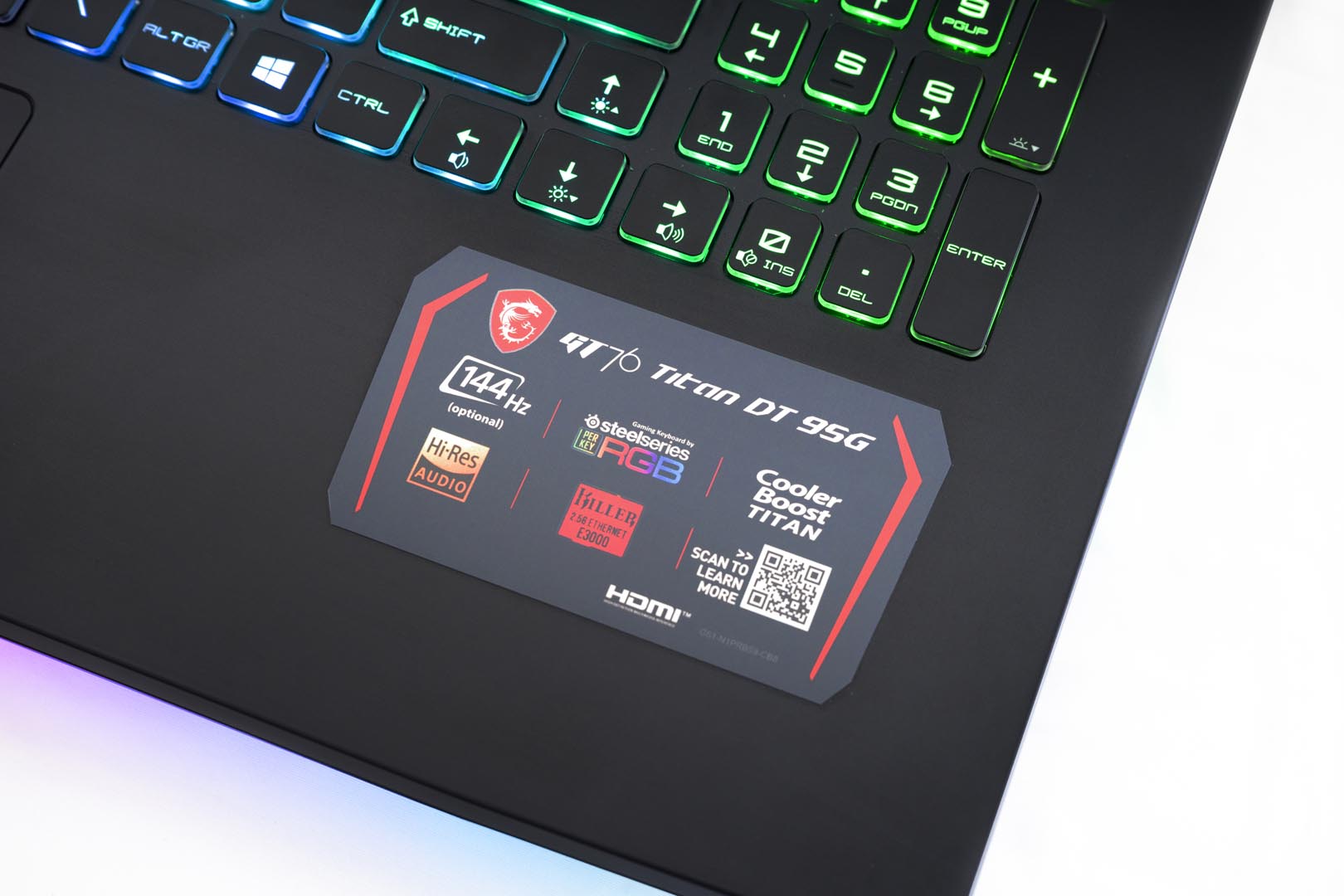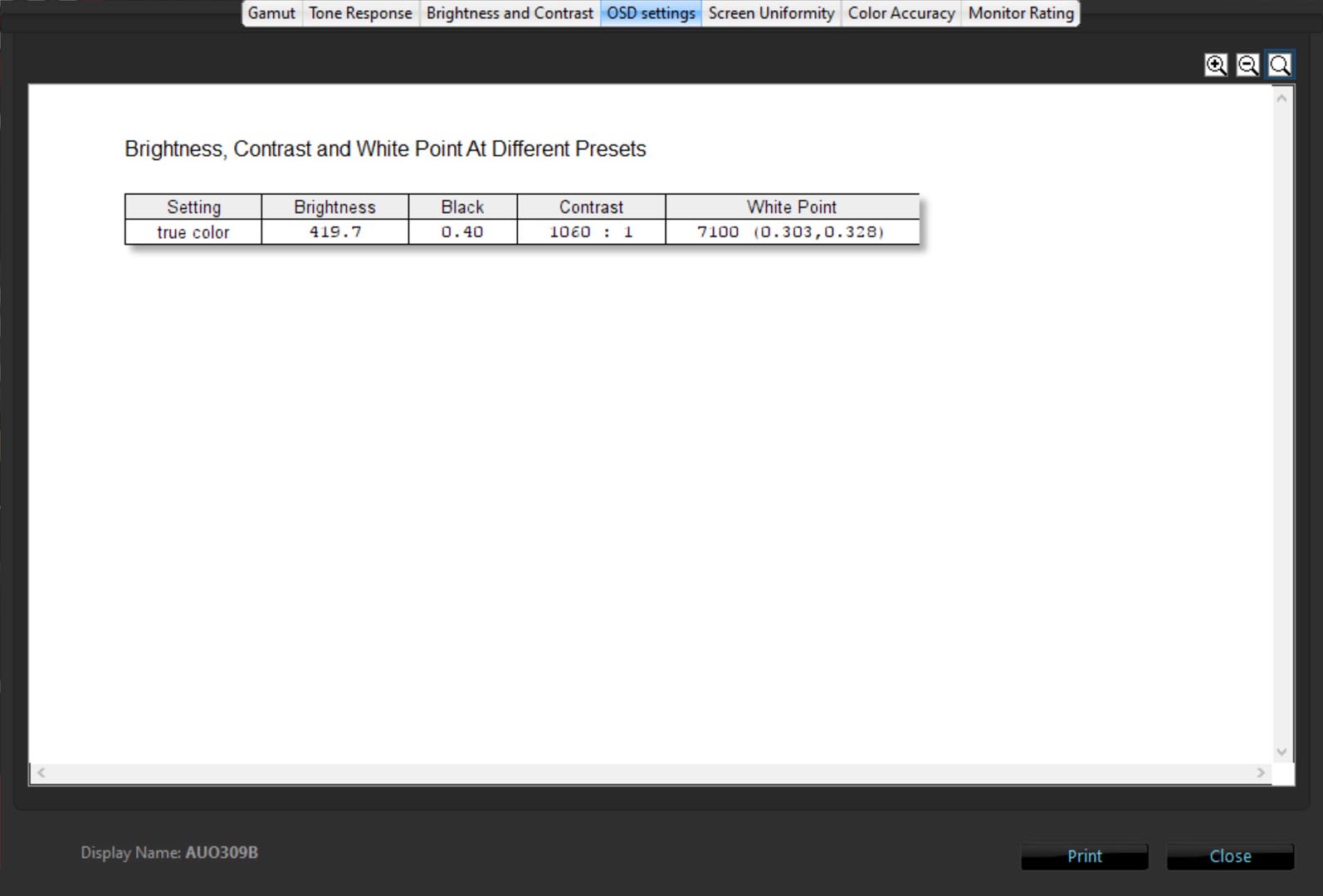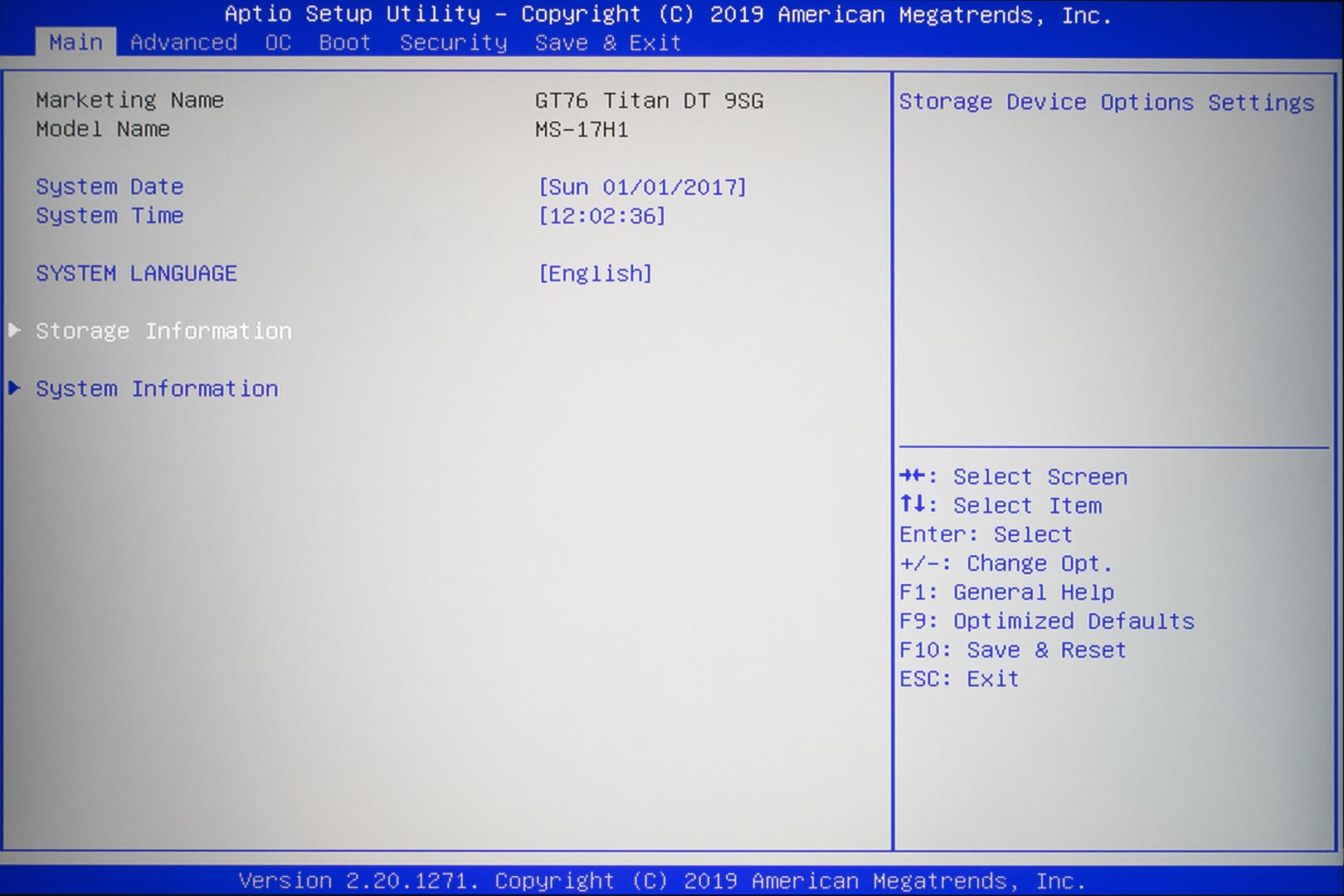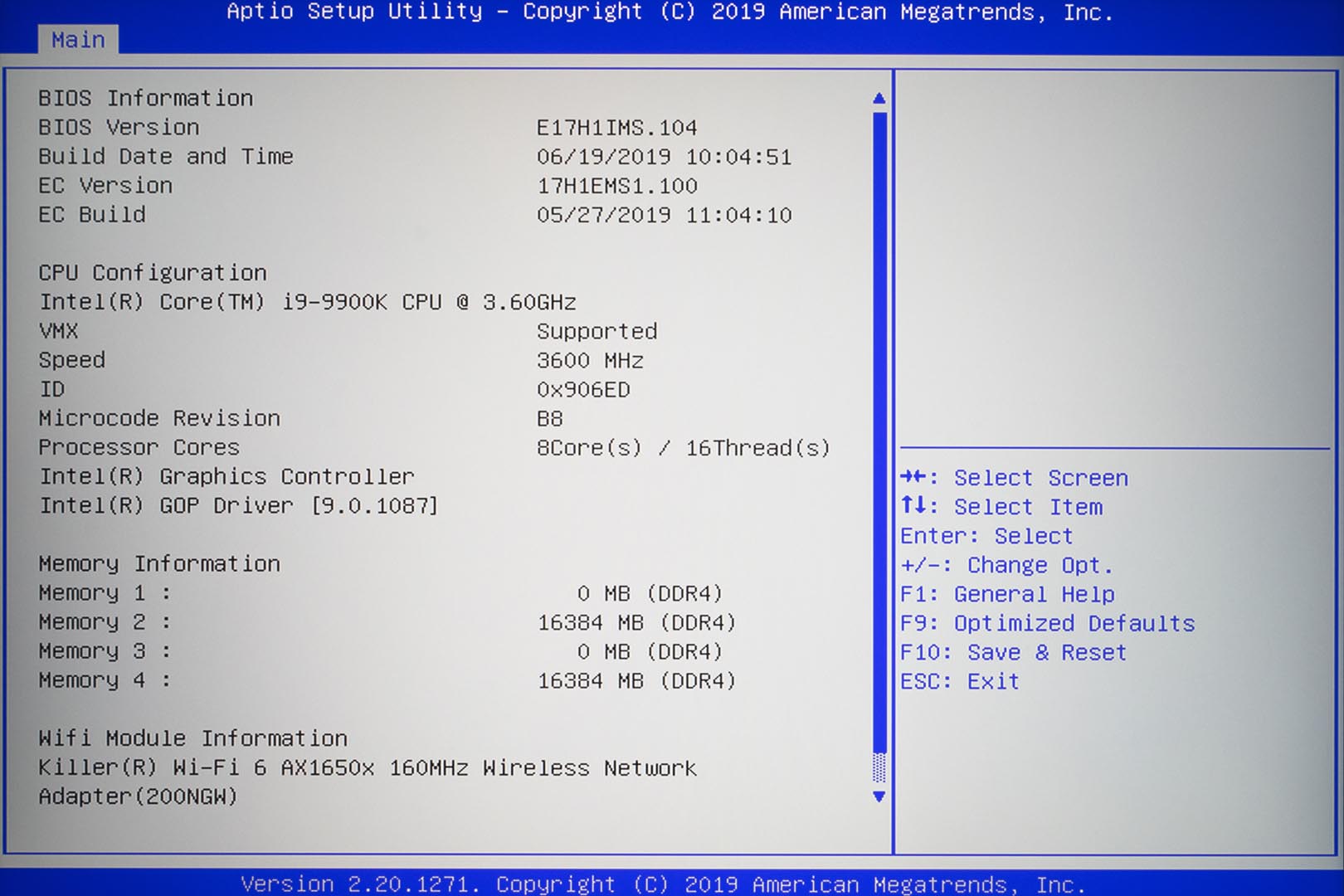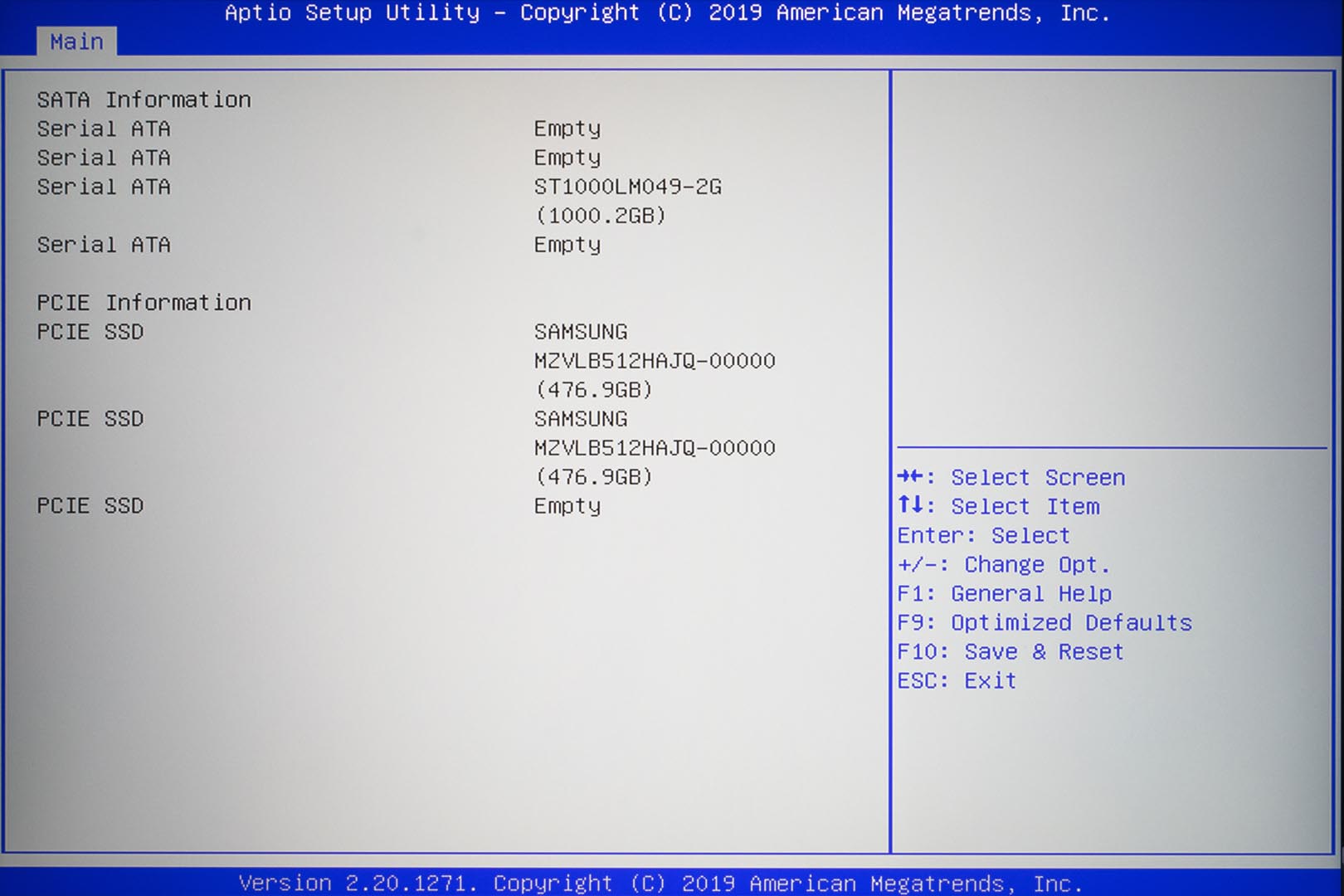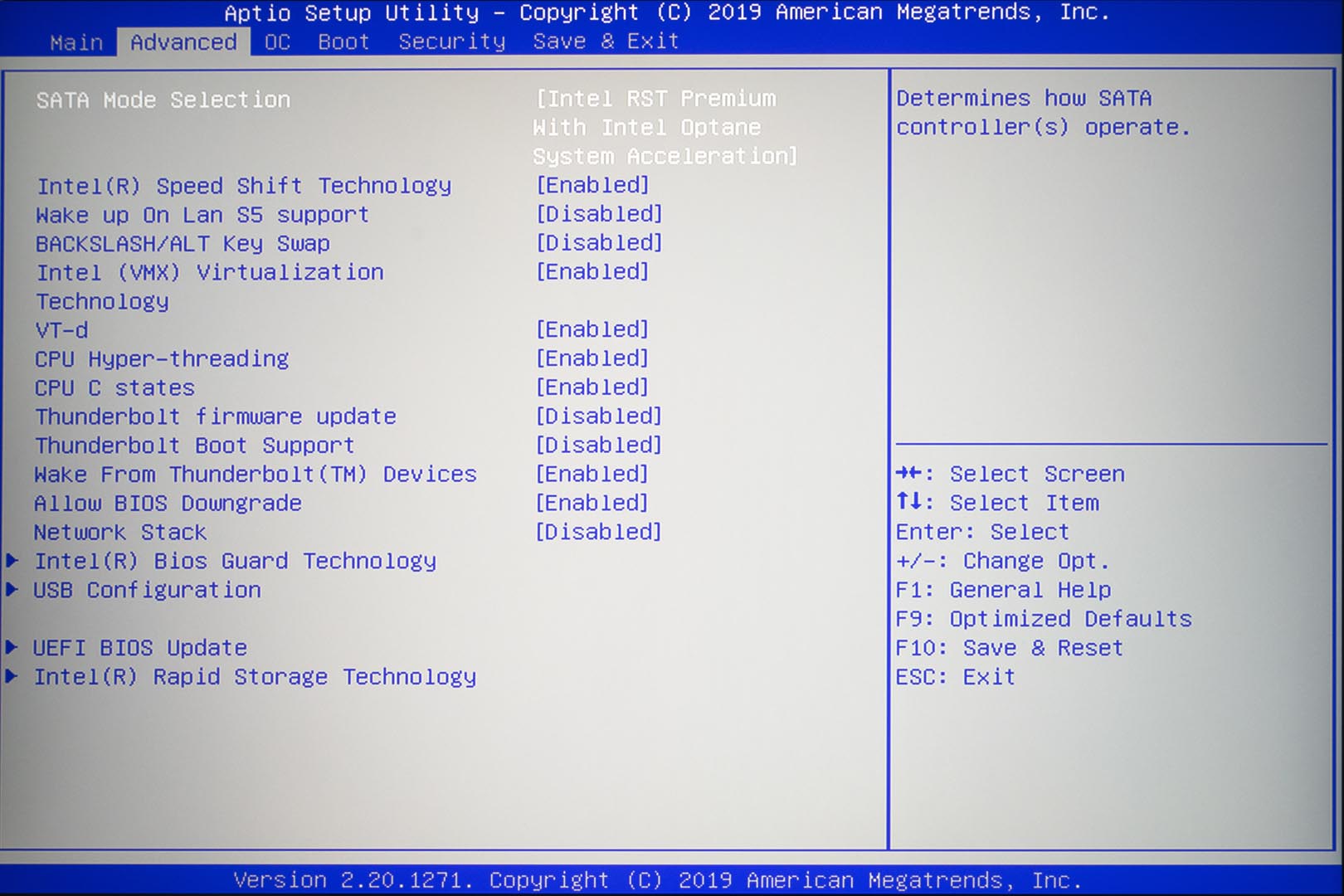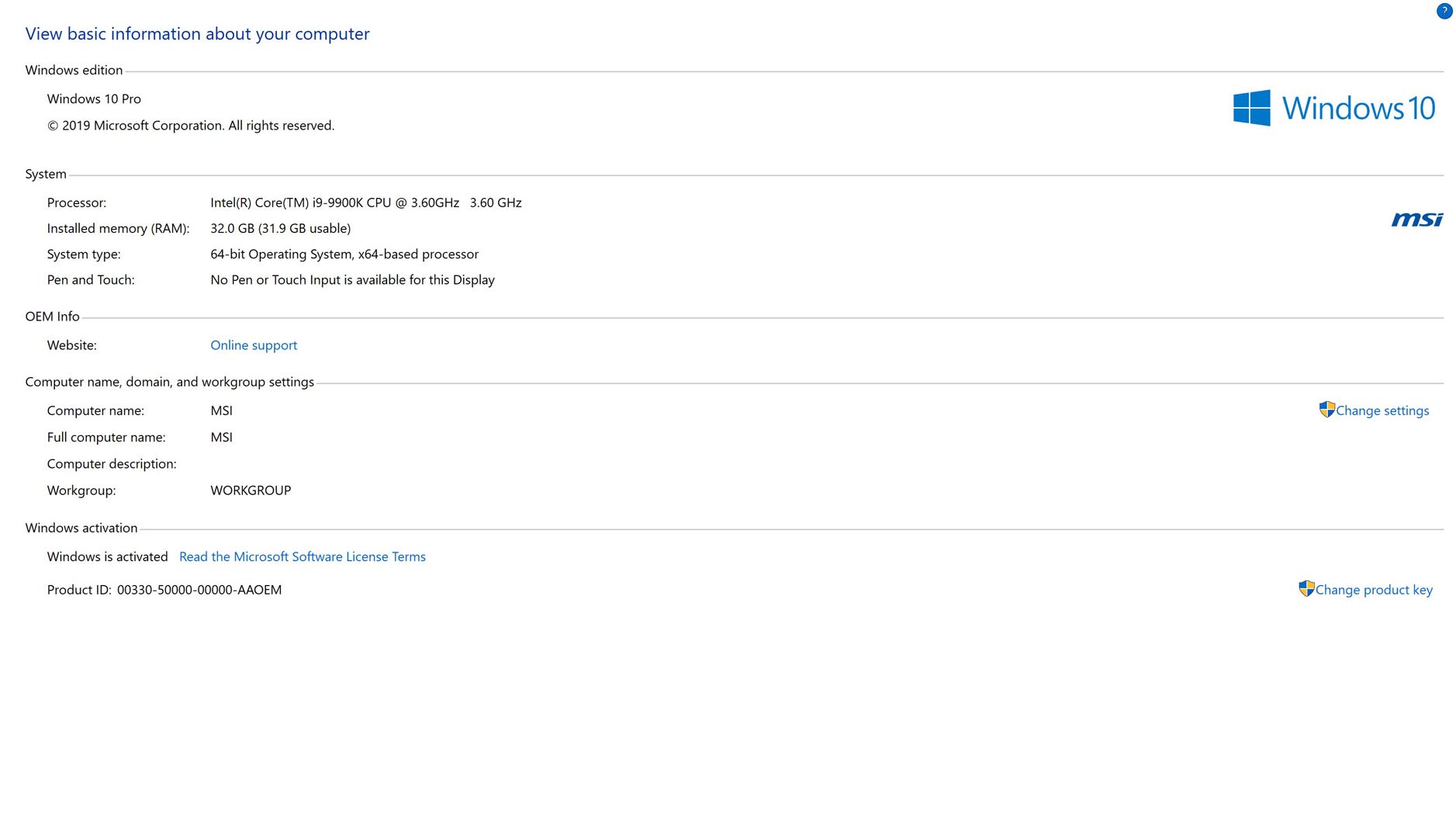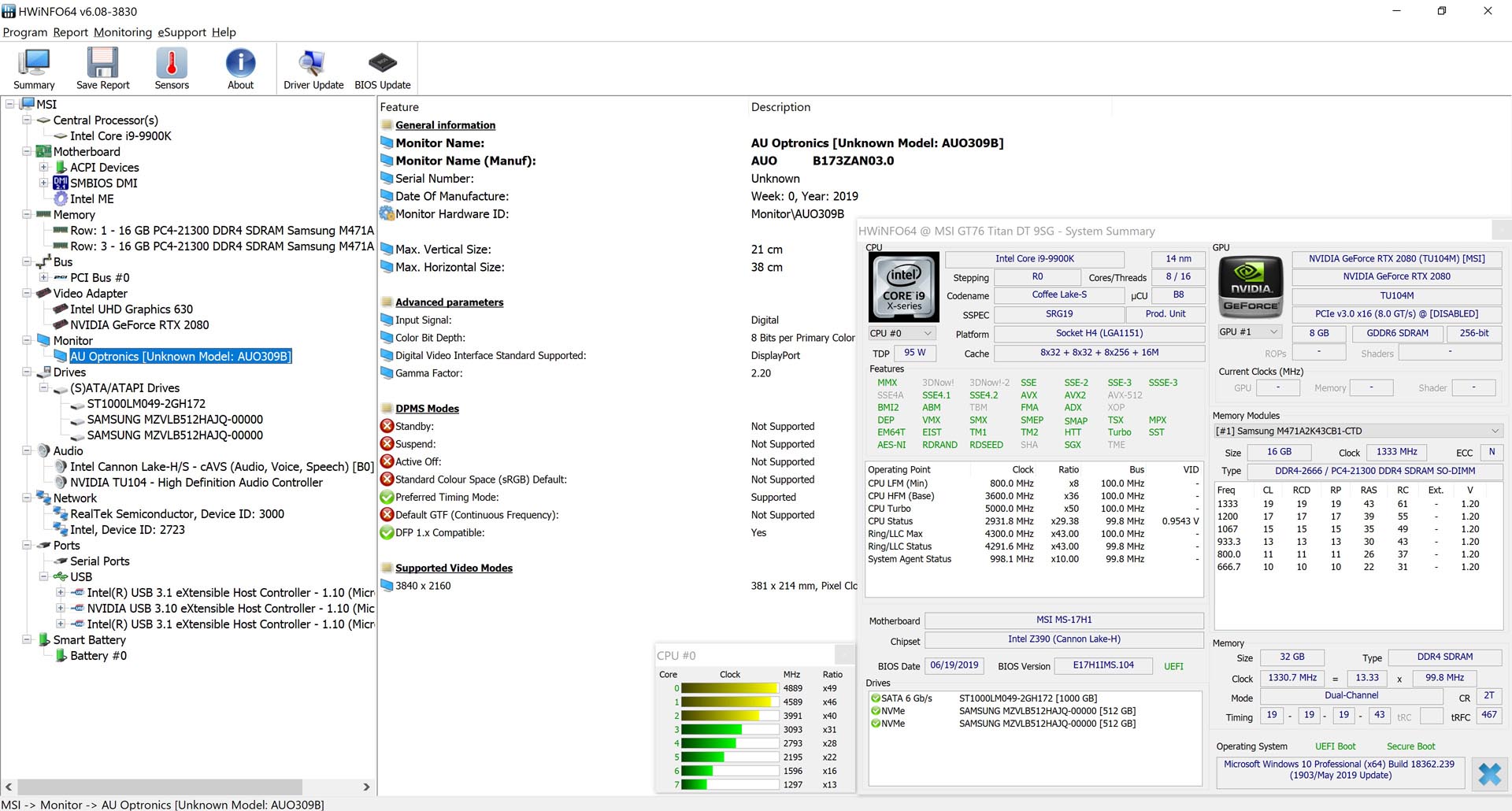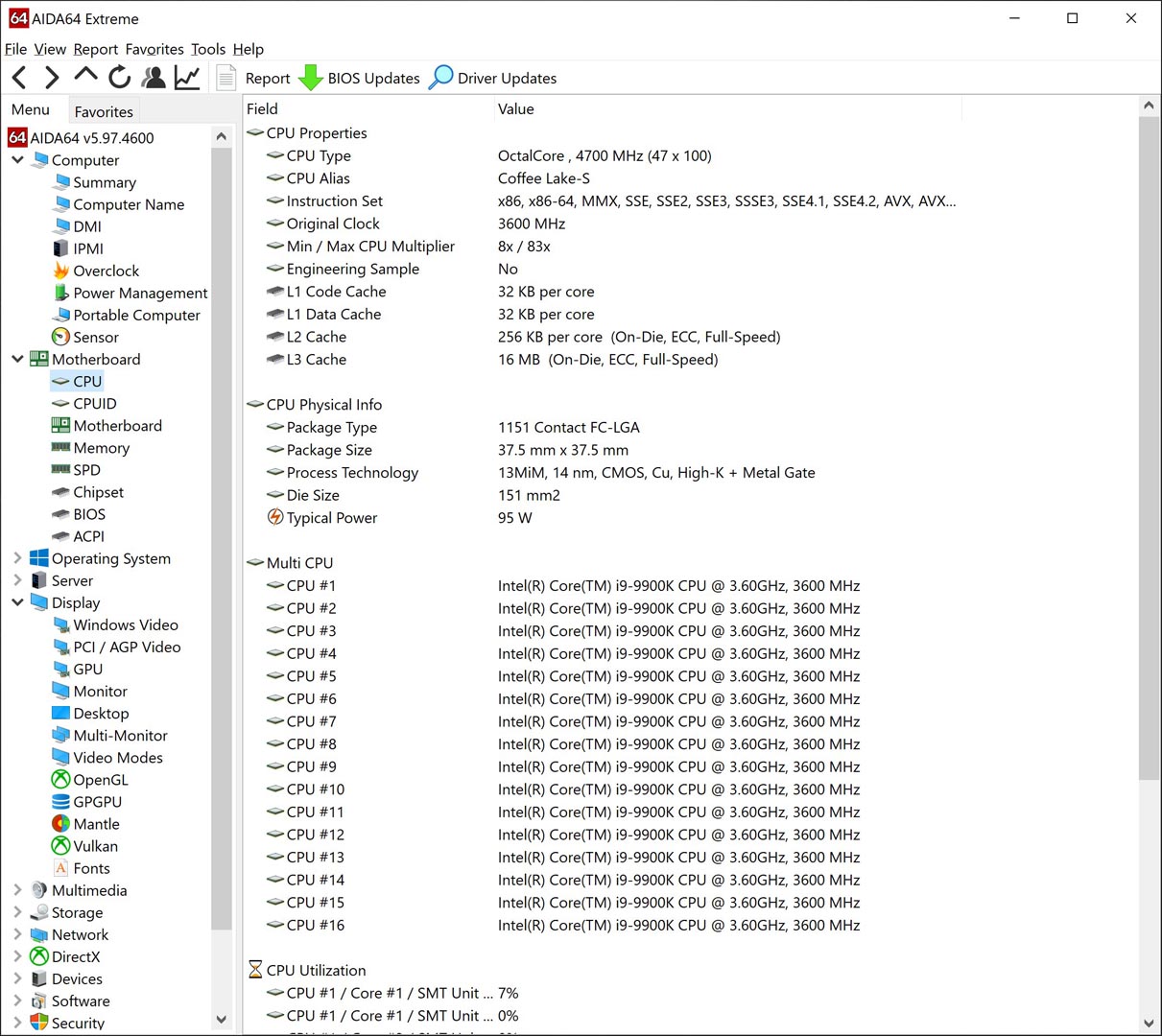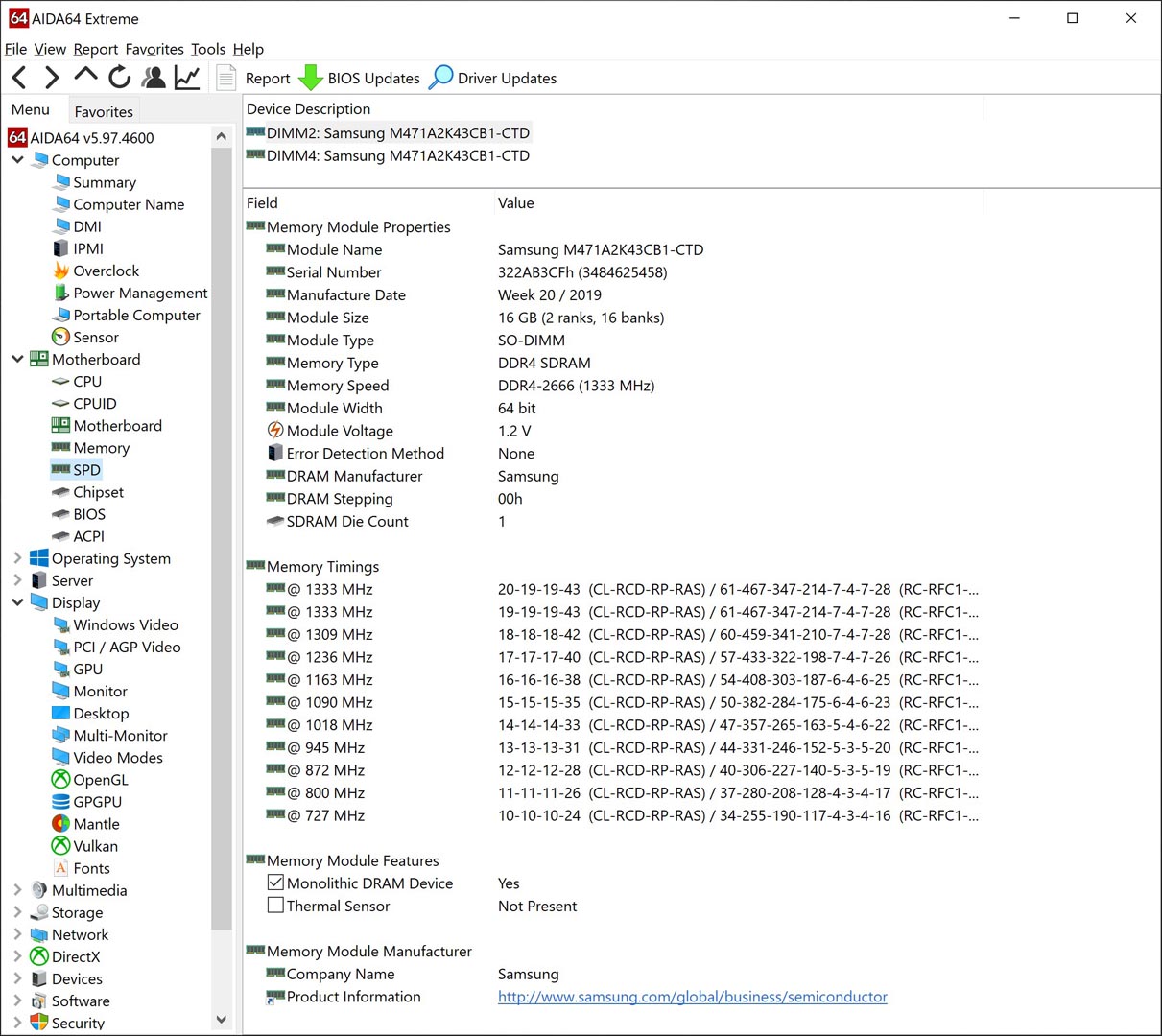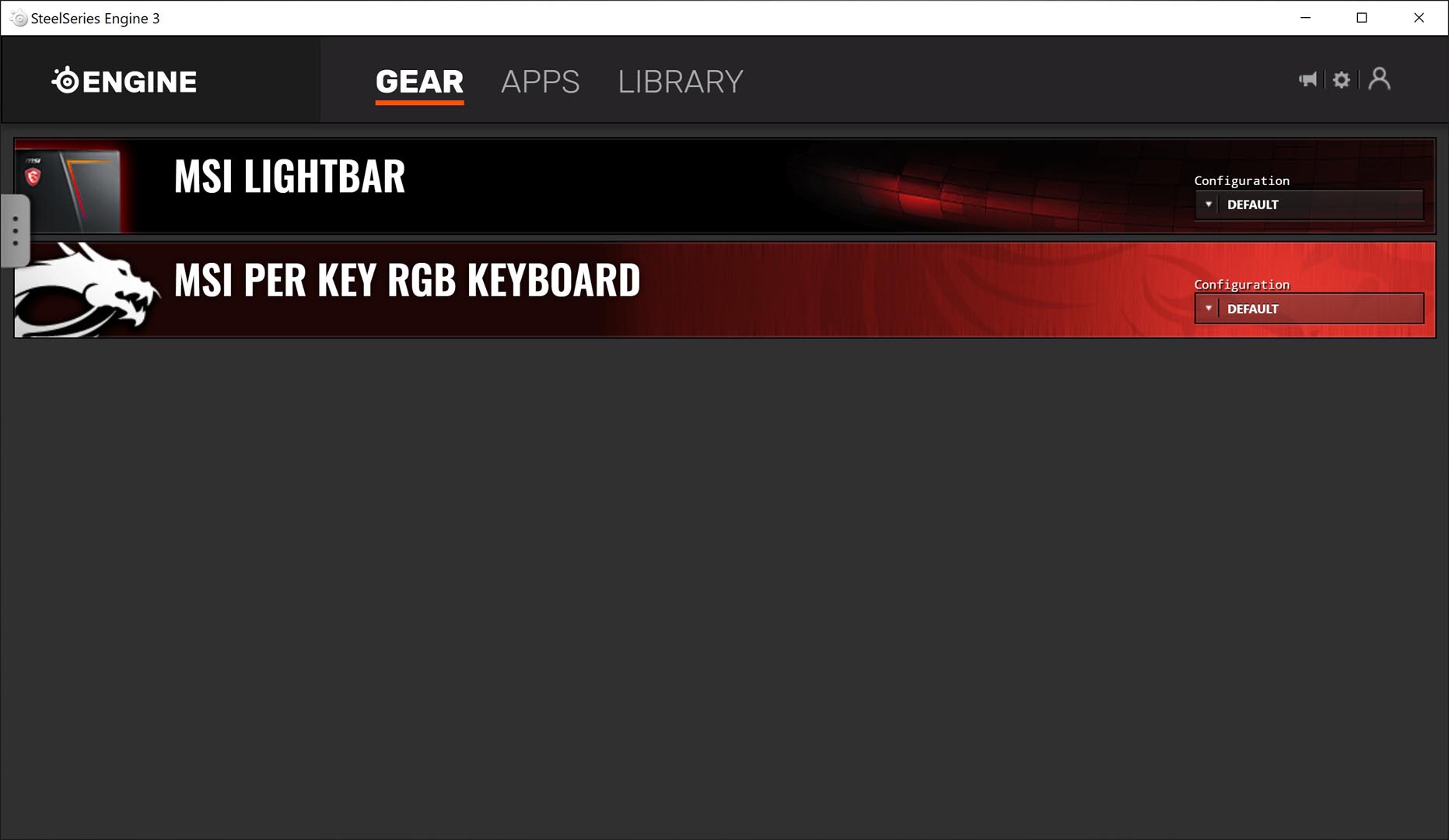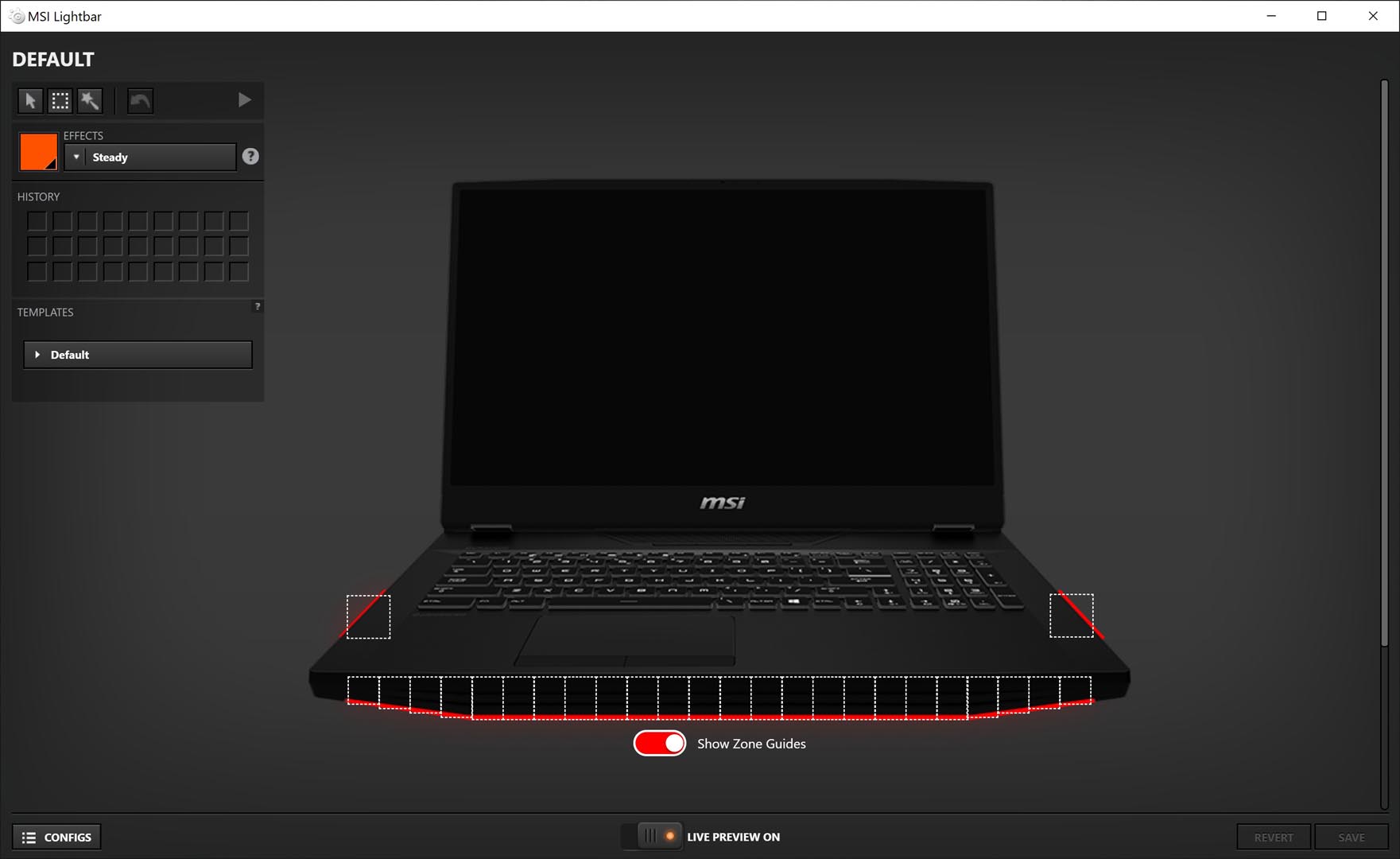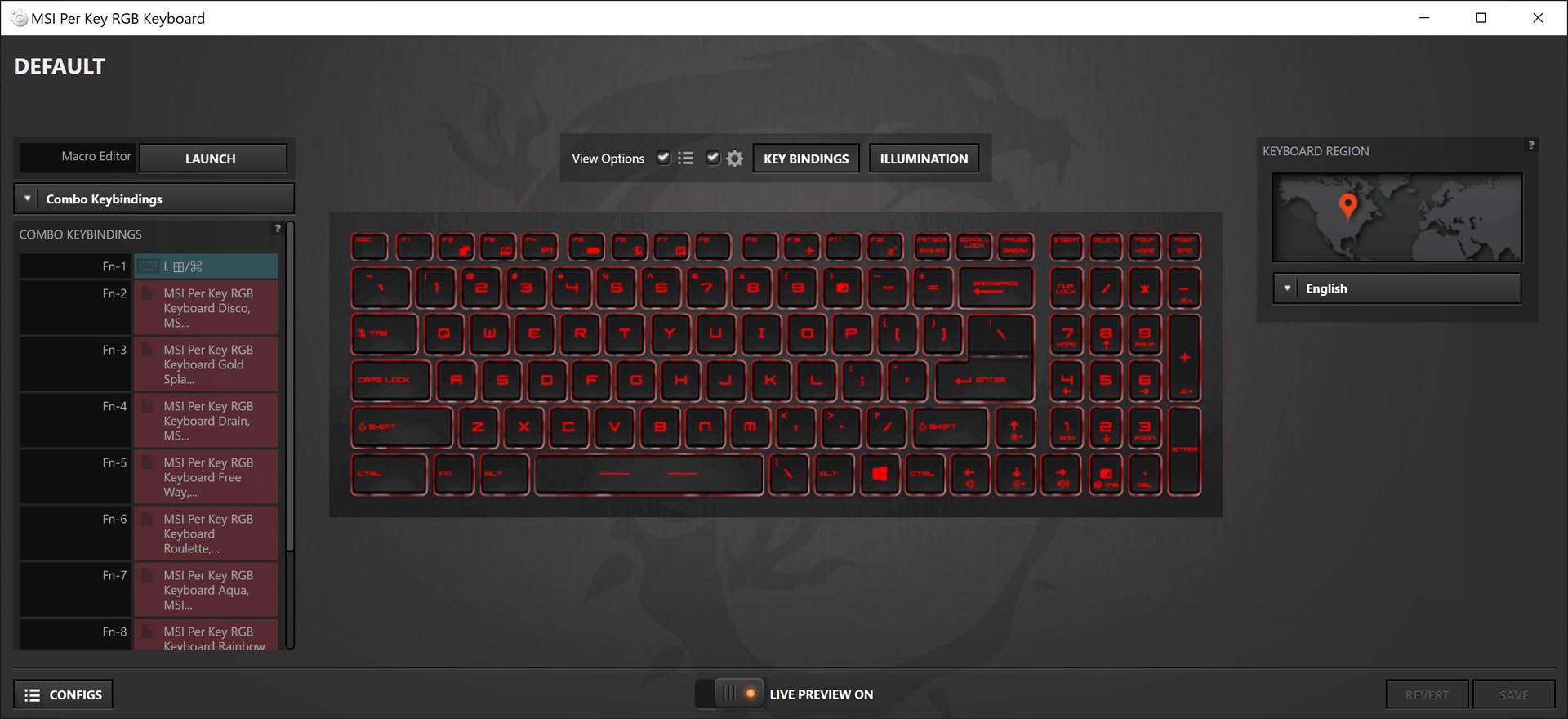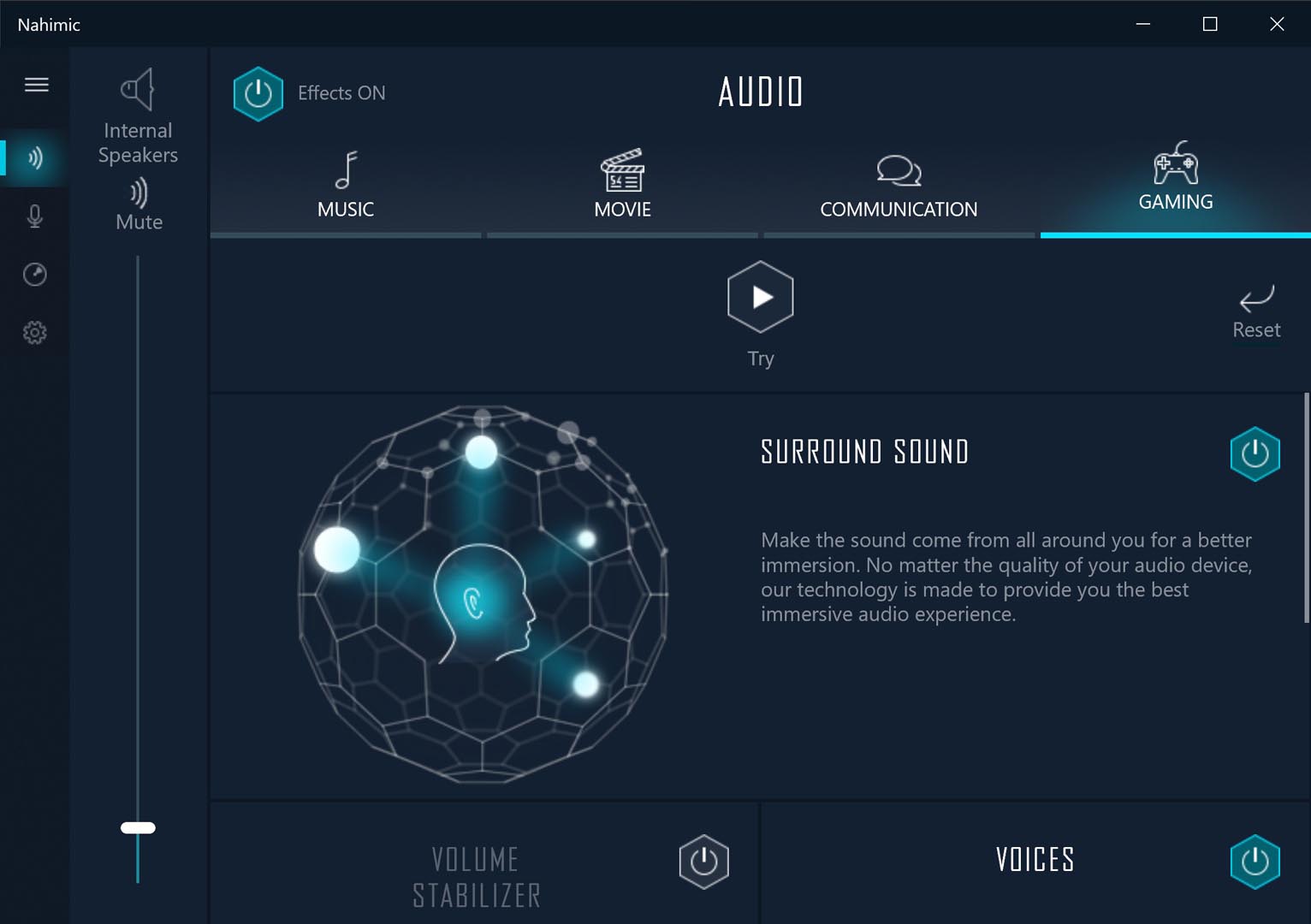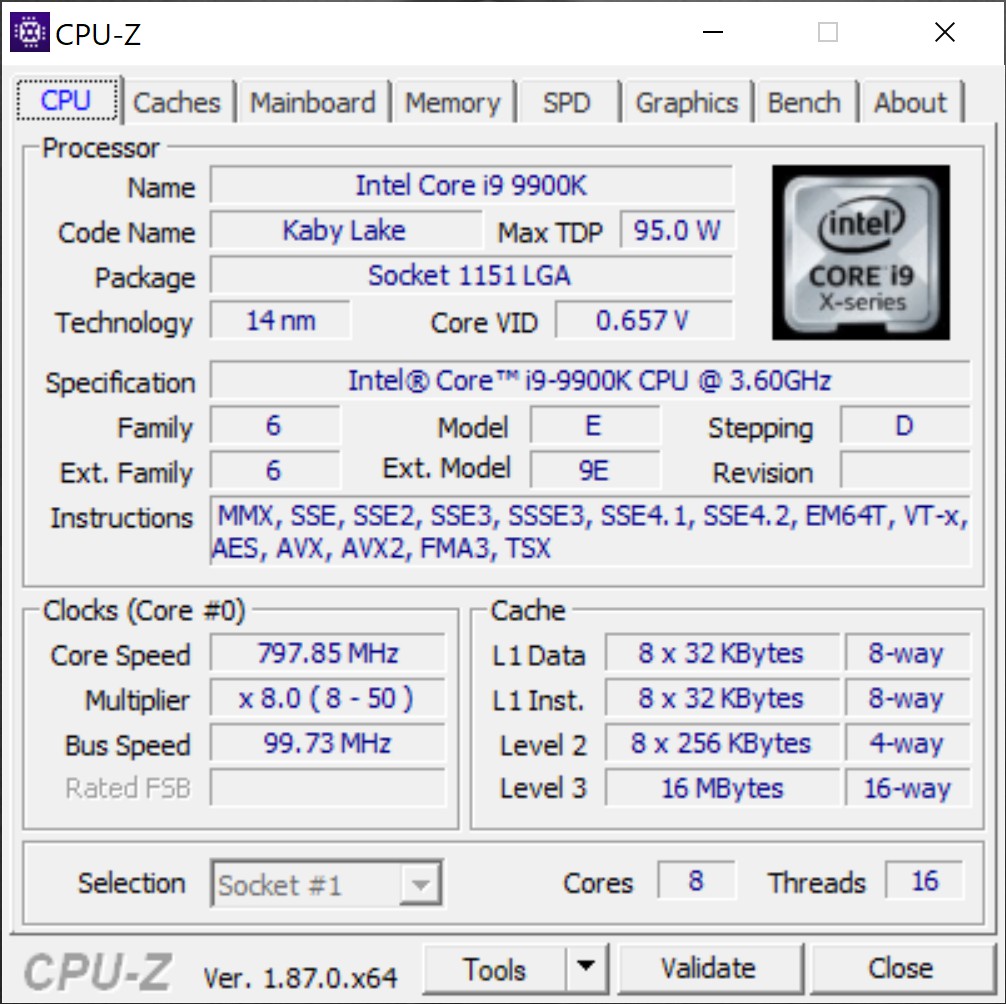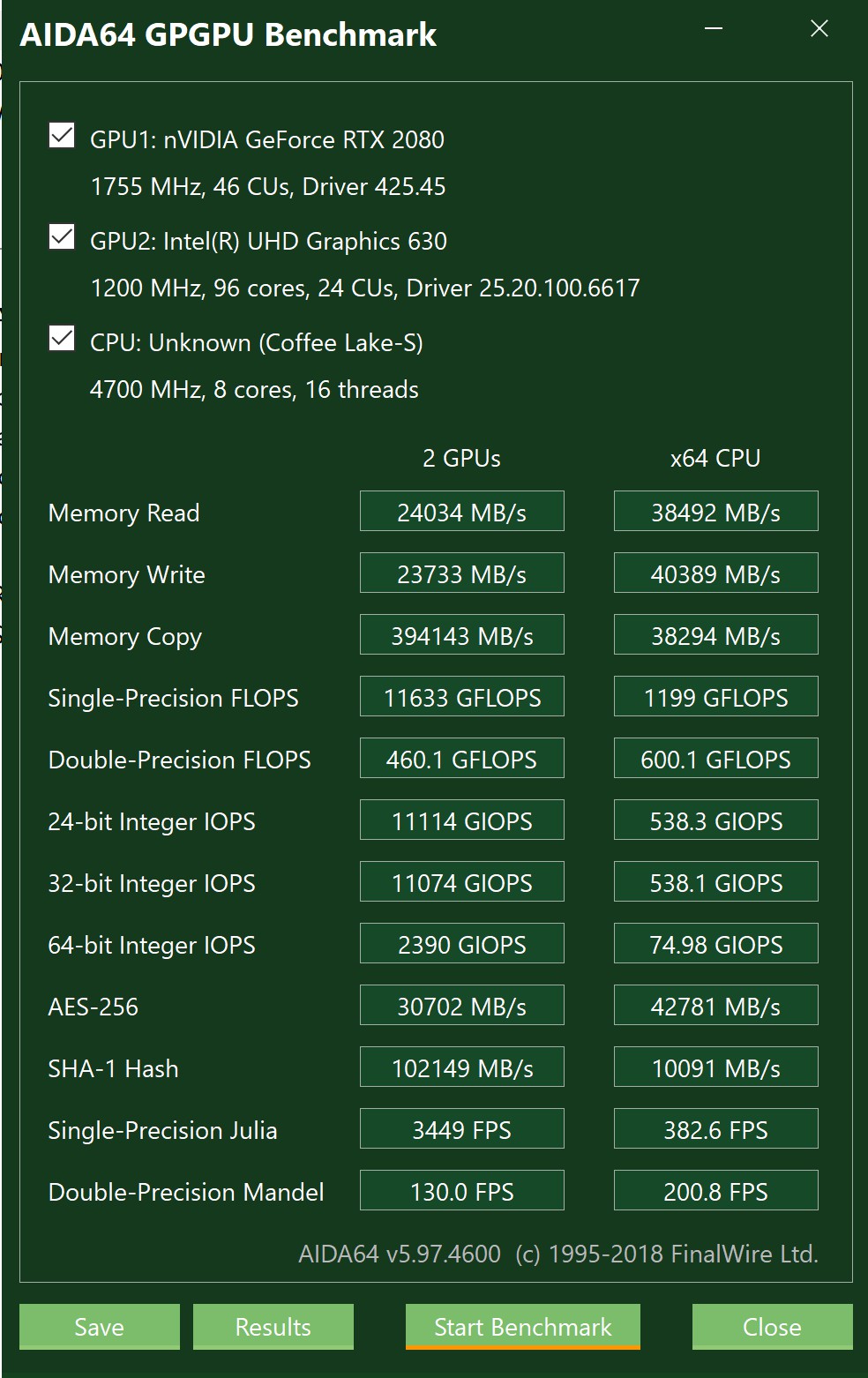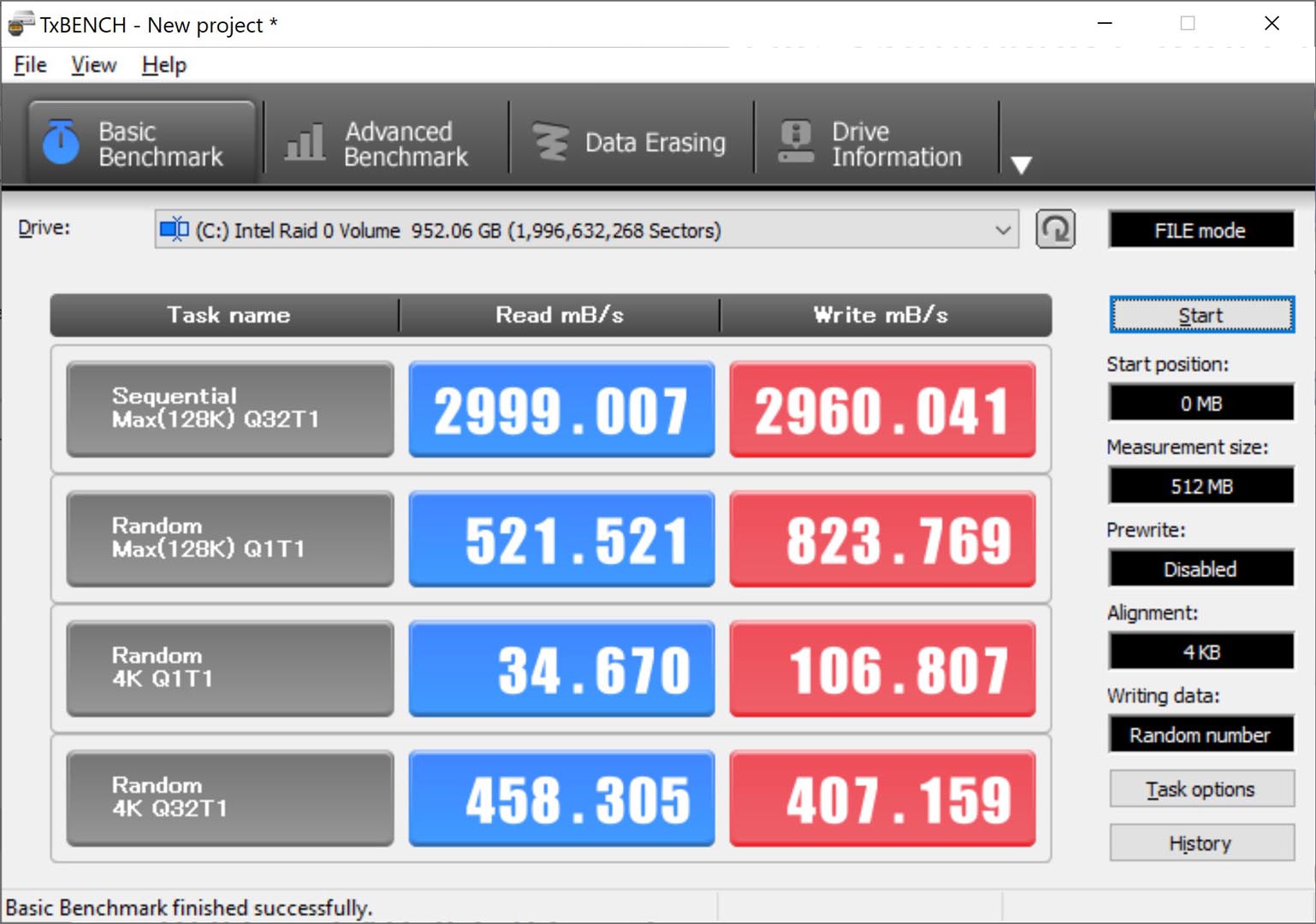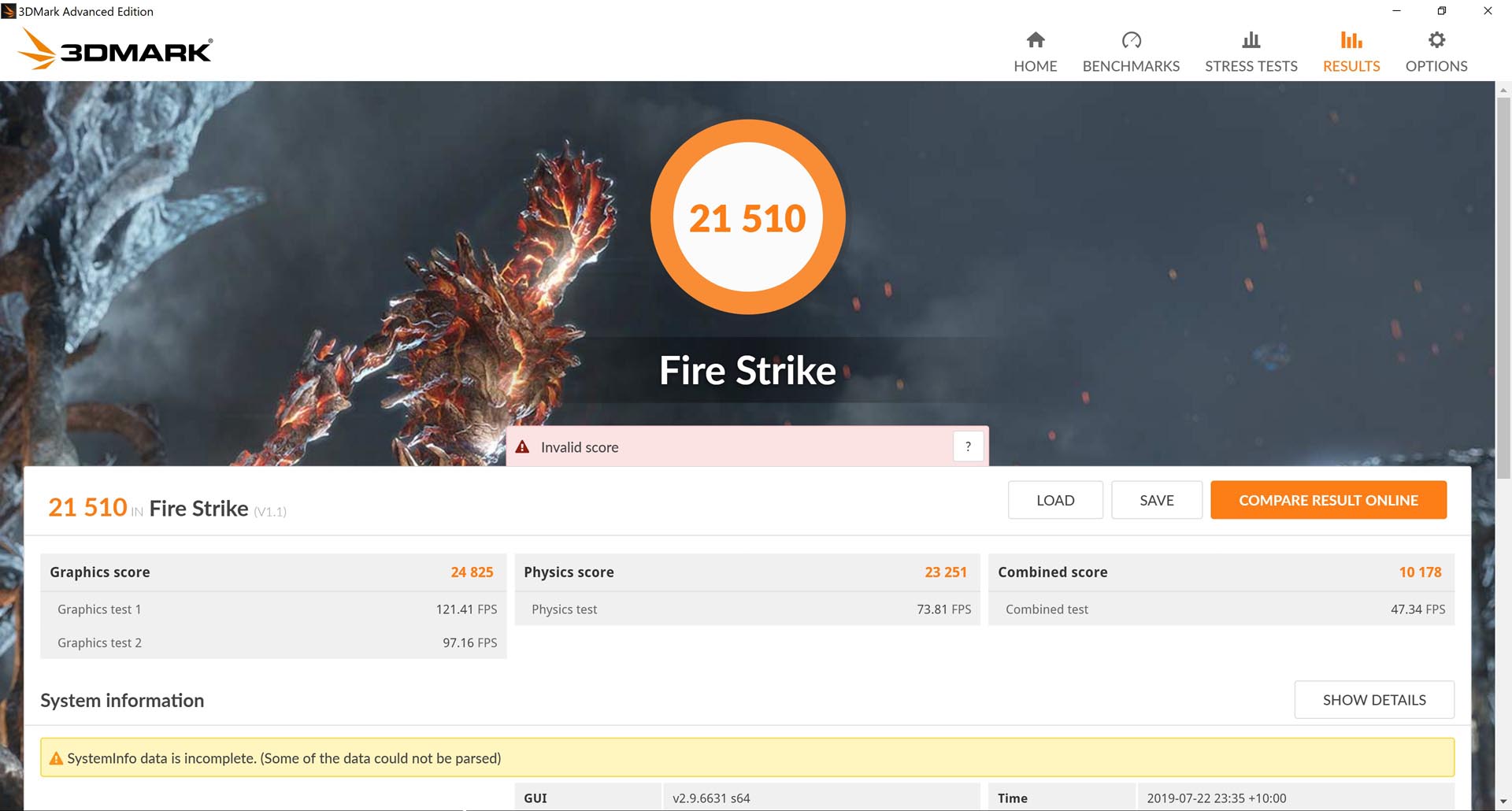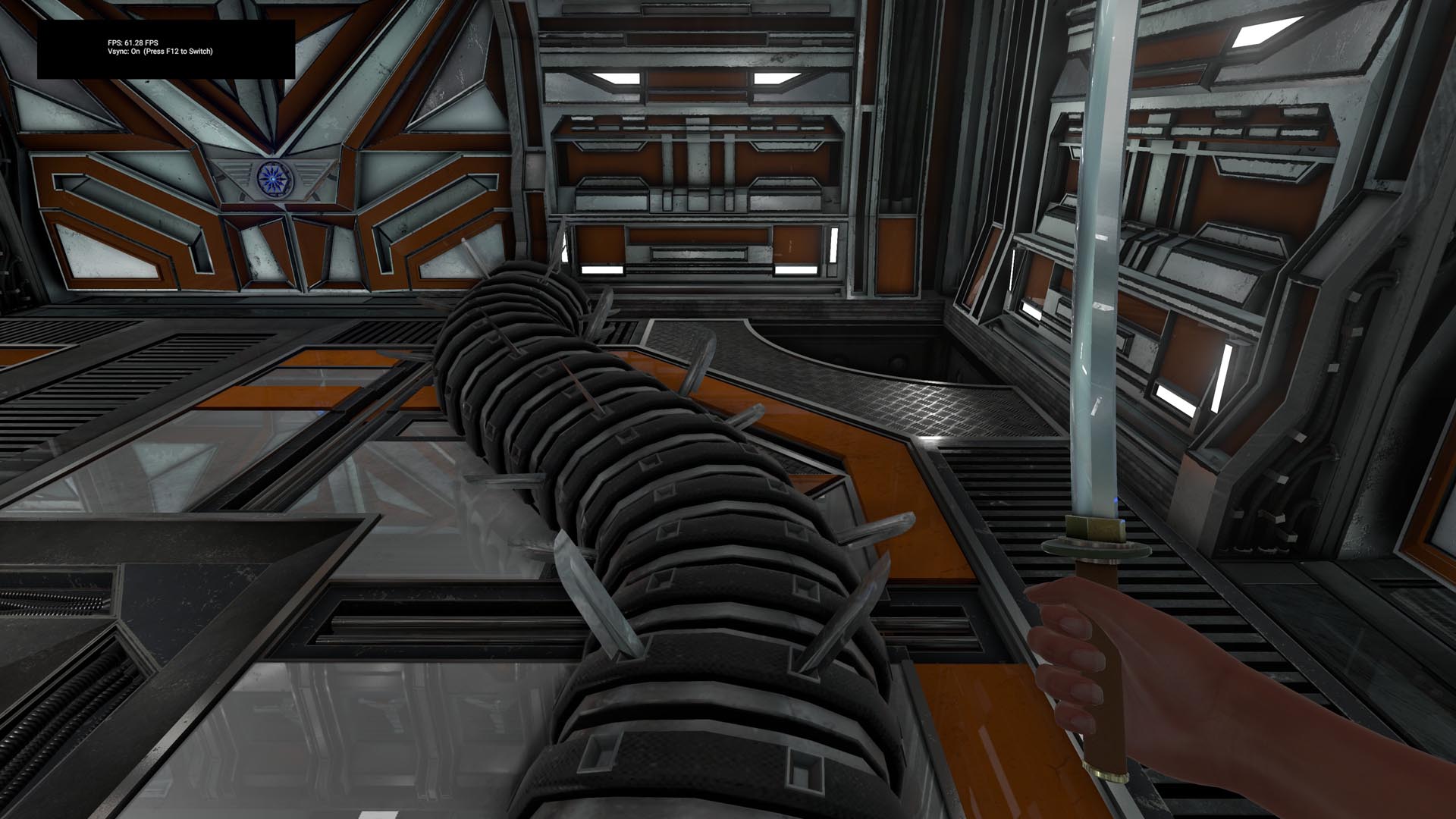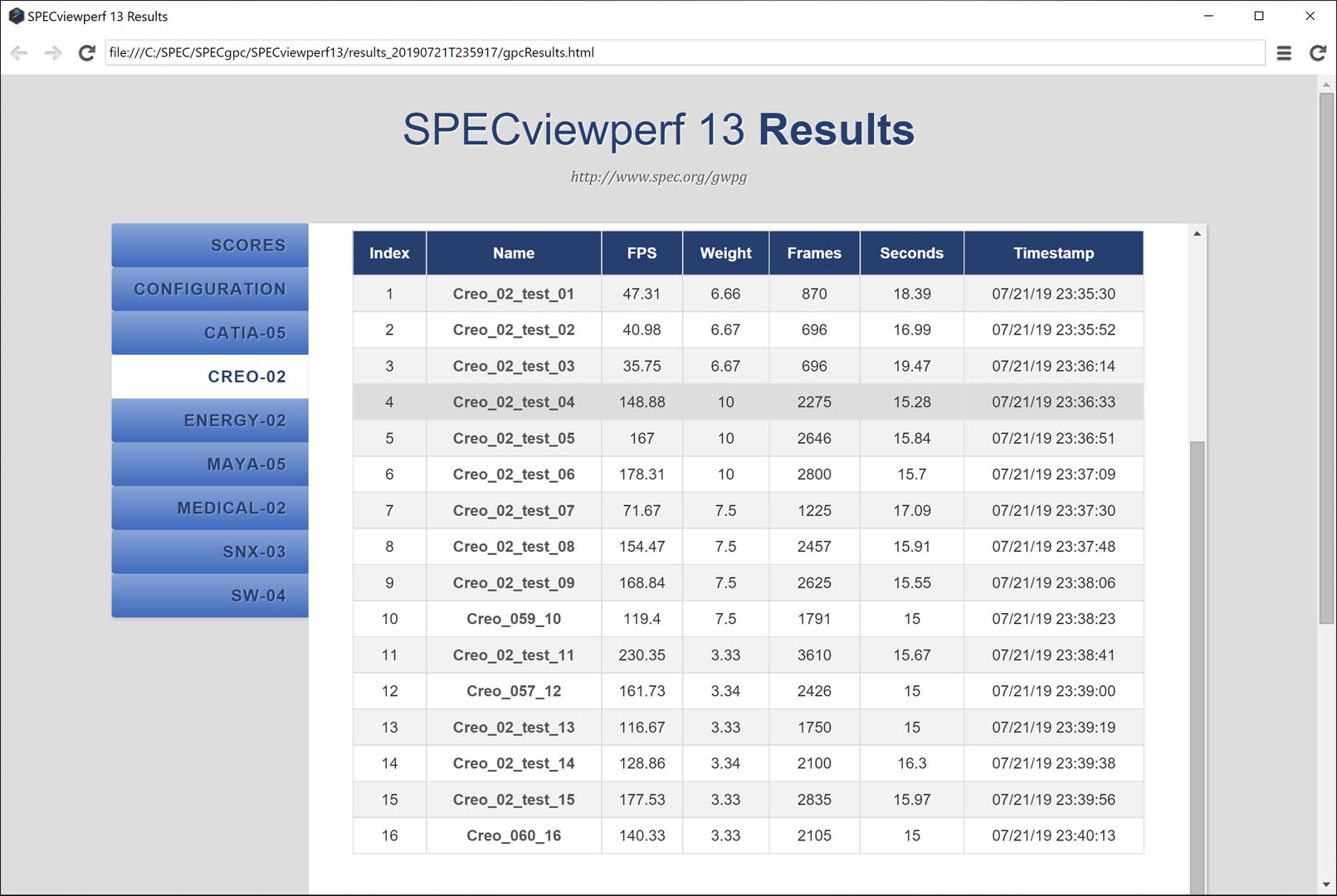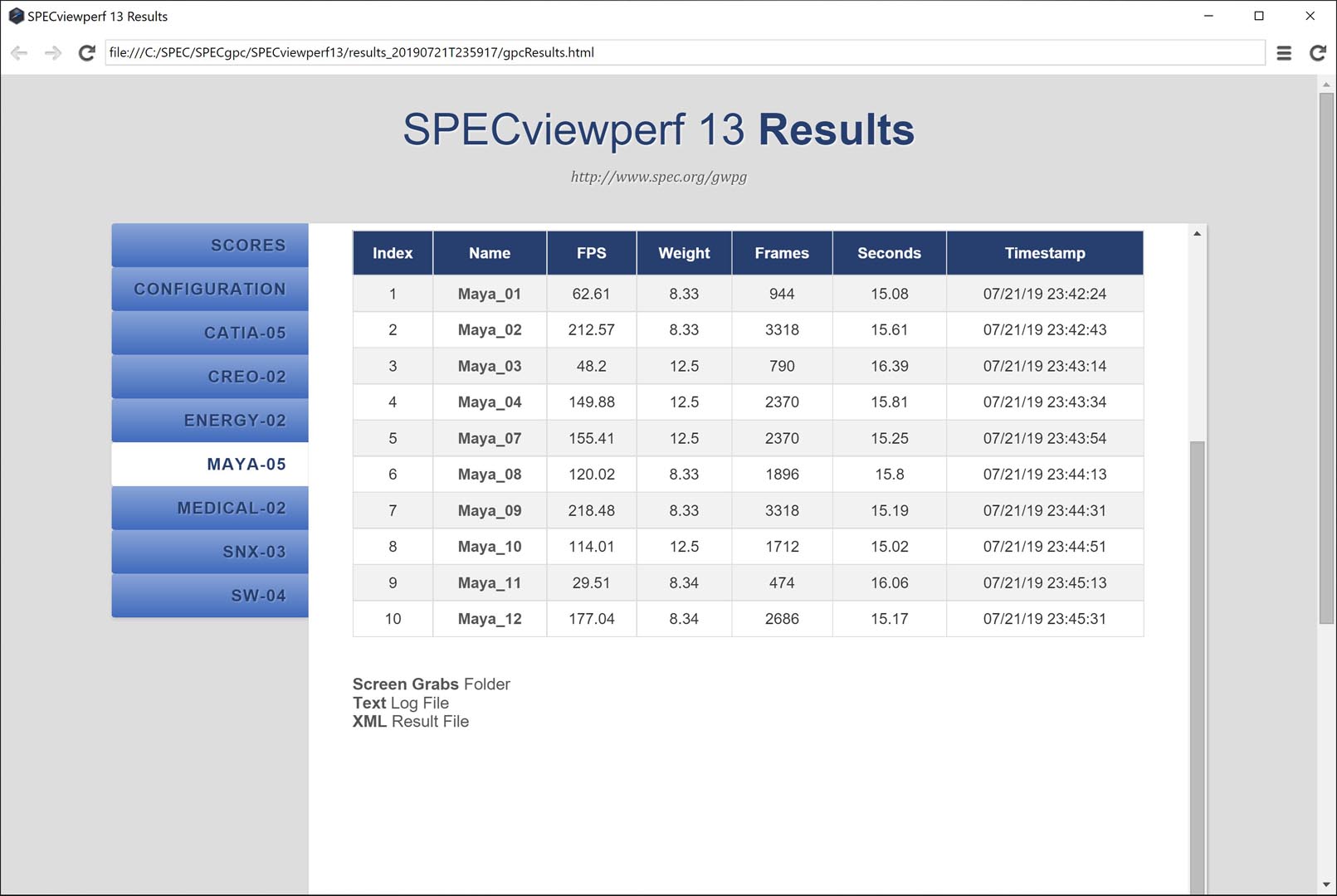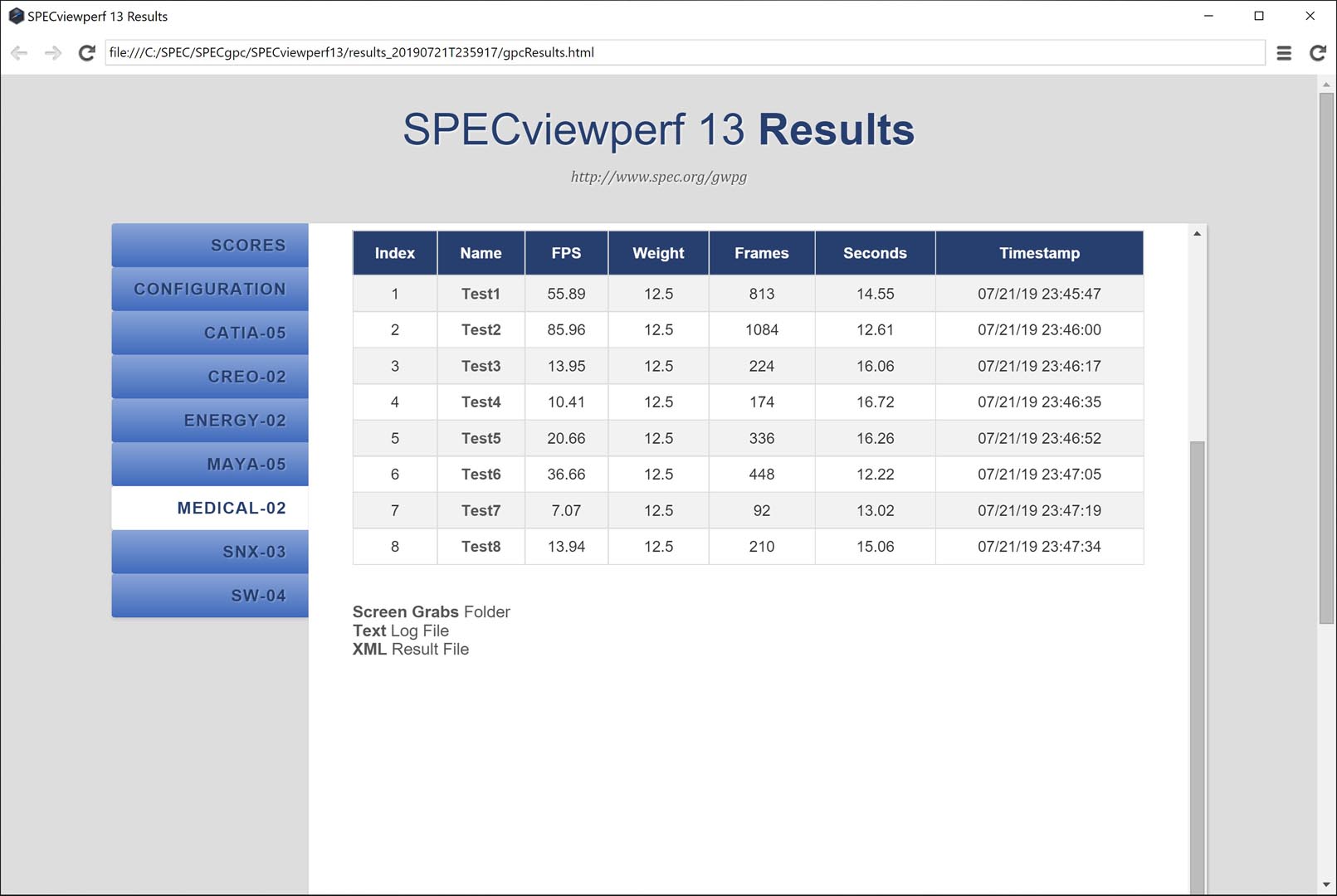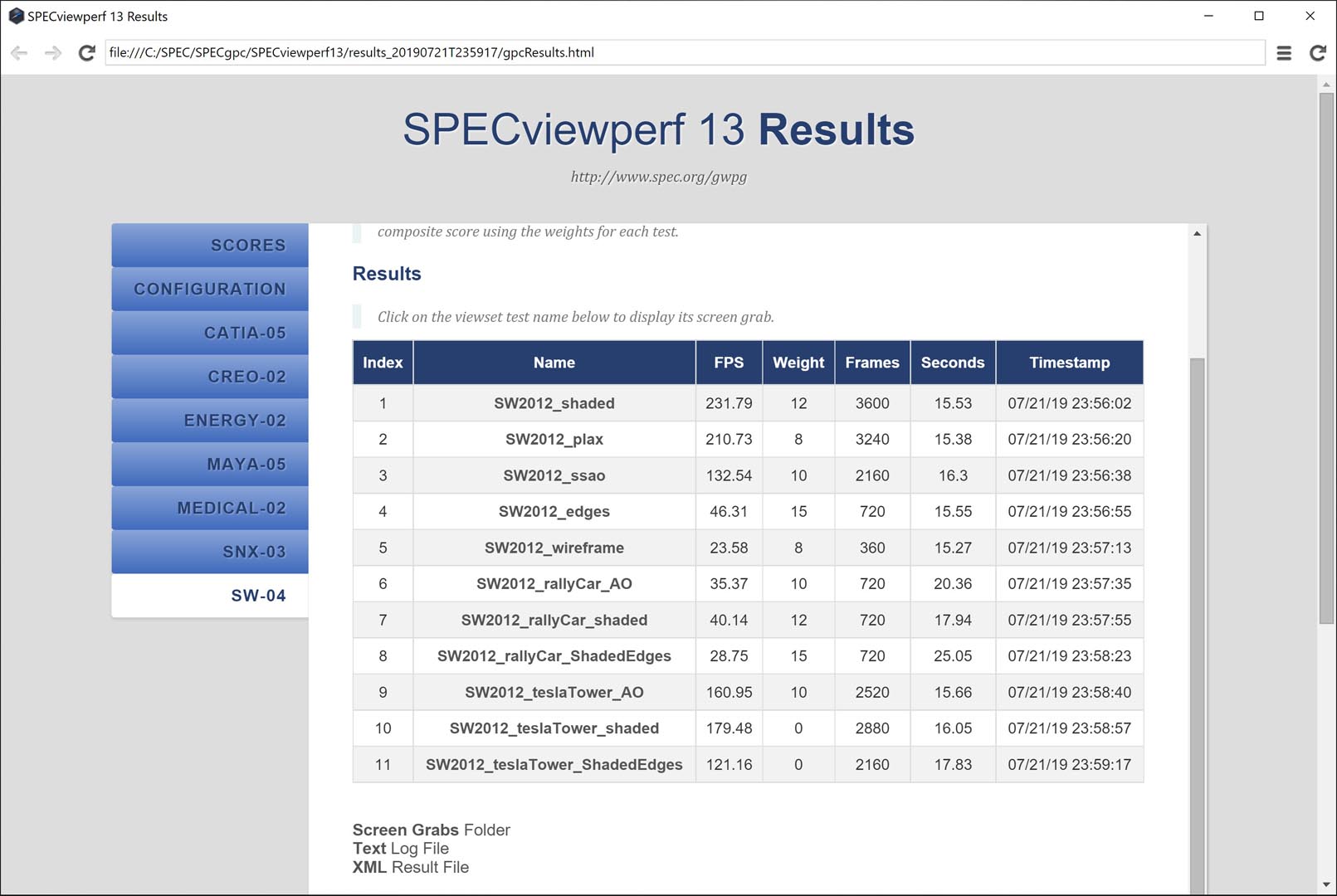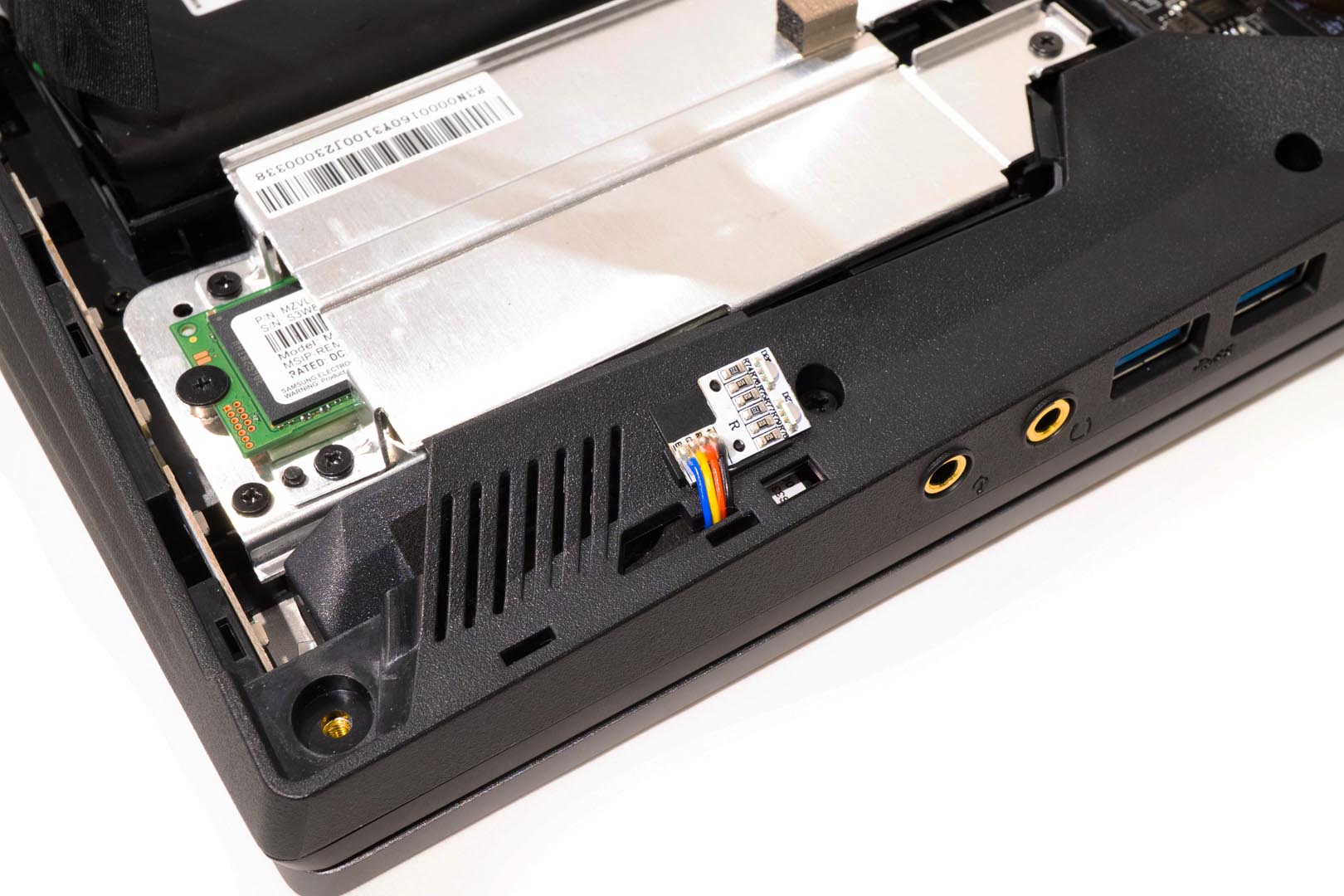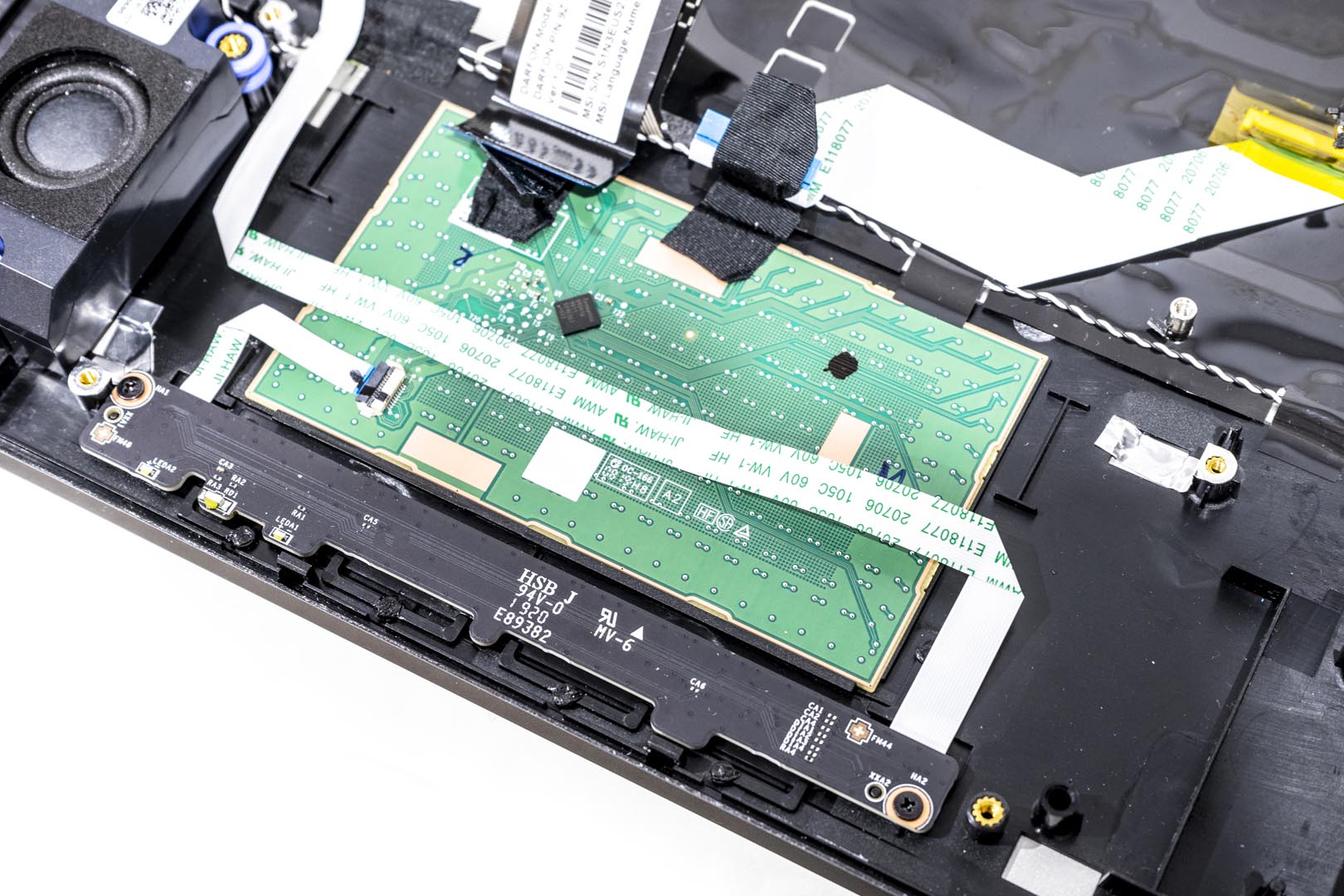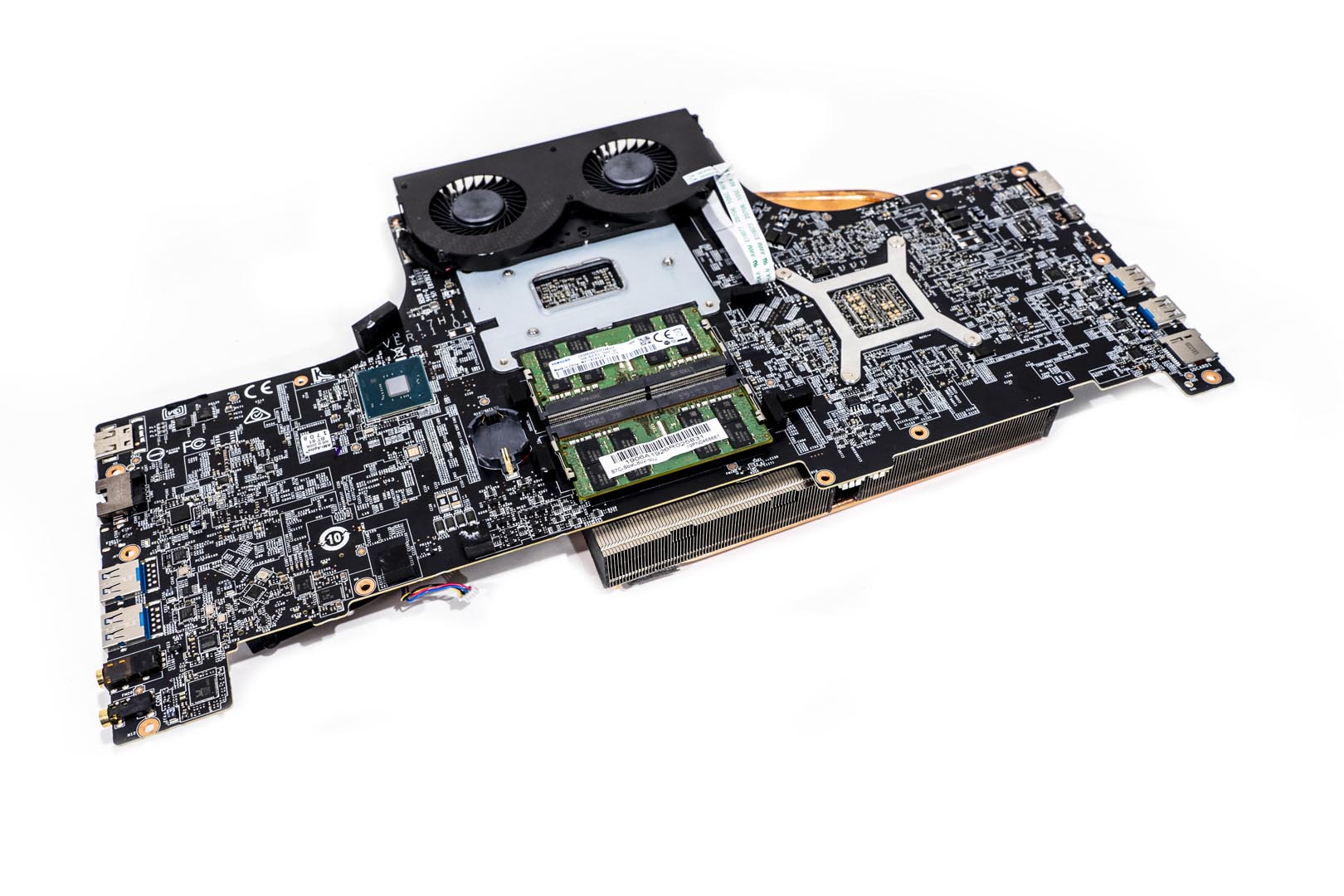Recently, MSI sent their flagship GT76 Titan DT 9SG that was first unveiled at Computex, 2019. This flagship machine is built with a new mould, equipped with the most powerful overclocked desktop processor – the Intel Core i9-9900K, with eight cores, boosting to a crazy 5GHz! It has integrated the GeForce RTX 2080 BGA graphics card and a 4K 60Hz UHD screen, 2 x 32GB DDR4 ram total up to 64GB, 1TB (512GB × 2) NVMe PCle SSD + 1TB HDD. This machine is a beast!
In order to support the powerful performance, GT76 Titan DT 9SG uses MSI’s new generation Cooler Boost Titan cooling system, with 4 sets of turbofans and 11 high-performance cooling ducts designed to bring greater airflow and heat dissipation, which is 2.25 times higher than the traditional dual fan design.
So let’s dig in the details with the following benchmark.
Product Specification
GT76 Titan DT 9SG Tech Specs from Official Website
https://au.msi.com/Laptop/GT76-Titan-9SX/Specification
Product Unboxing
Package Appearance
Like the previous MSI packaging, the GT76 Titan’s packaging has night sky black colour, and the front of the MSI dragon shield has a large red domineering dragon pattern behind it
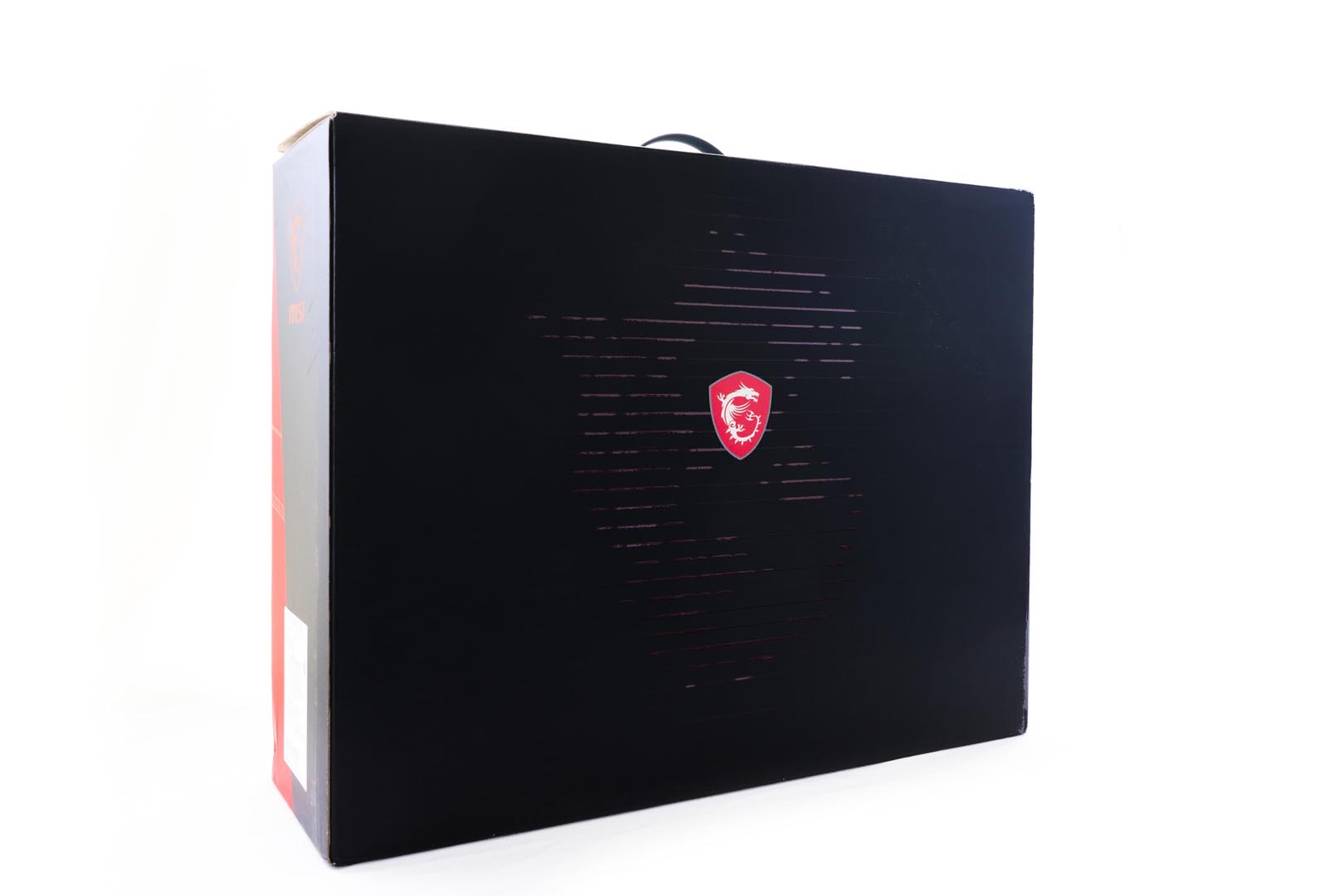
The back of the package is a multi-angled line avant-garde design of the GT76 Titan laptop, which is very fashionable

The GT76 TITAN’s electroplated red text and red beveled design on the side bring a sense of sharpness
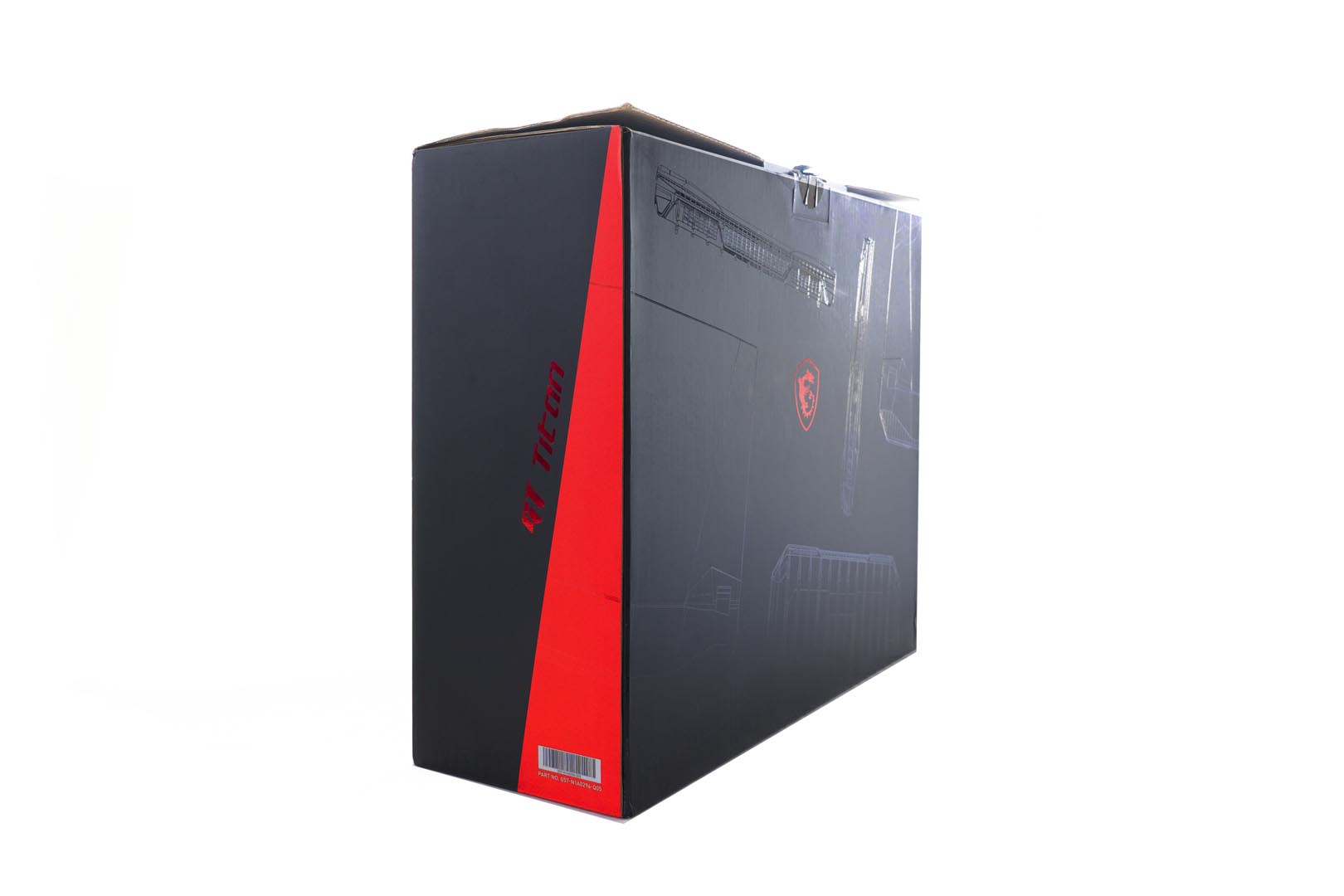
The notebook is protected by the thick and shock-proof foam, and the main body is warped by a double-layered suit which has an anti-static layer and a black fabric layer
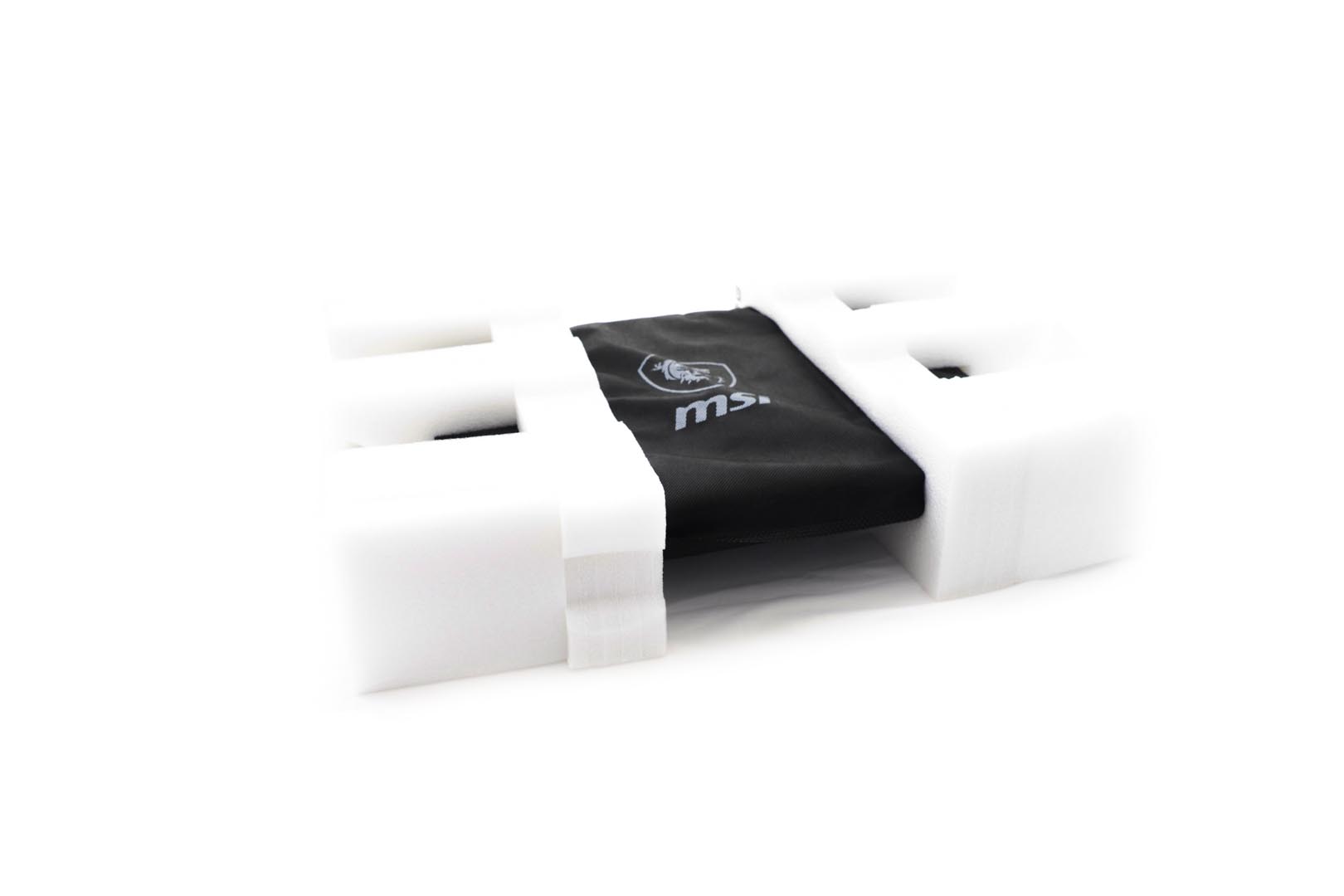
Product Analysis
Compared to the similar size GS75 Stealth, the GT76 Titan DT 9SG is more biased towards their Prestige series laptop
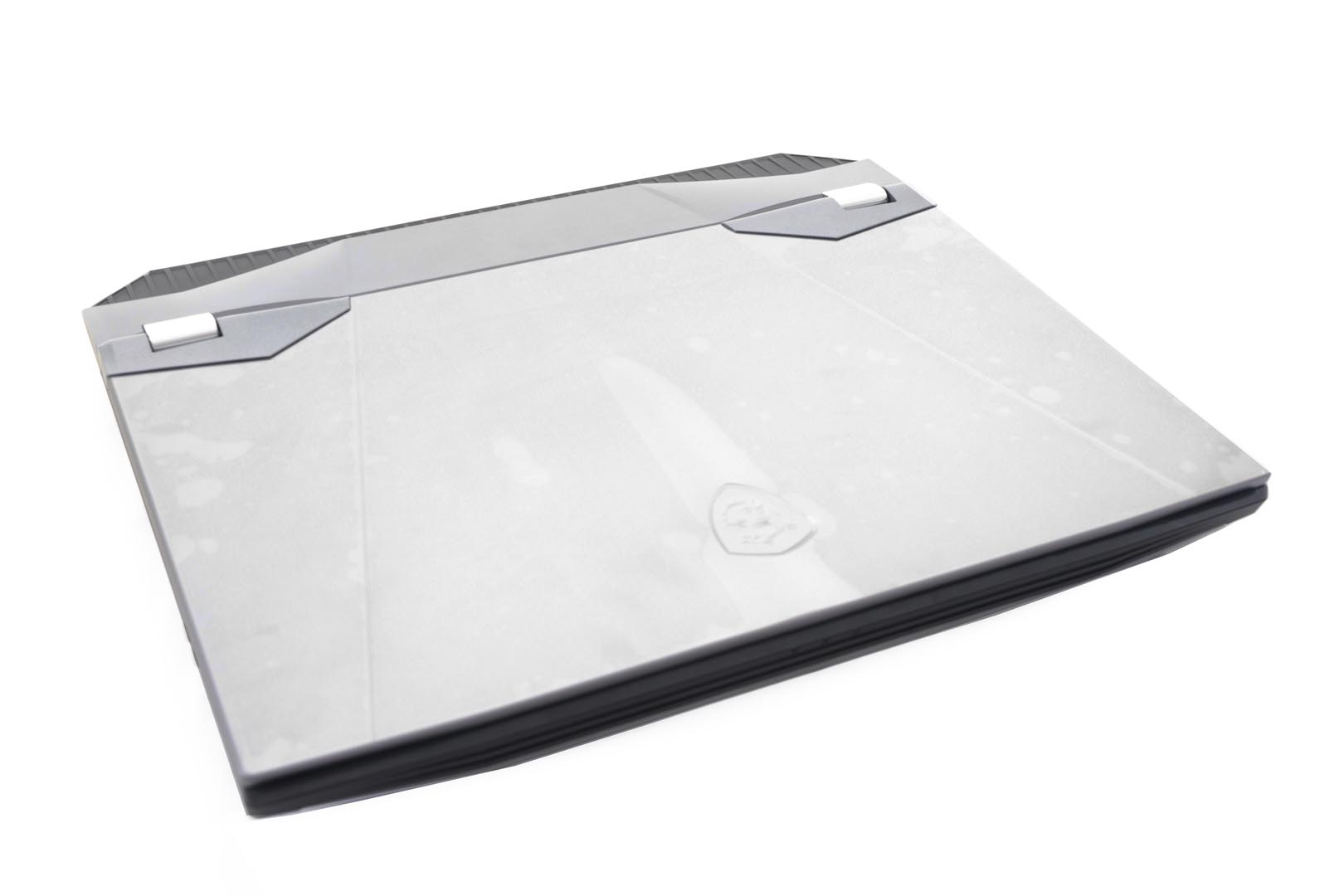

Although the rest material is made of plastic, the re-designed side A provides a diffused channel for its thick and prominent rear exhaust pipe. Plus, a cool RGB lighting system around the body is a bonus
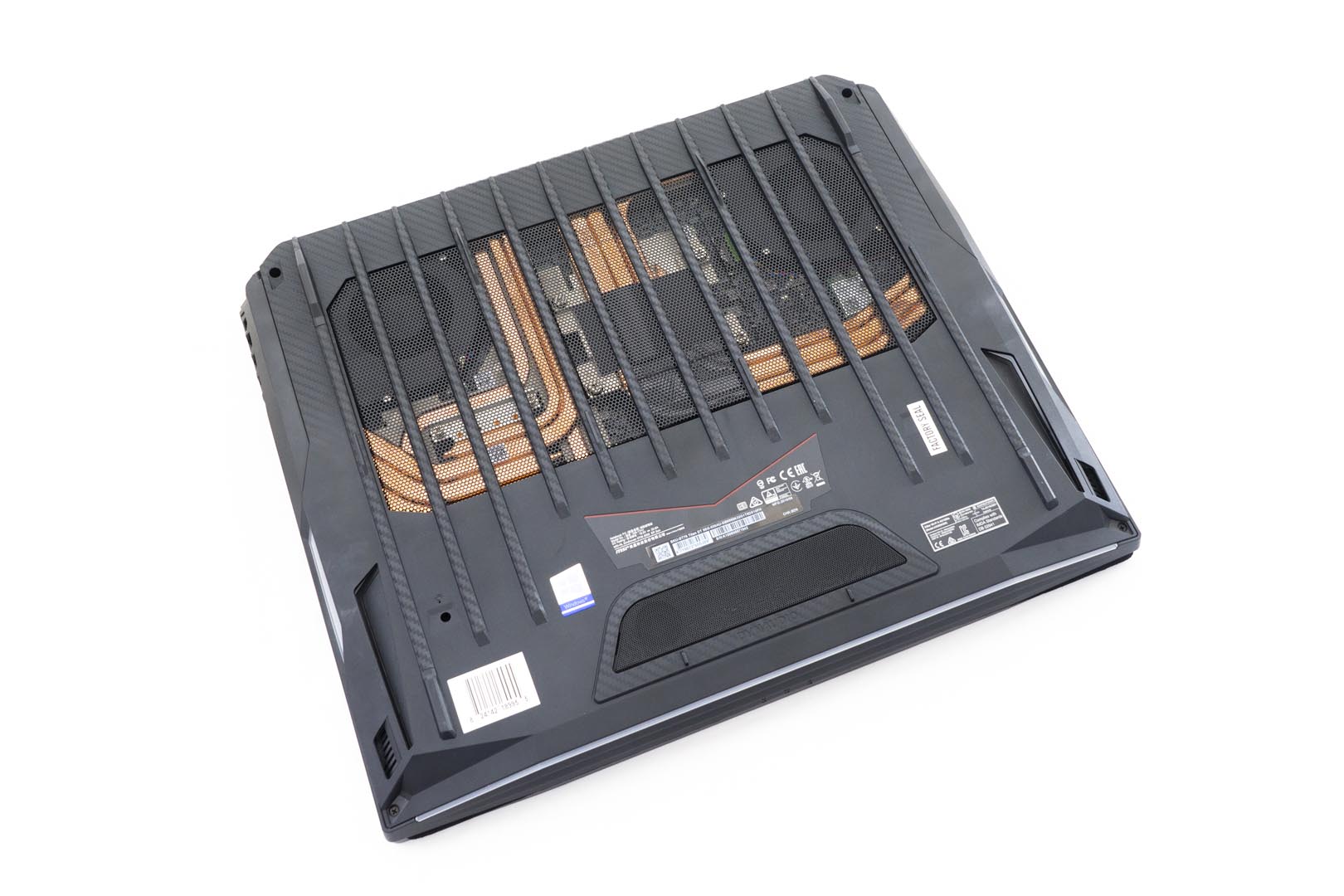
RGB strips are distributed at the rear, left, front, right, and keyboard sections
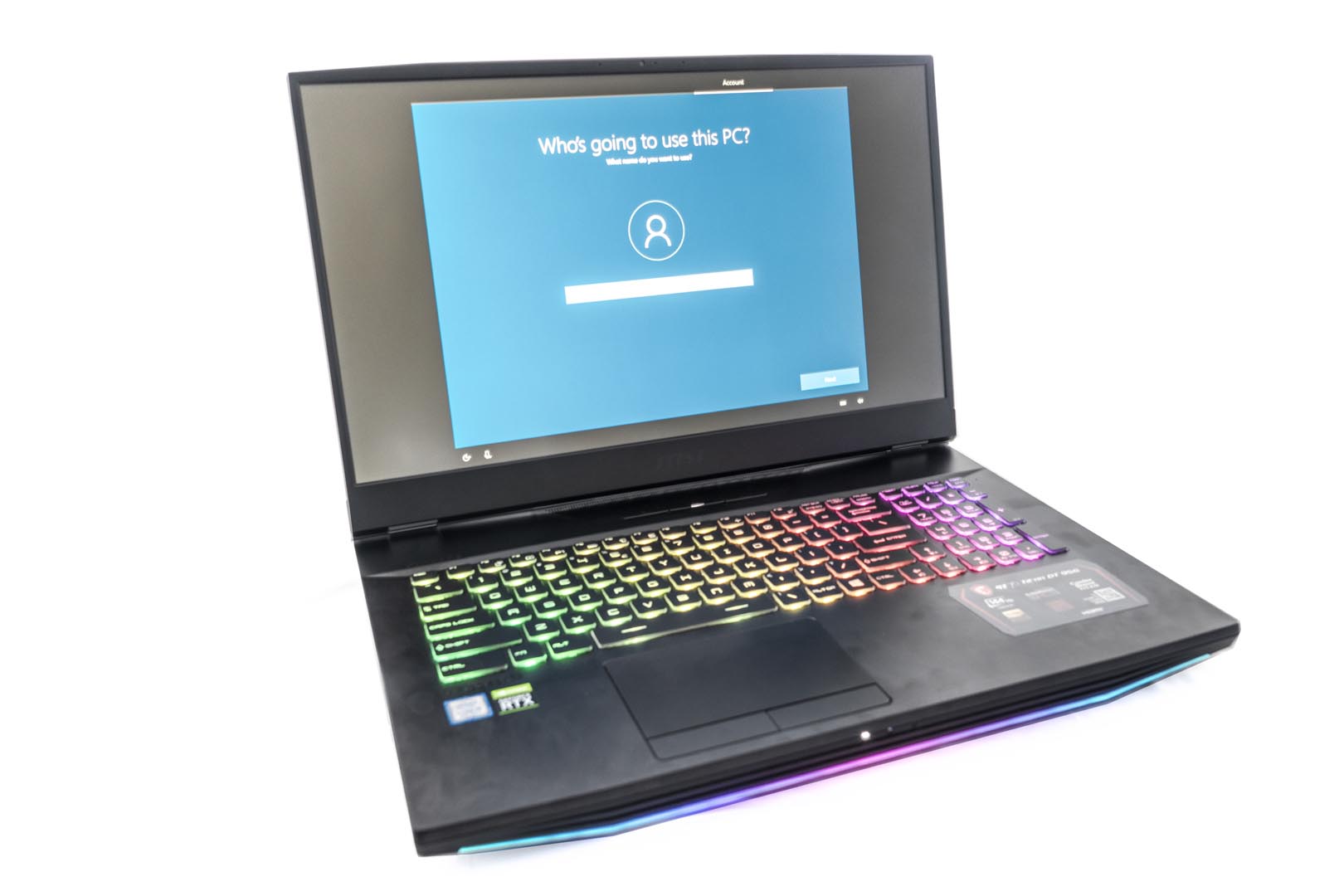
The heat-dissipating part at the back of the laptop mimics the design of supercars, and all the sharp corners act to prevent scratches
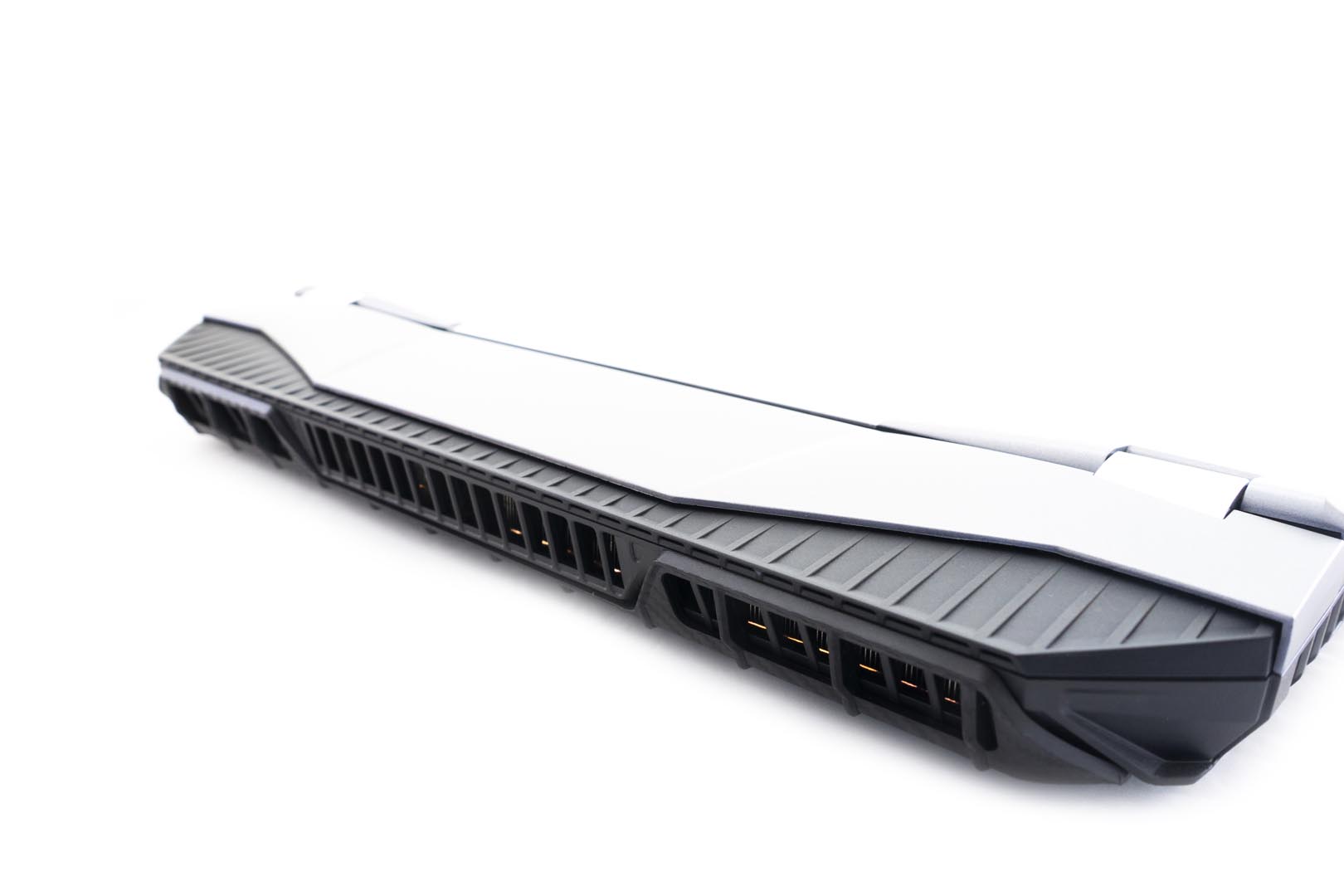
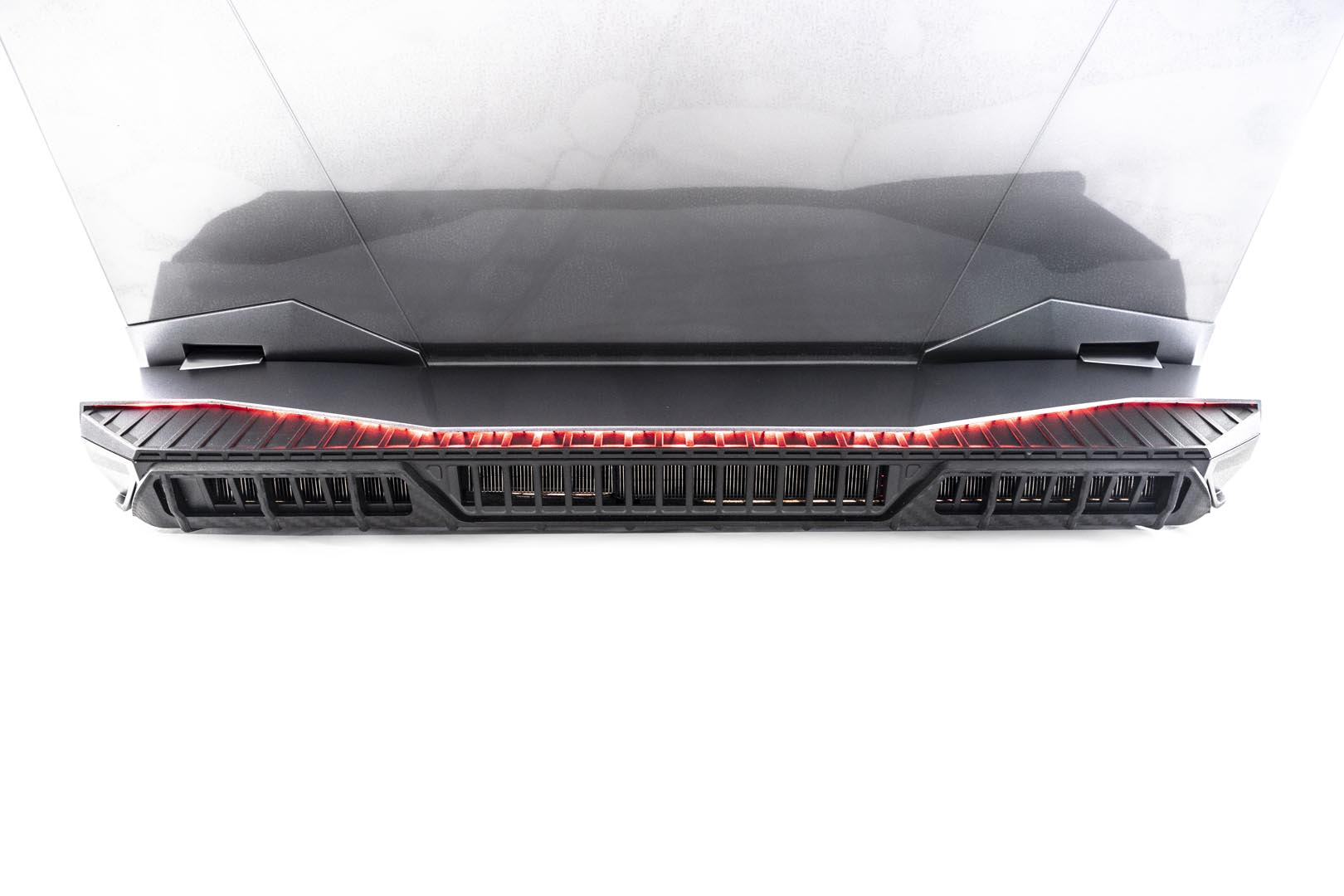
The design of the Dragon Shield has been changed from the old red to the silver. This custom shield looks and feels expensive
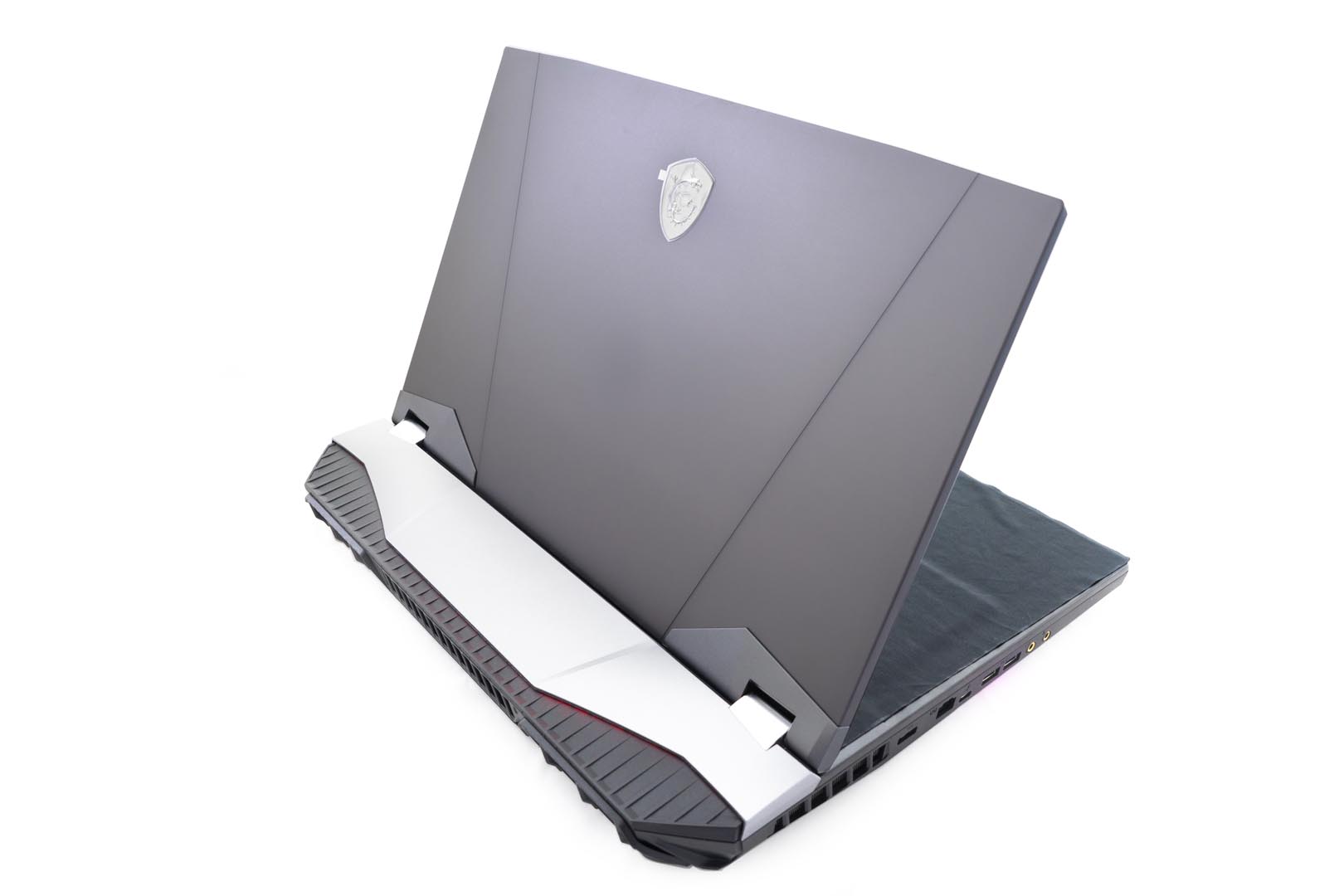
The keyboard comes from Steelseries. This time, the mechanical keyboard has not been used to reduce the weight and thickness of the whole machine
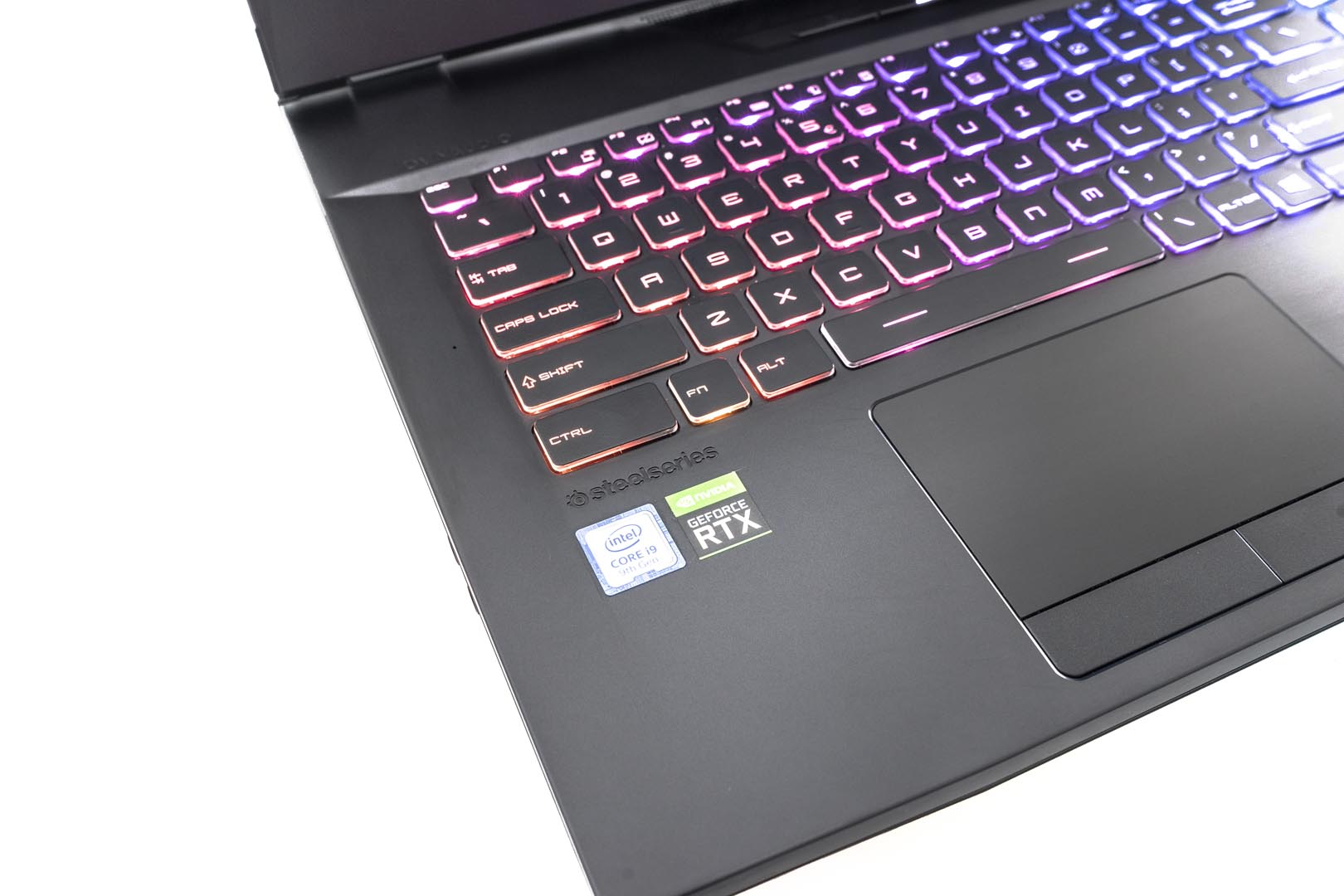
The RGB brightness of the keyboard is pretty well distributed, and the built-in Fn function key can change the RGB effect directly
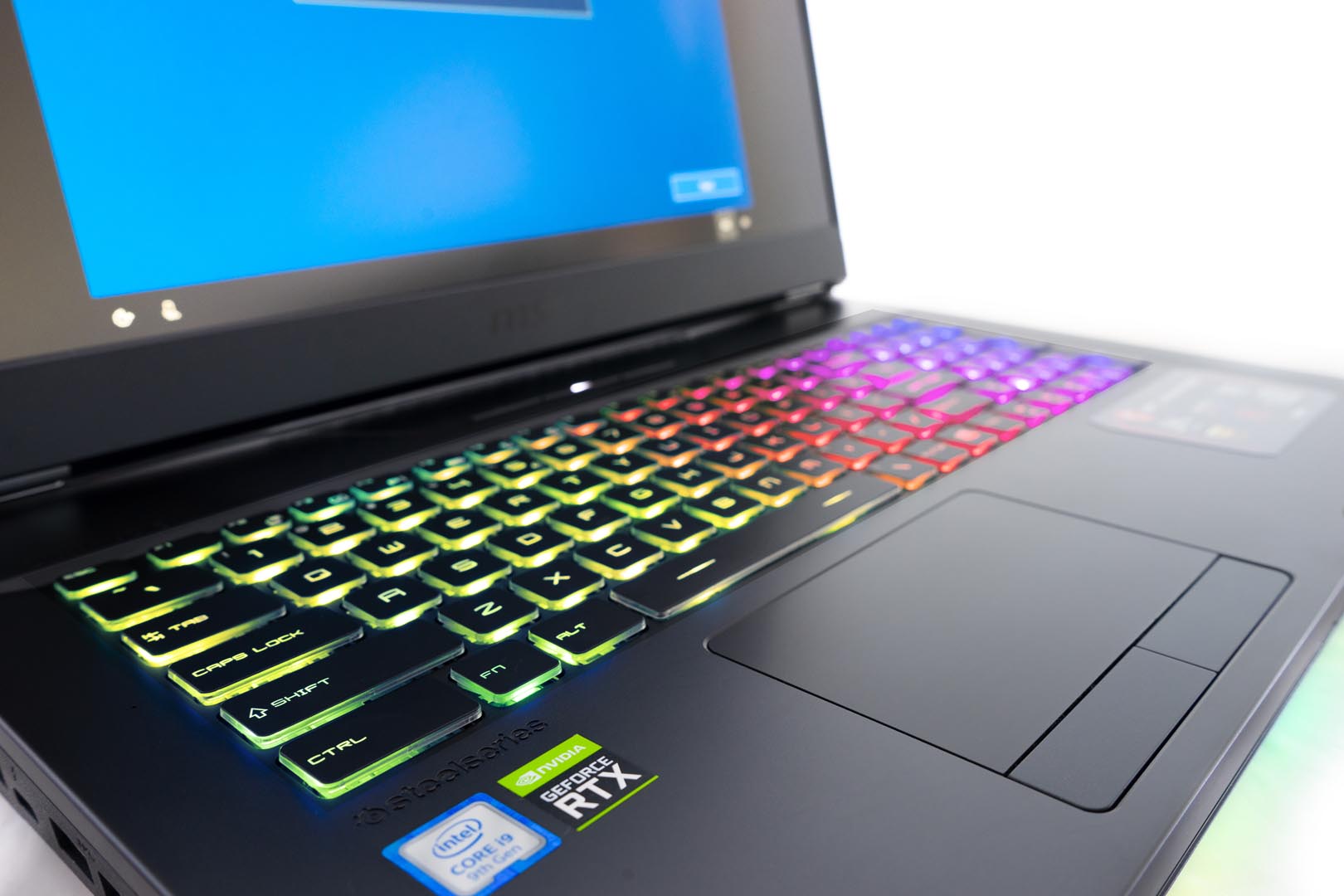
The 2.1 sound system is still from Dynaudio
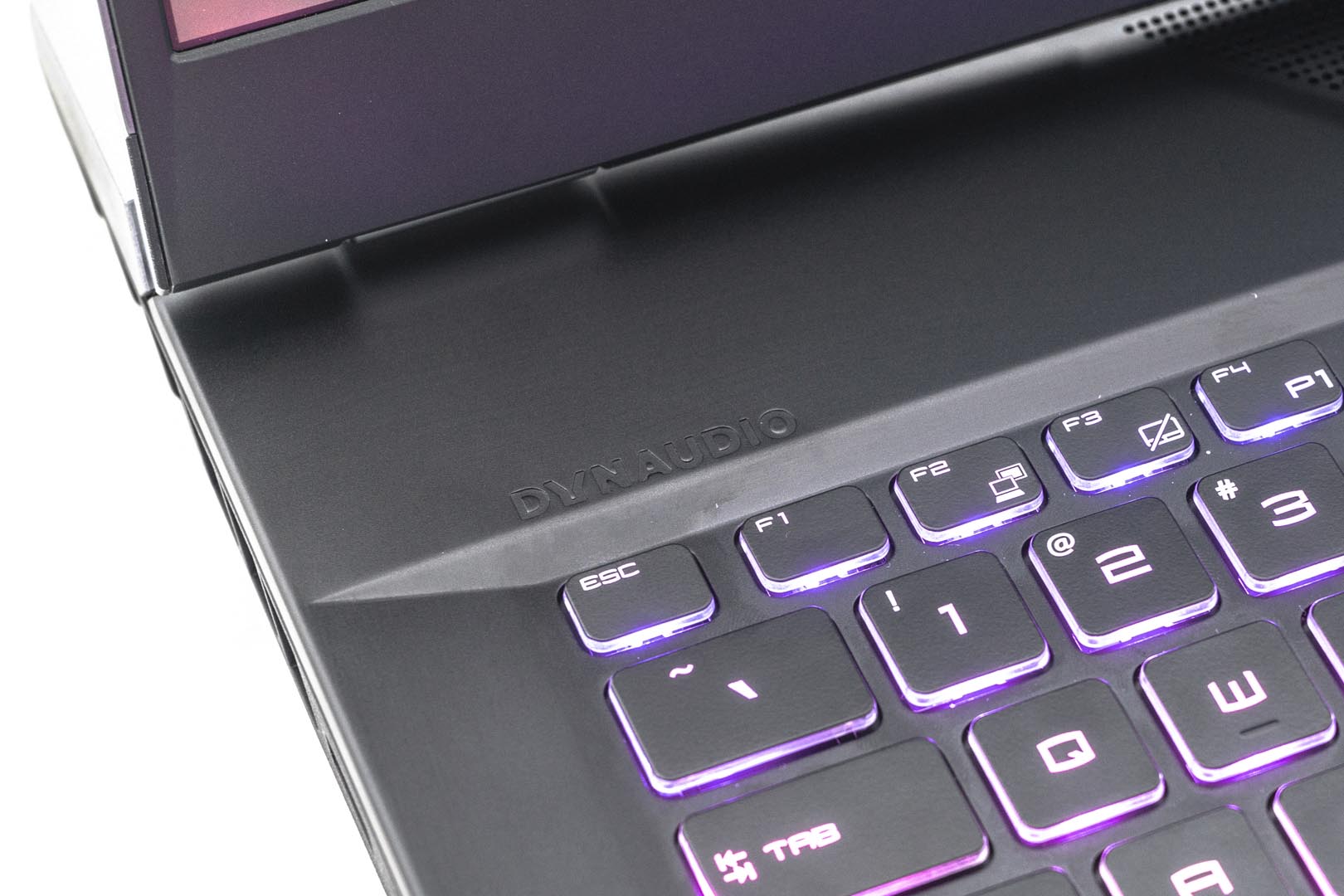
The C panel buttons from left to right are the Cooler Boost button, the on/off switch button and the Dragon Center button
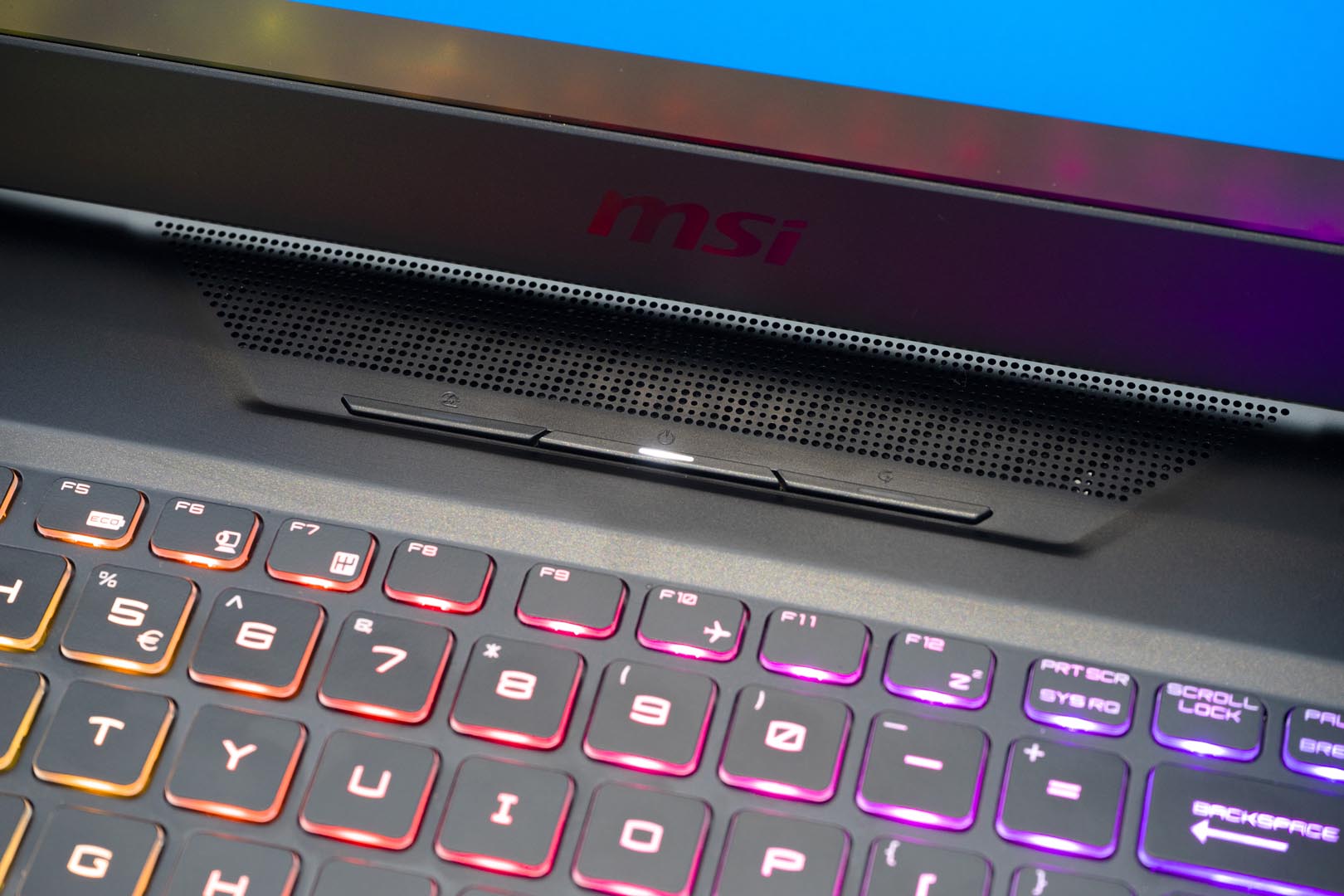
The touchpad is separated by the touch area and buttons, which avoids accidental touch and improves the feel
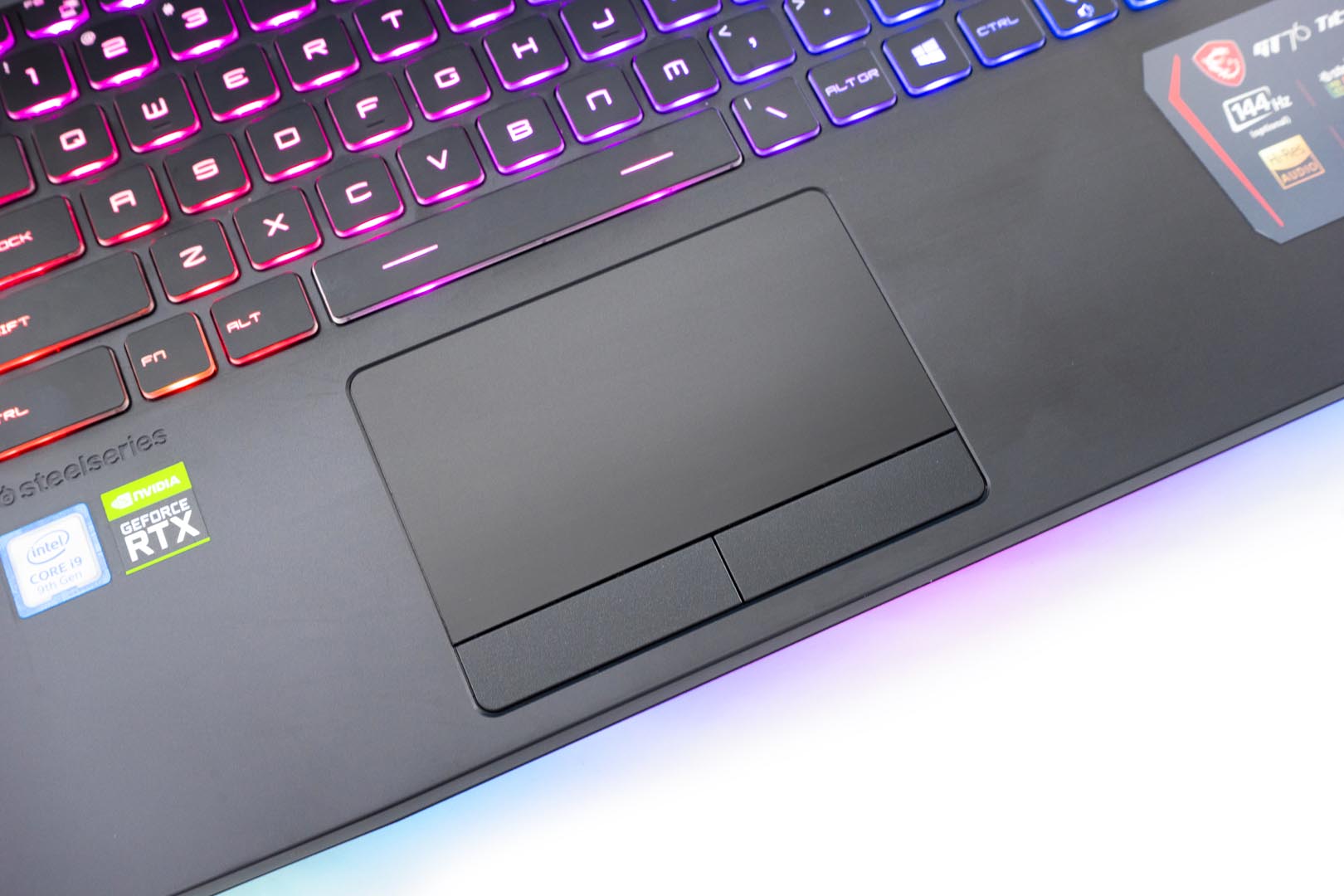
The 720p camera on the top of the B cover is next to the built-in directional noise reduction microphone

The power supply is the classic “double-headed dragon”, two 230W A12-230P1A from Chicony with 4pin interface design, these adapters can be replaced by the Delta ADP-230EB T
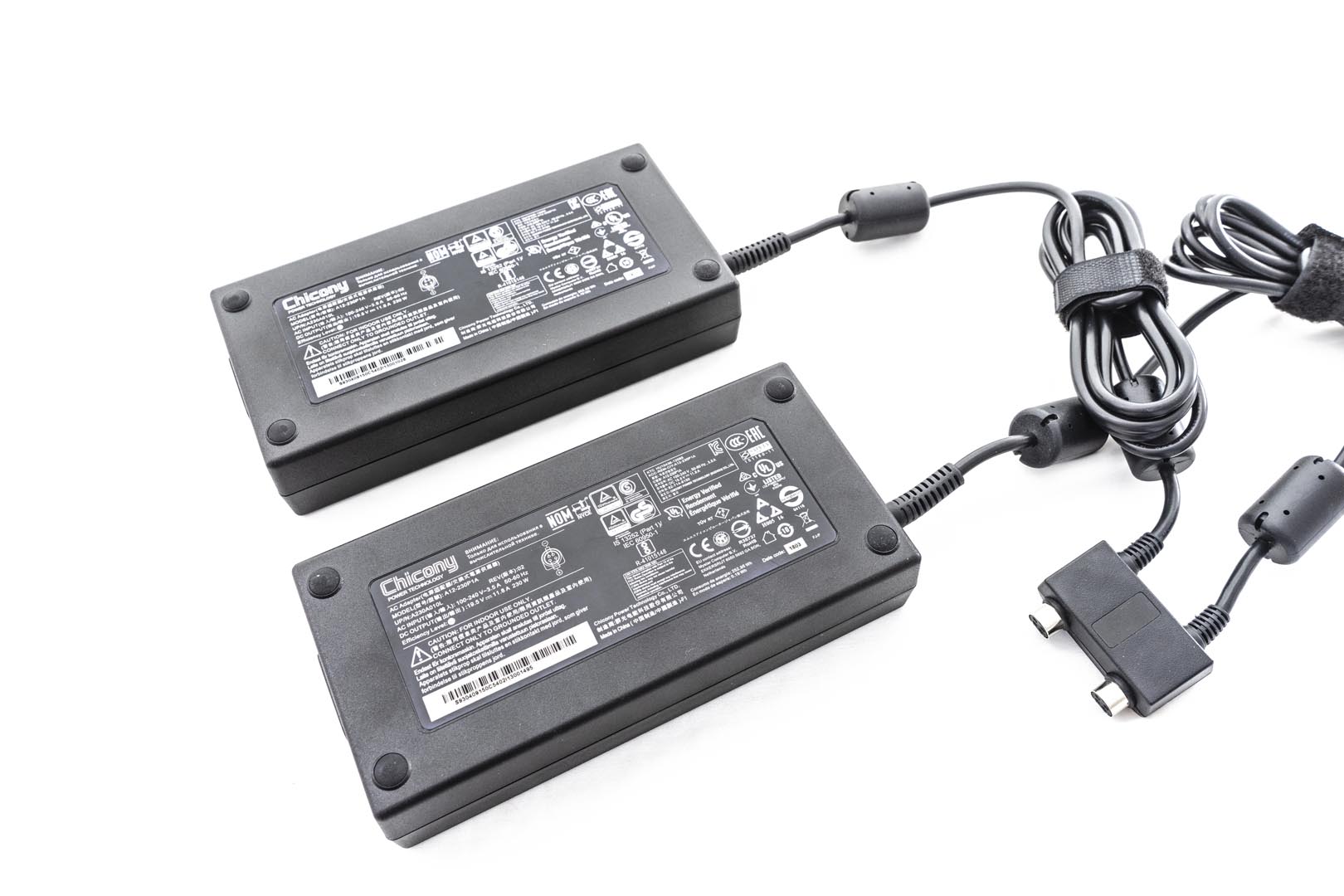
Power aggregation Adapter, the computer side of this adapter is a special connector, if it is damaged, then it cannot be replaced, the only way is to contact customer service and request a replacement
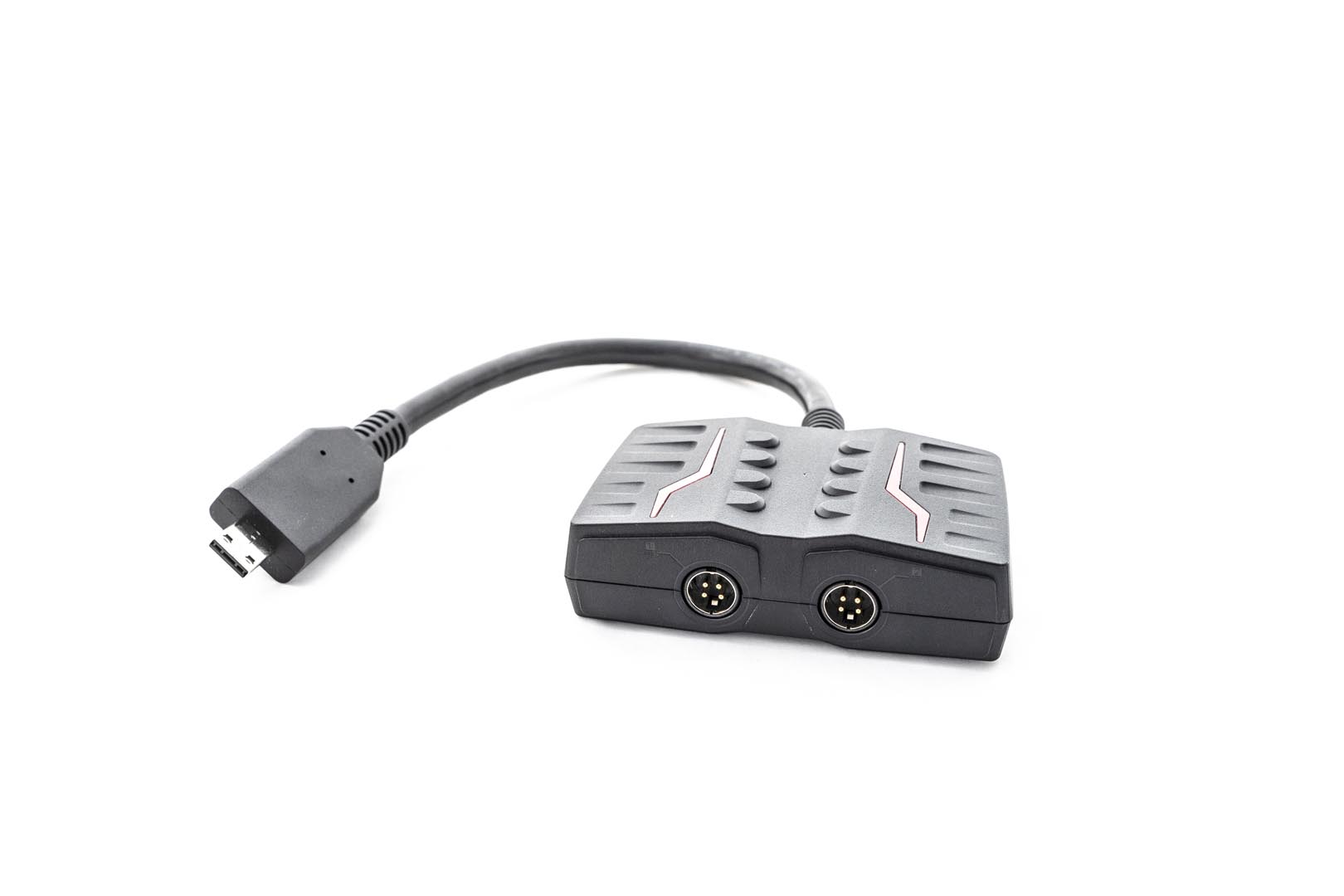
I/O Analysis
The laptop front side – the thickness of 42 mm is reduced compared to the previous generation, and the bottom side has integrated an RGB light strip

The laptop rear side – The heat sink almost covers the entire rear side and it is the heat dissipation channel of the entire machine
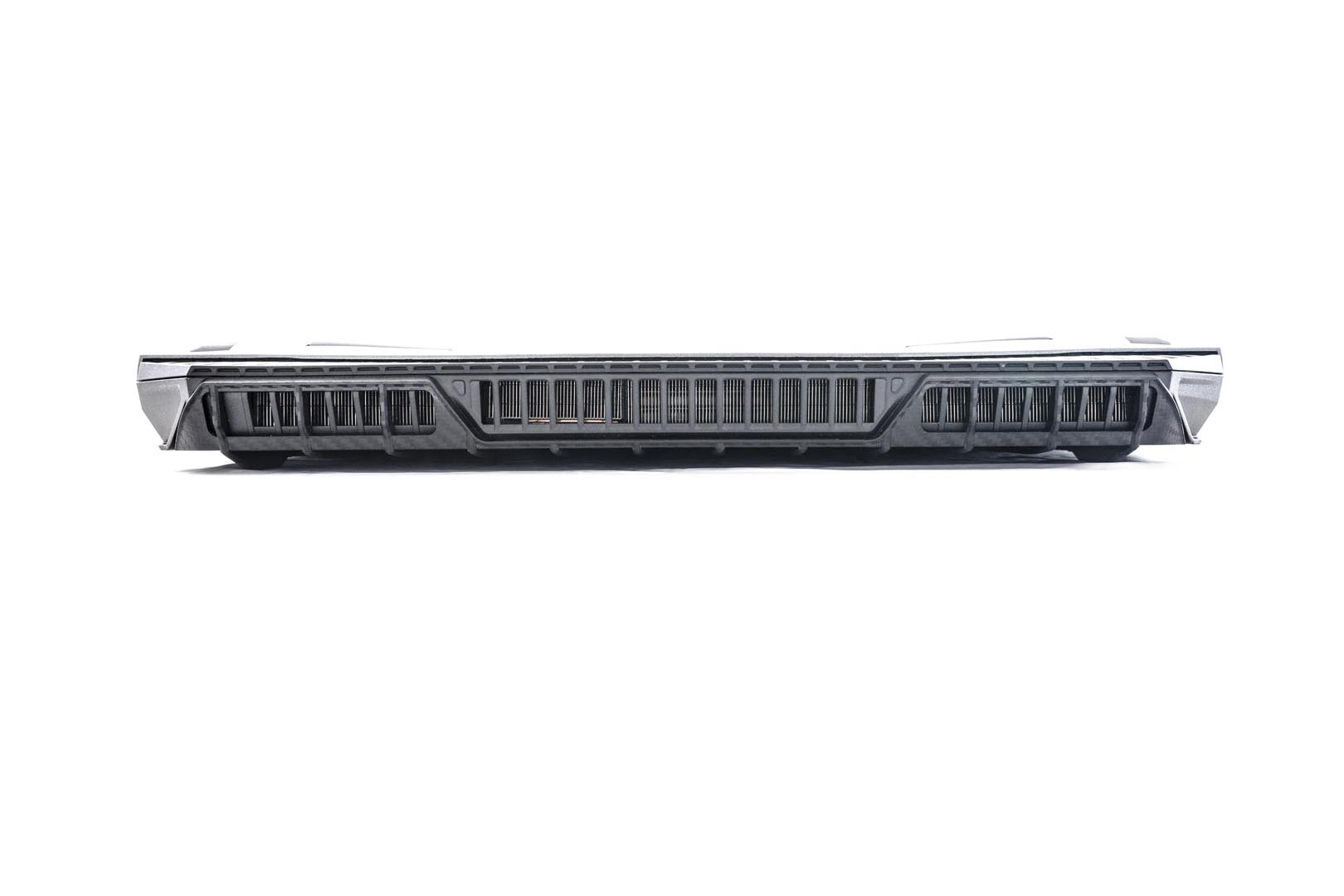
The laptop right side – I/O are the Micro SD card readers, 2 x USB3.2 Type-A Gen2, 1 x USB3.2 Type-C Gen2, 1 x mini DP and 1 x HDMI 2.0 (4K@60Hz)

The laptop left side – I/O are the power jack, Killer 2.5Gb LAN, 1 x Type-C (USB3.2 Gen2 / DP / Thunderbolt™3), 2 x USB3.2 Type-A Gen2, headphone port and microphone port
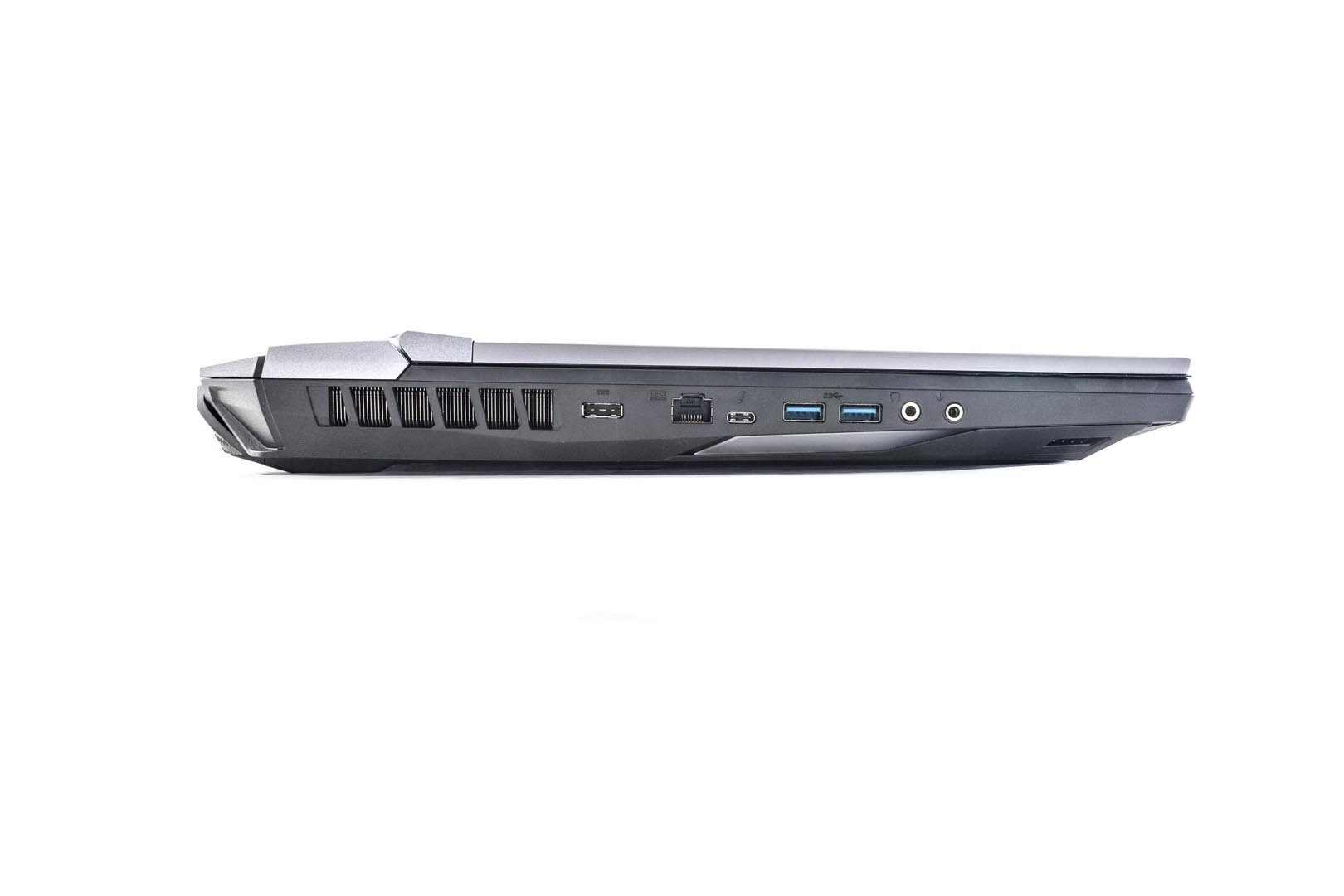
The laptop overall weight: 4.21KG
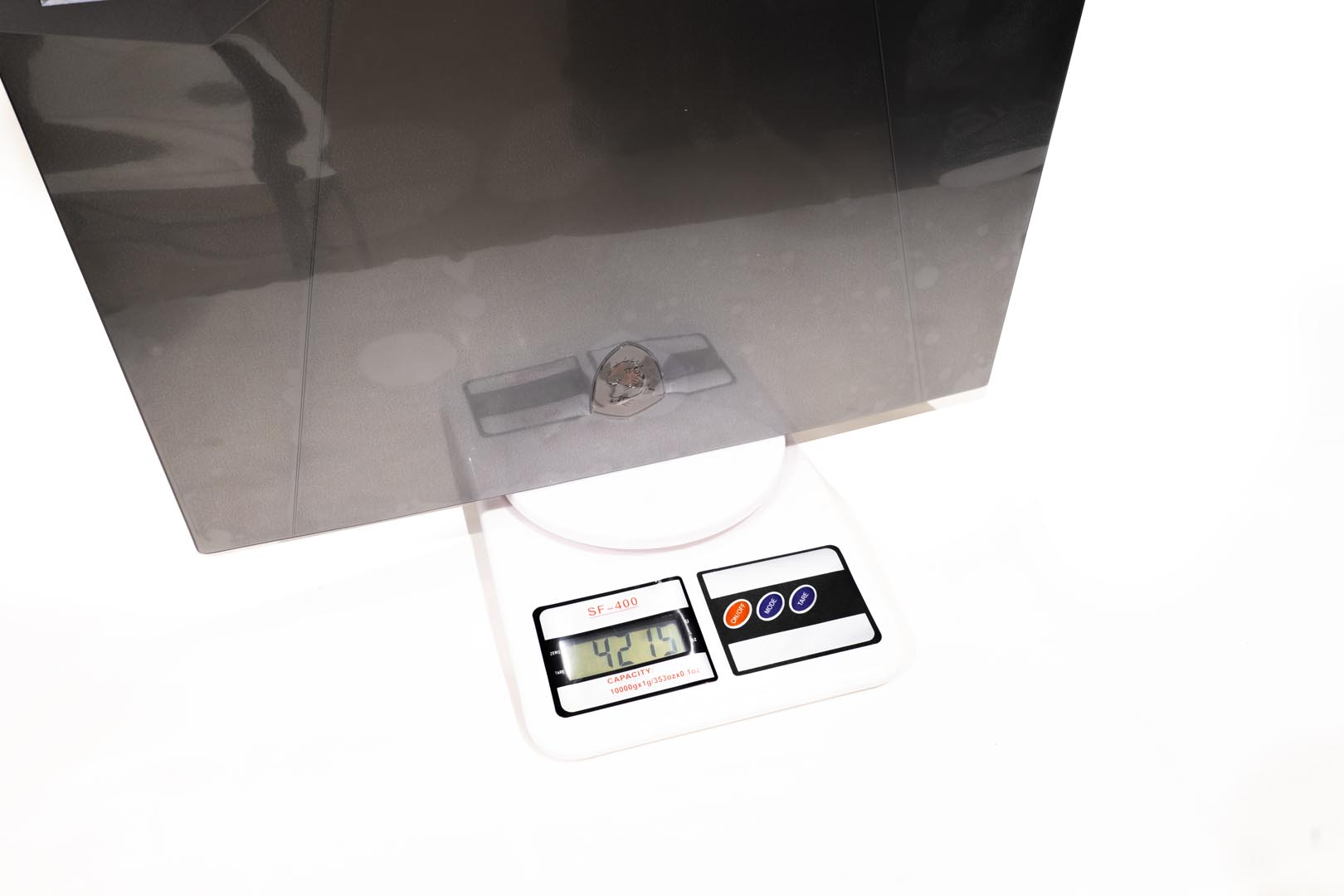
The power adapter package overall weight: 2.43KG
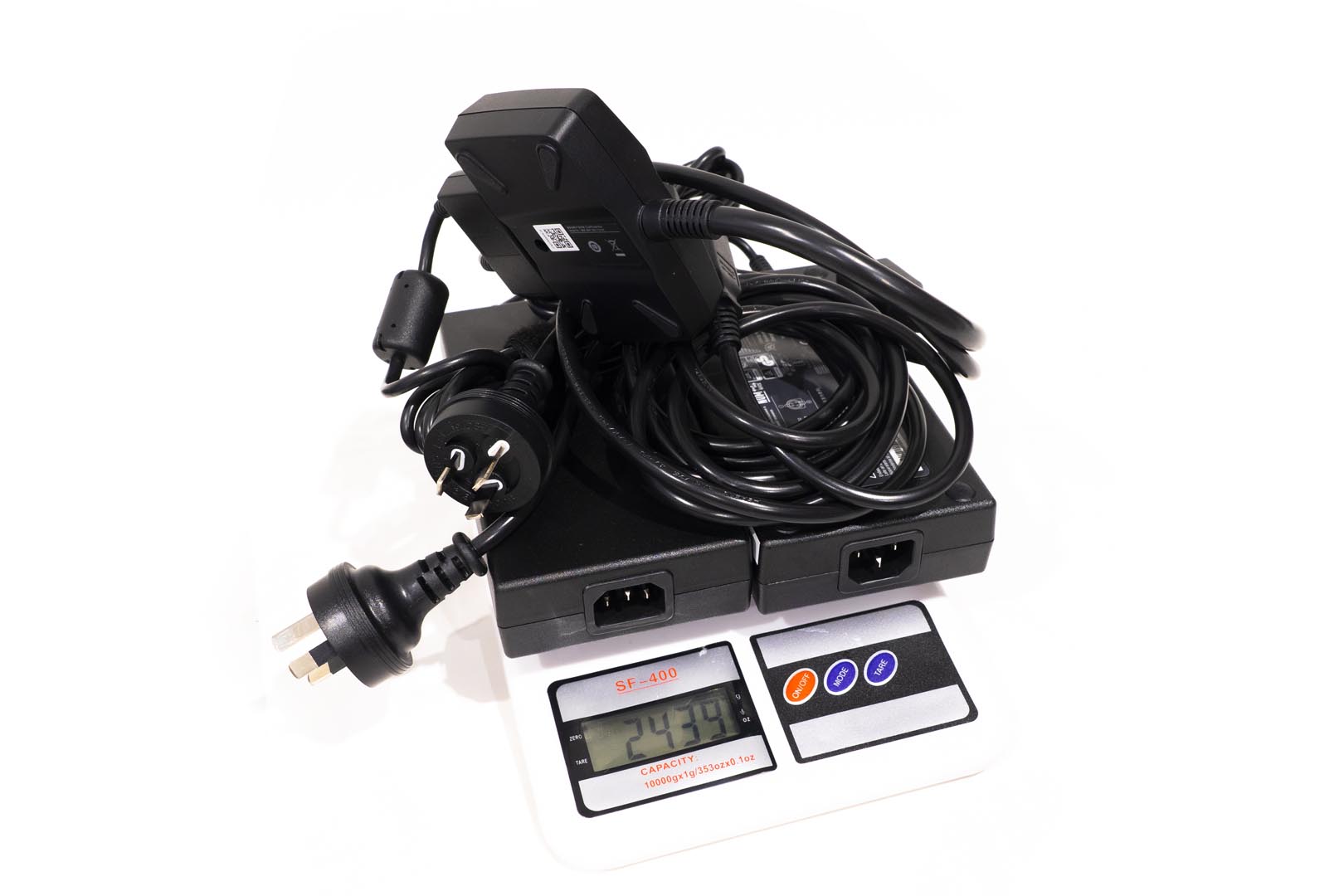
Screen Analysis
The screen panel is B173ZAN03.0, 17.3″, 16:9 60Hz 4K IPS IGZO, 100% Adobe RGB, manufactured by AUO
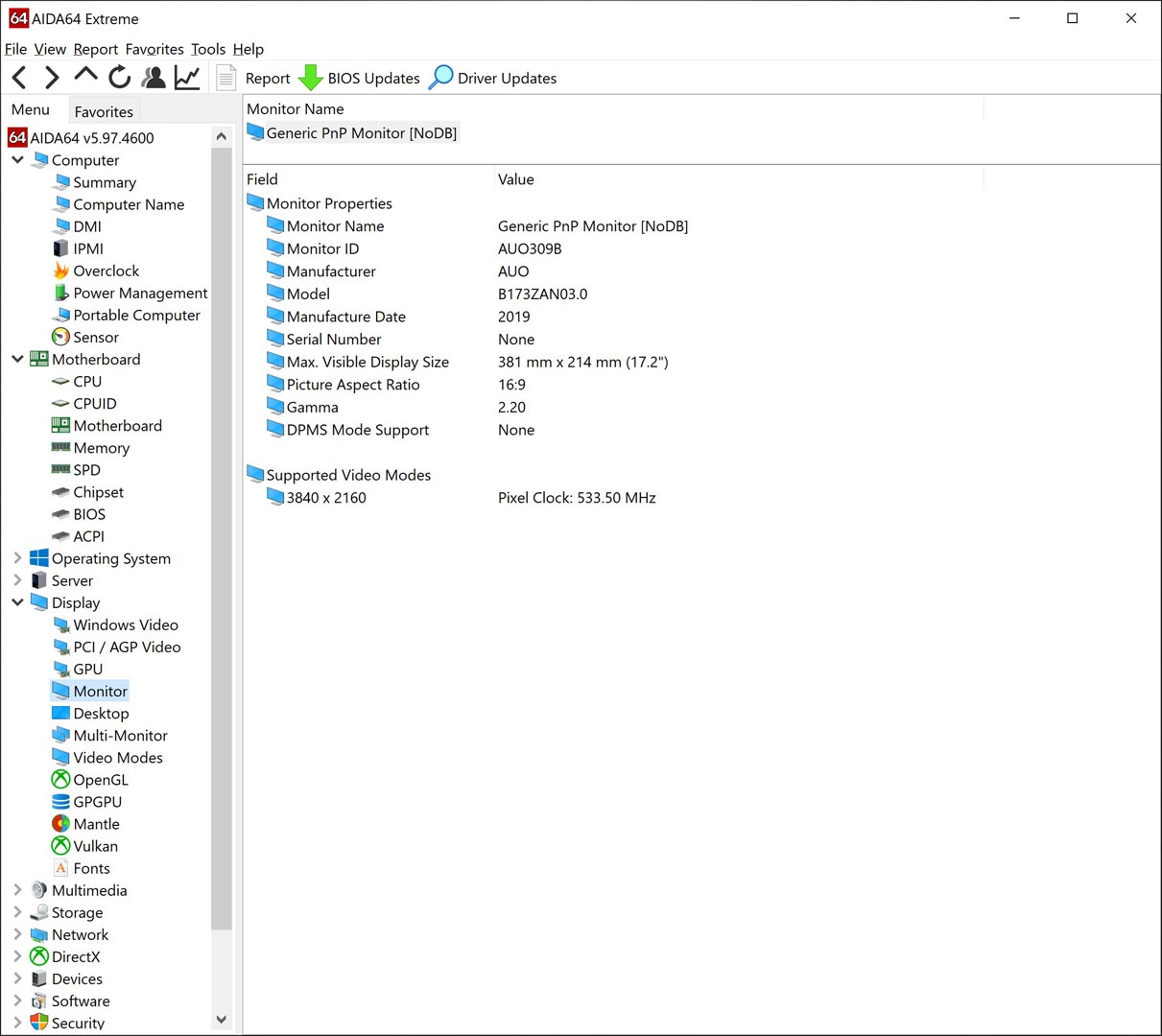
Screen Calibration
Before the calibration, we have tested the MSI TRUEcolour application, but the software remains at the previous version, there is no “Adobe RGB” mode but a Designer mode instead, it’s not quite functional
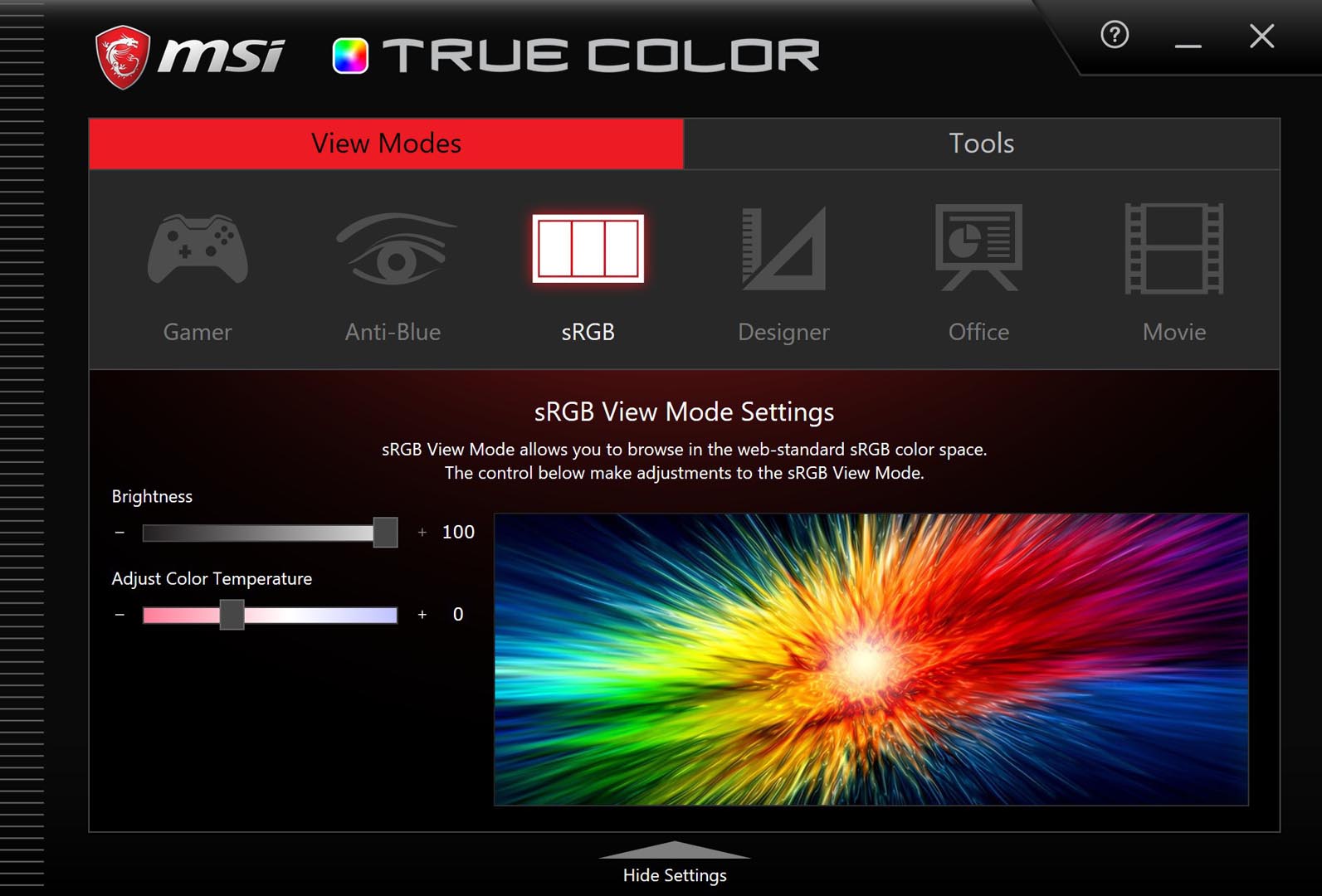
According to the media update email from MSI, we have installed the latest MSI TRUE COLOR, now it shows the correct model and it’s functional
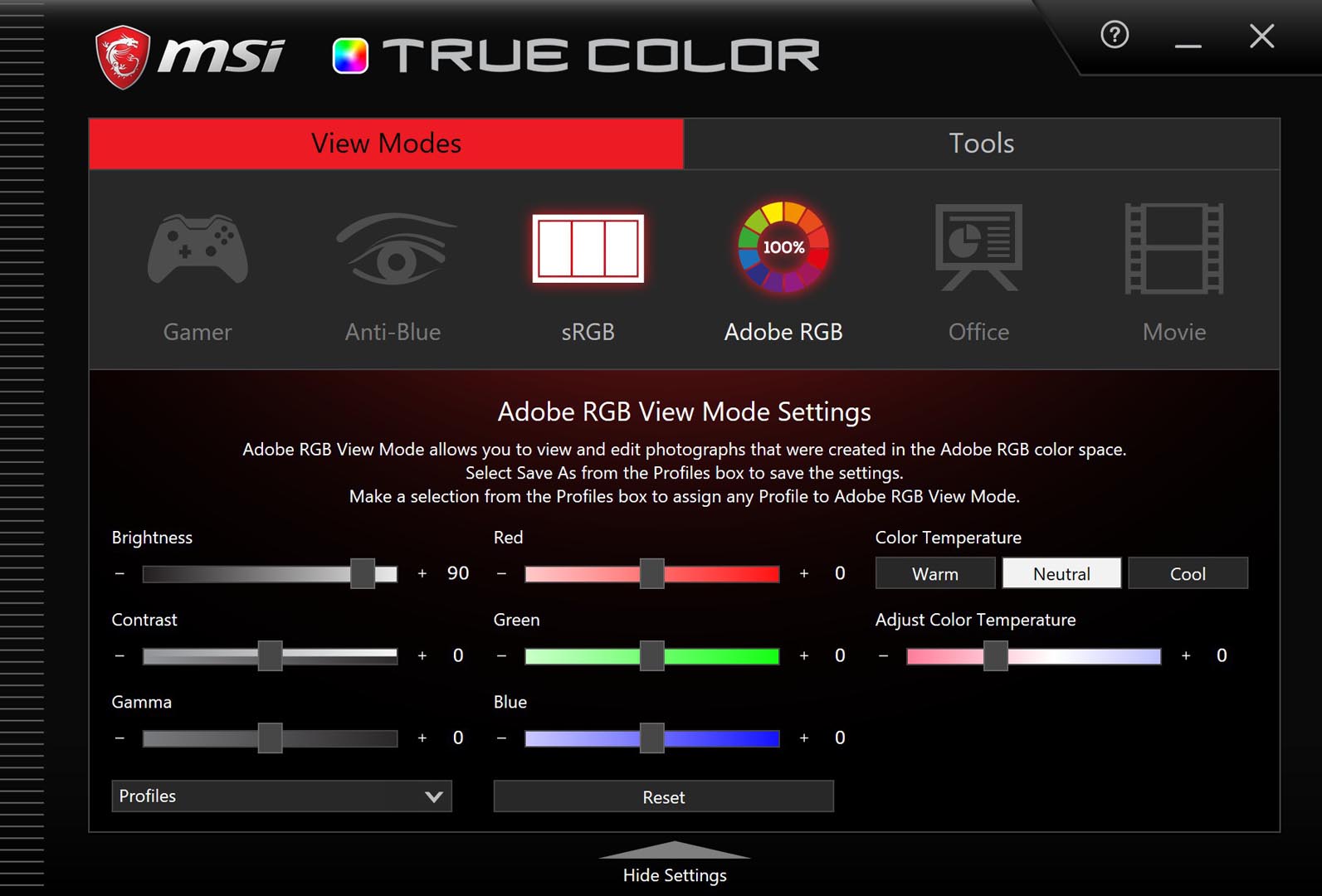
We are using the Datacolor Spyder 4 Elite for screen calibration, the screen temperature is under 6500K
The Gamut test result, this panel comes in with 100% of sRGB, 98% of AdobeRGB
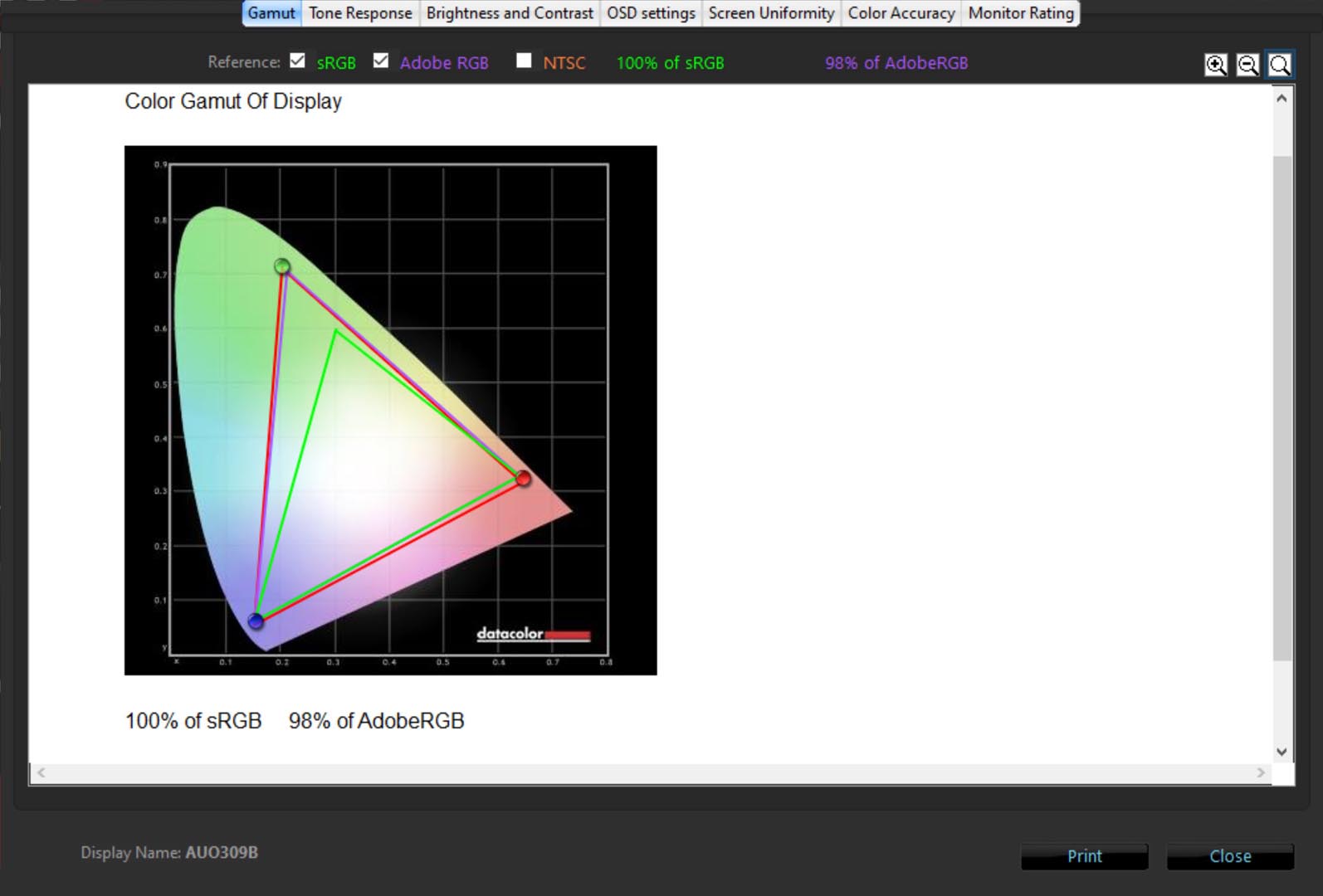
The Tone Response test result, the two curves almost coincide
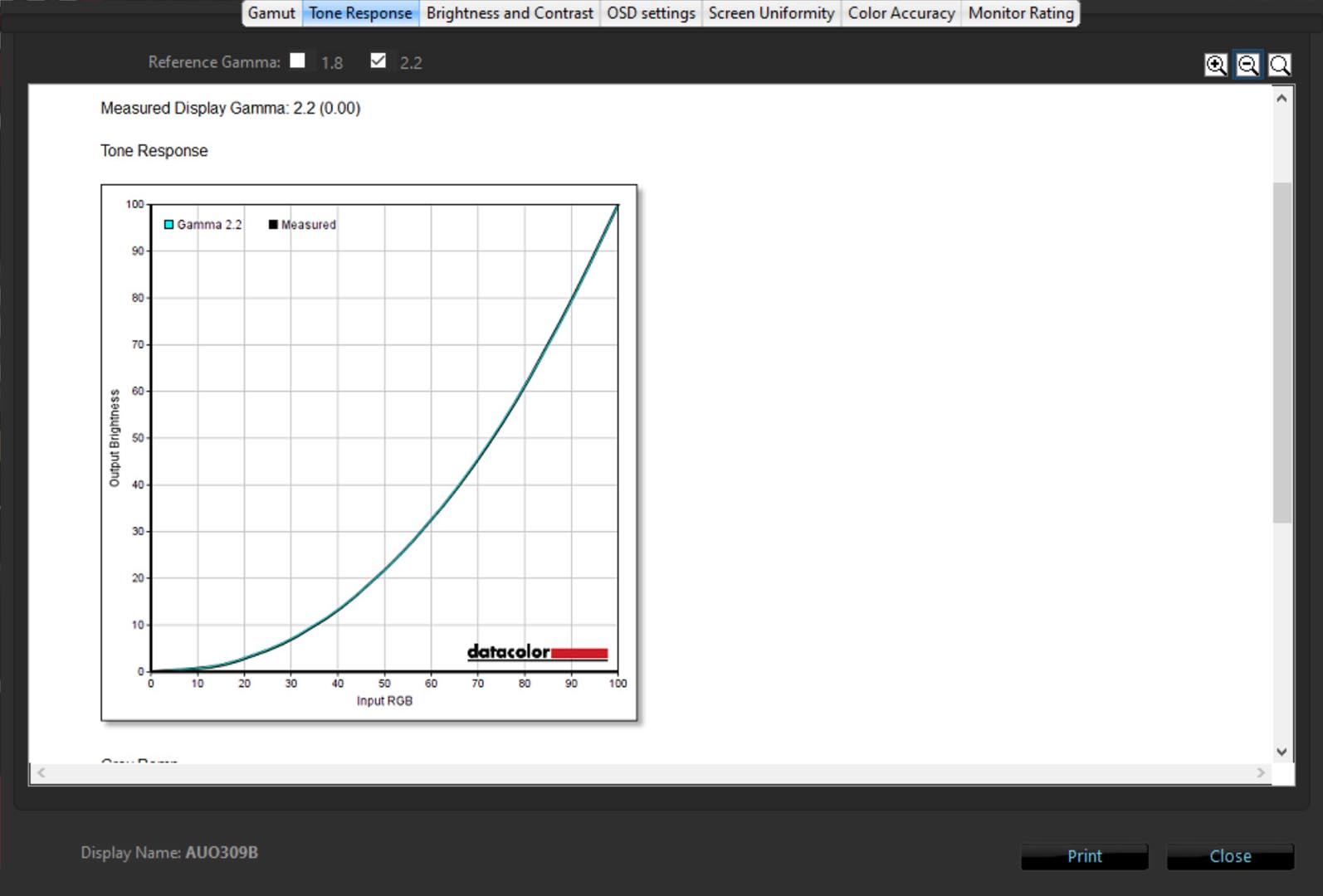
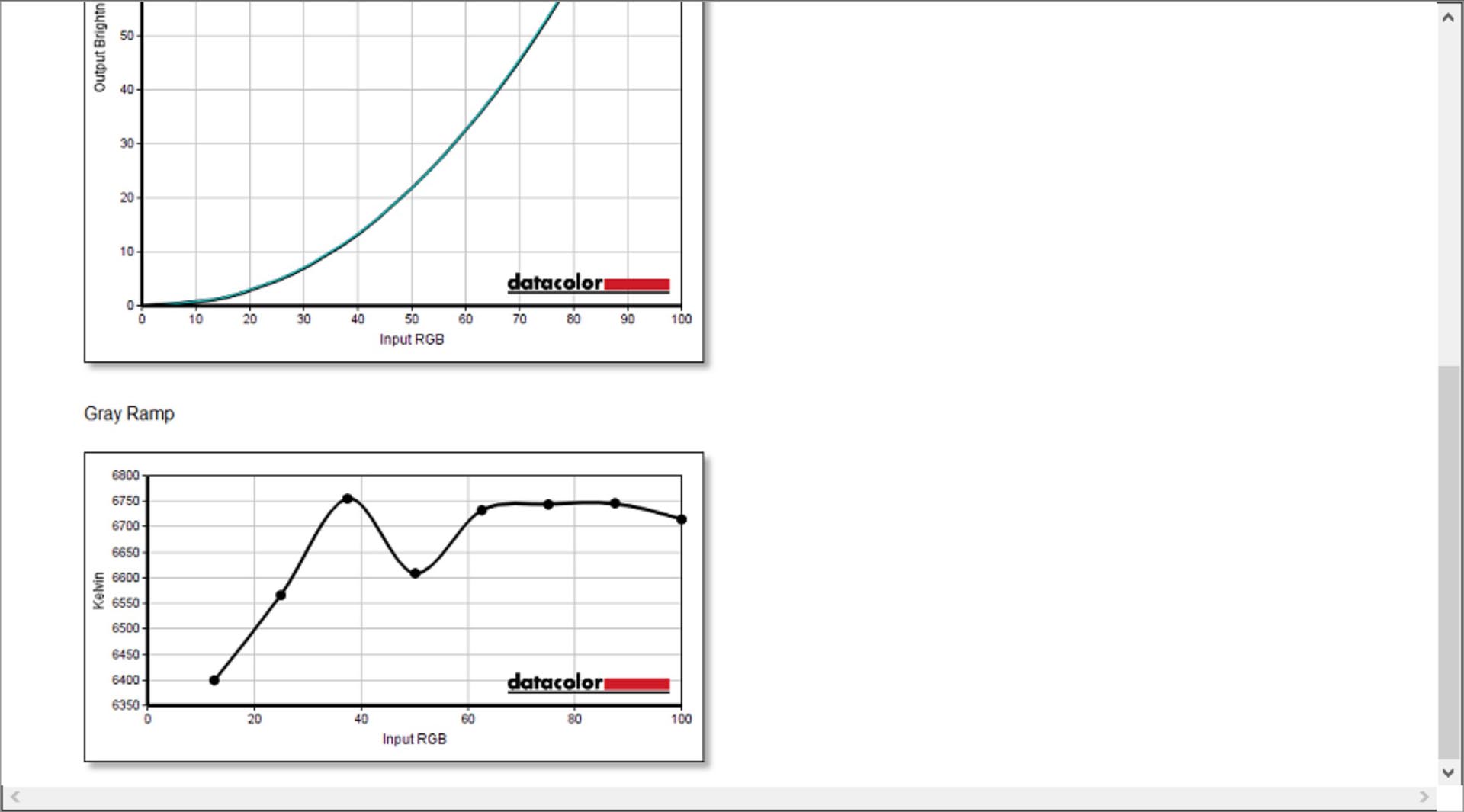
The Brightness & Contrast tests result
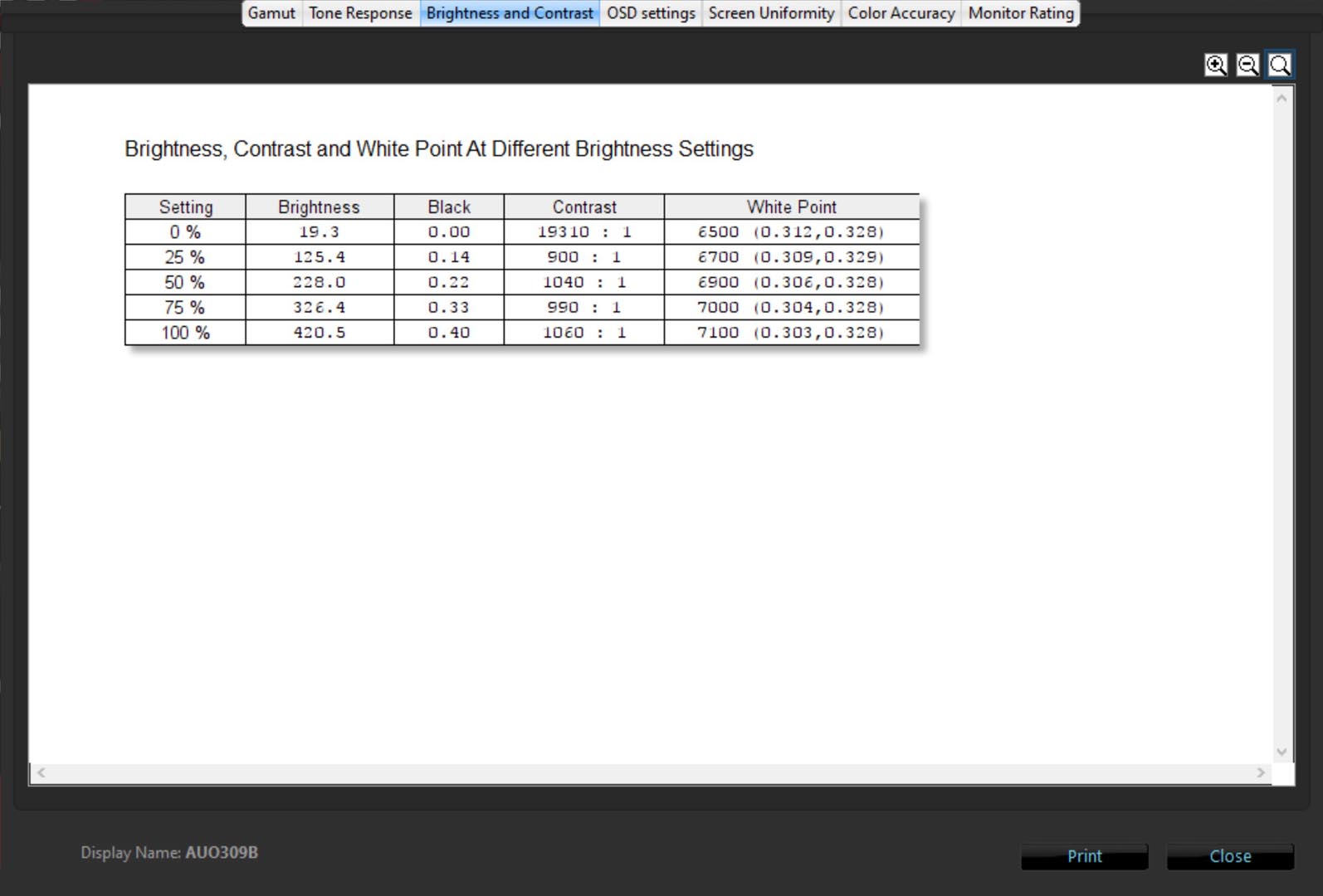
The Screen Uniformity tests result
Colour Uniformity for Brightness from 50% to 100%
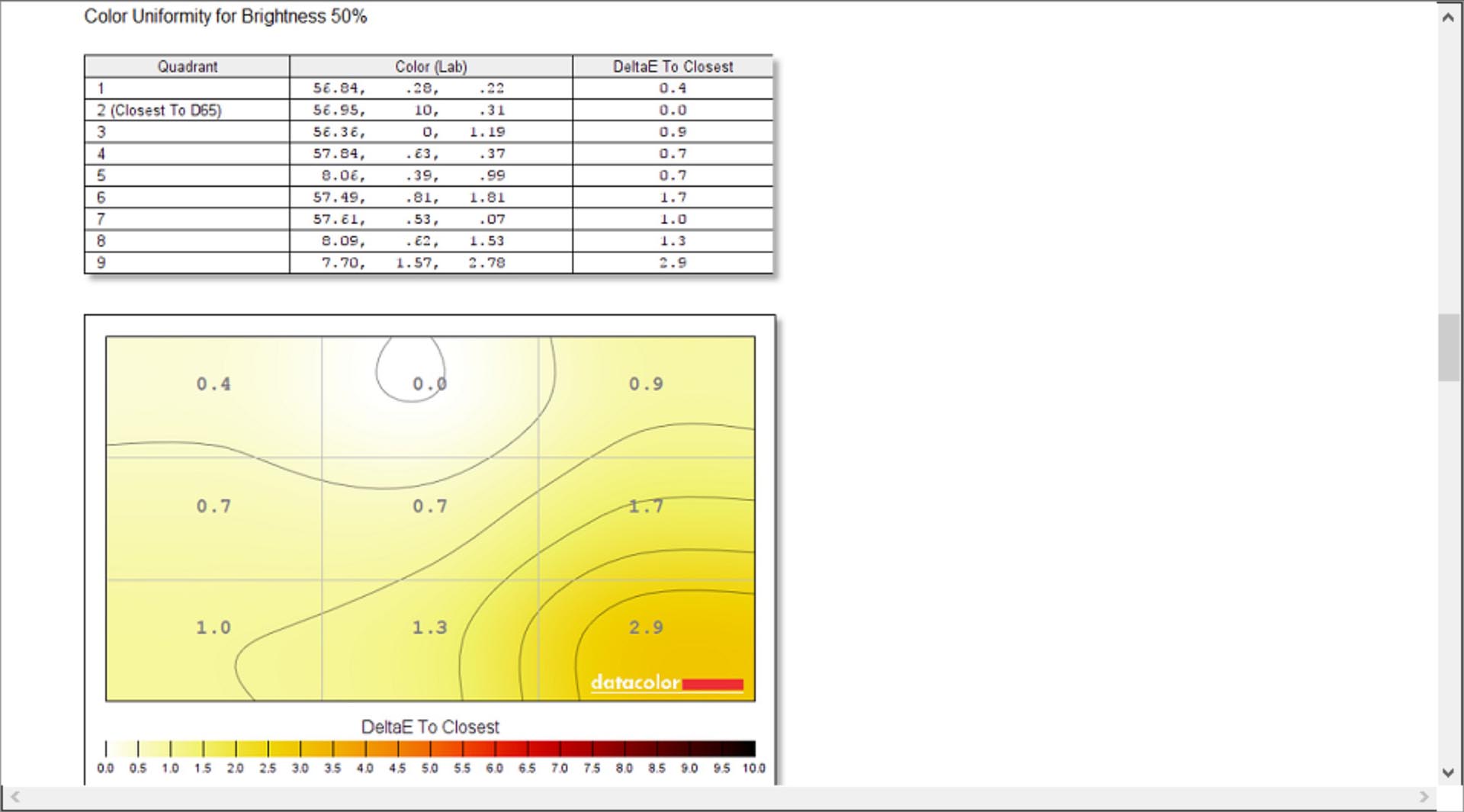

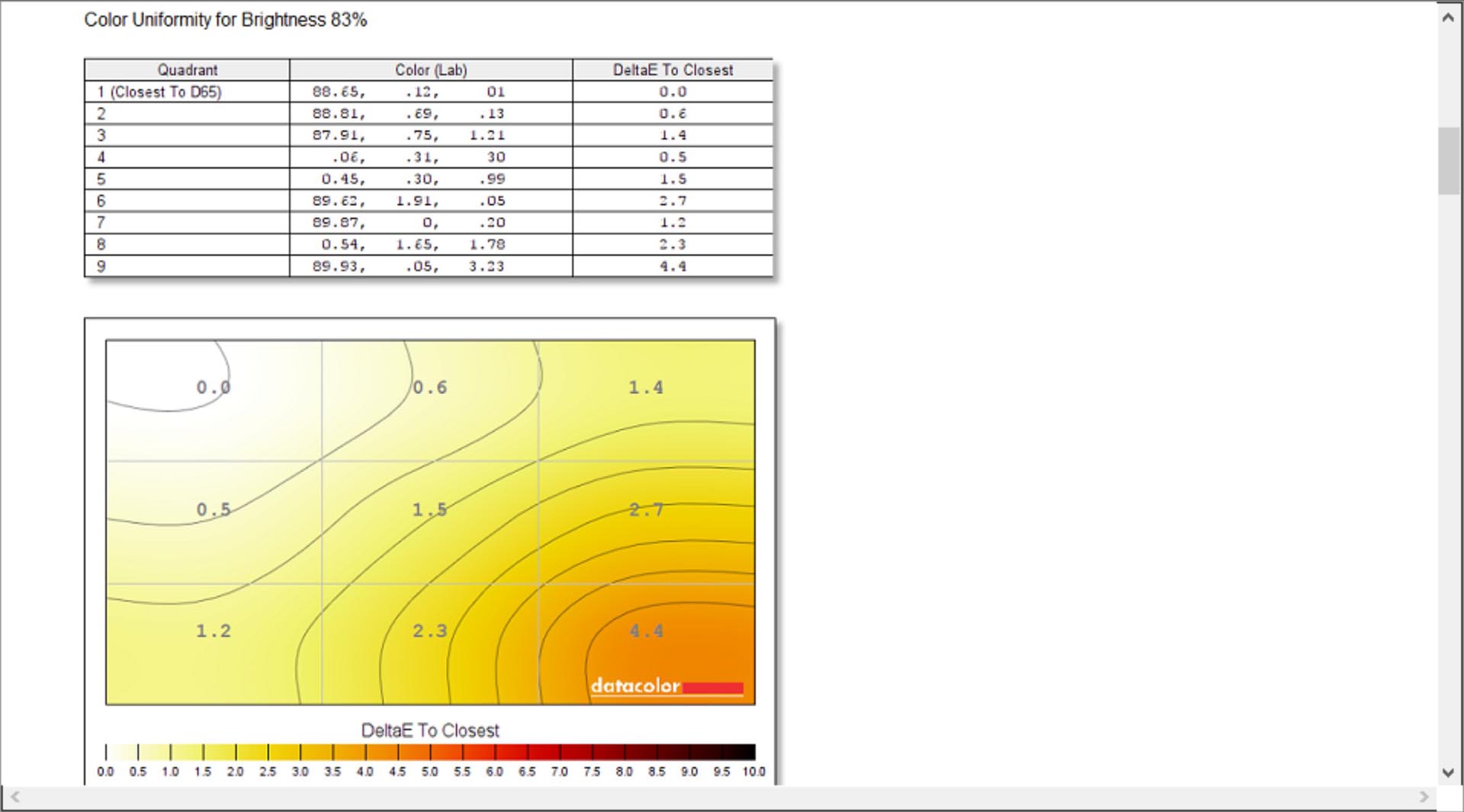
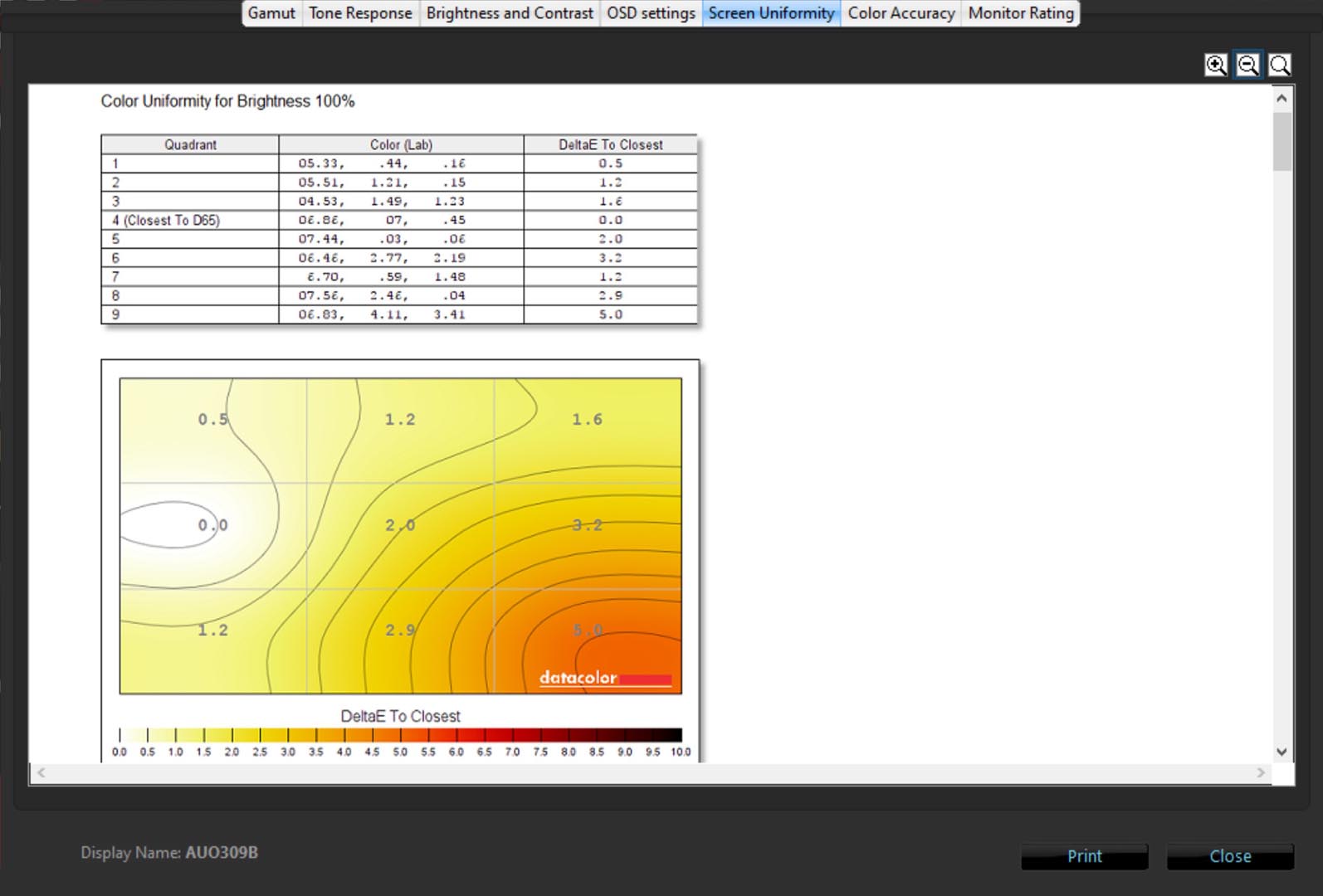
Luminance Uniformity for Brightness from 50% to 100%

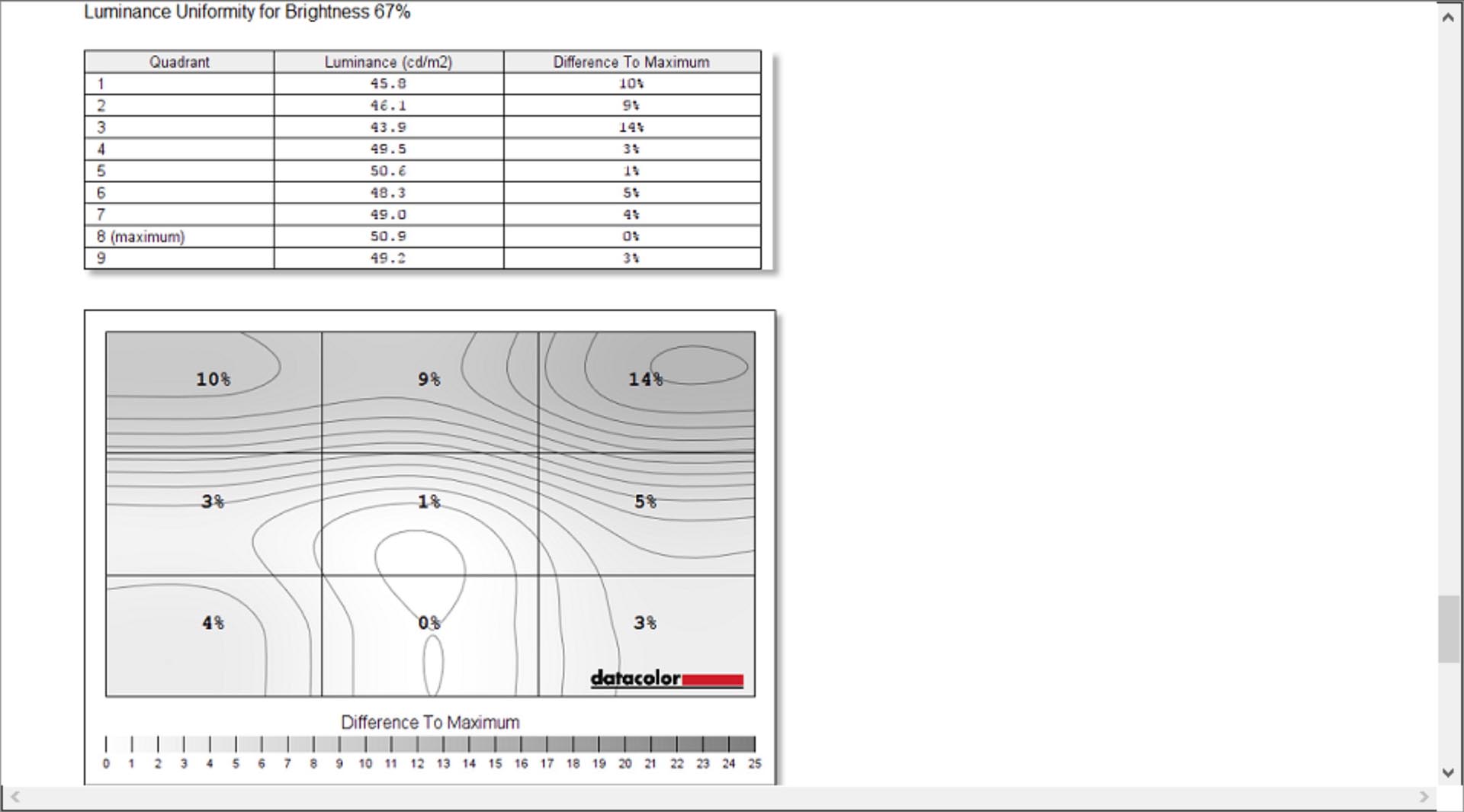
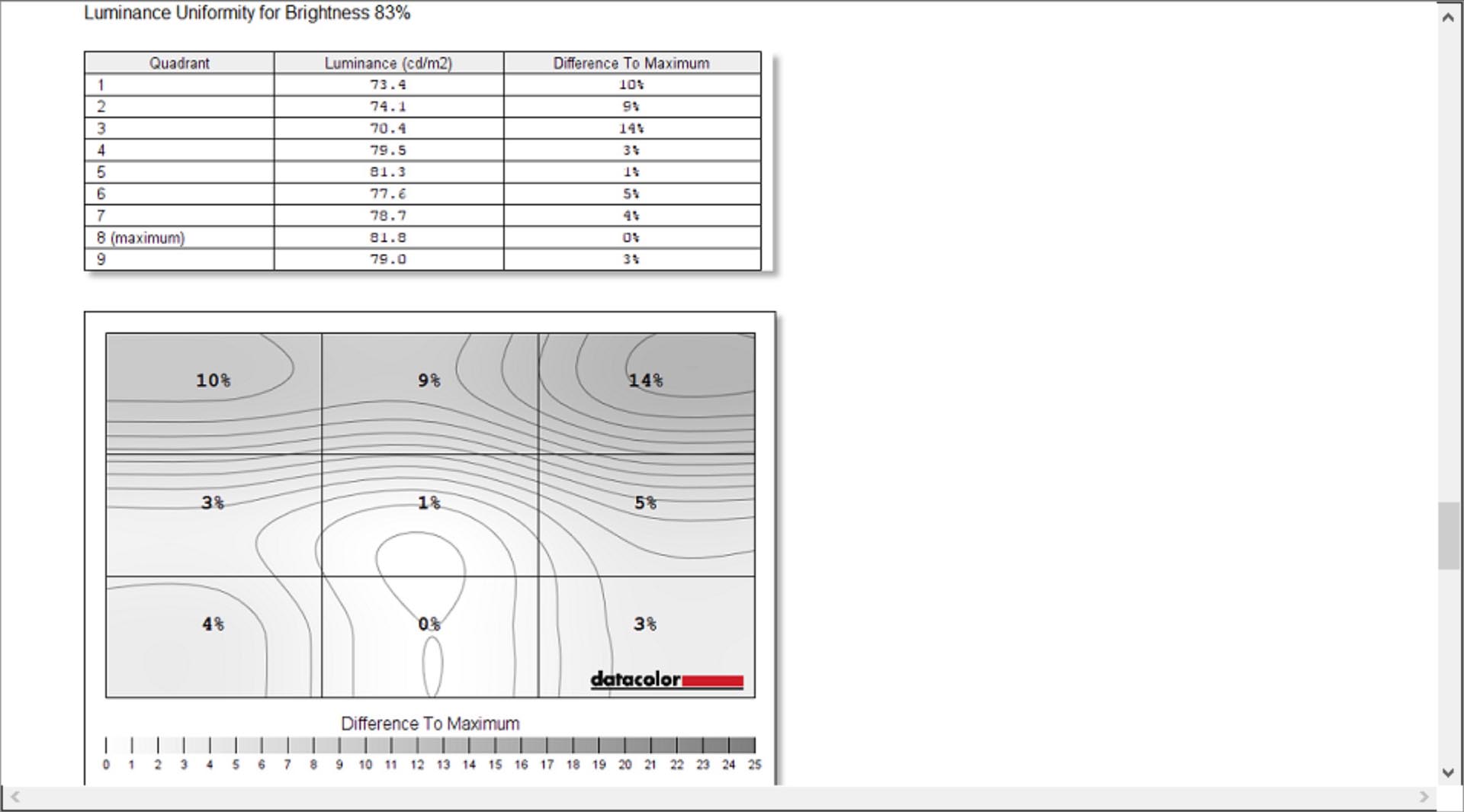
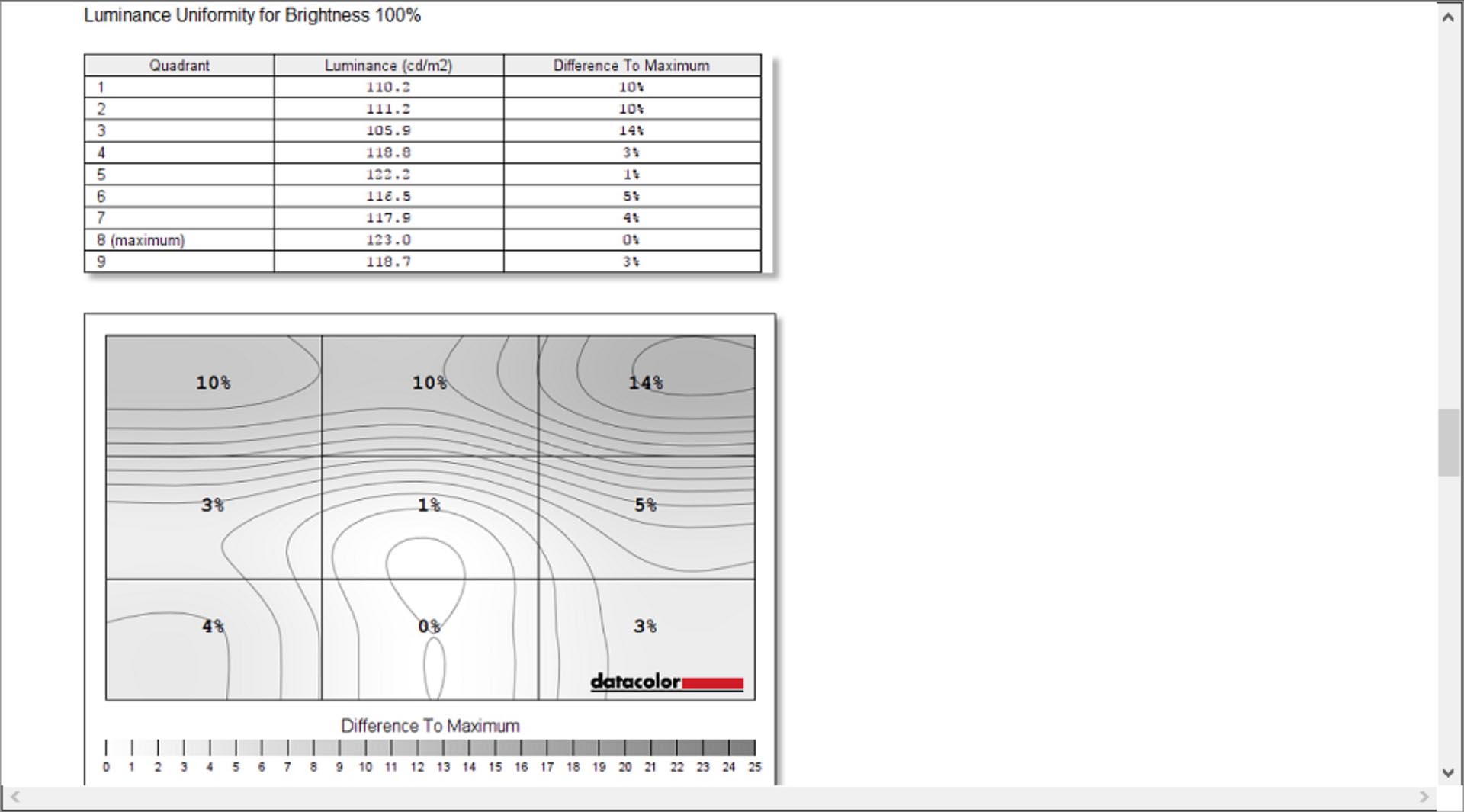
Colour Accuracy test result, Average ΔE≈0.55


There is almost no difference before and after the colour calibration. The quality of this screen is very good.
Hardware & Software Introduction
BIOS details, Advanced view, Raid details
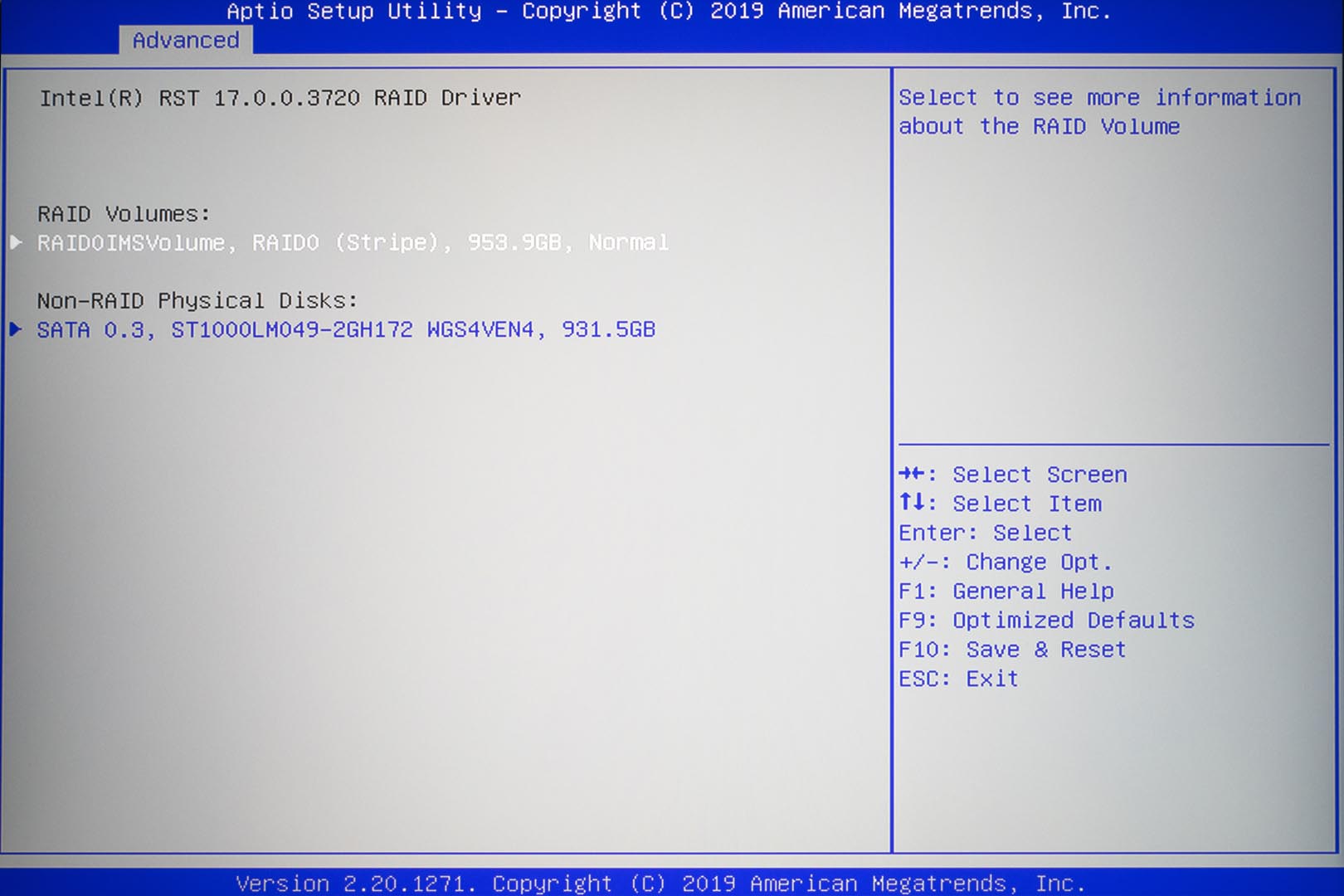
MSI Desktop Background Picture

Thaiphoon Burner – Memory Details
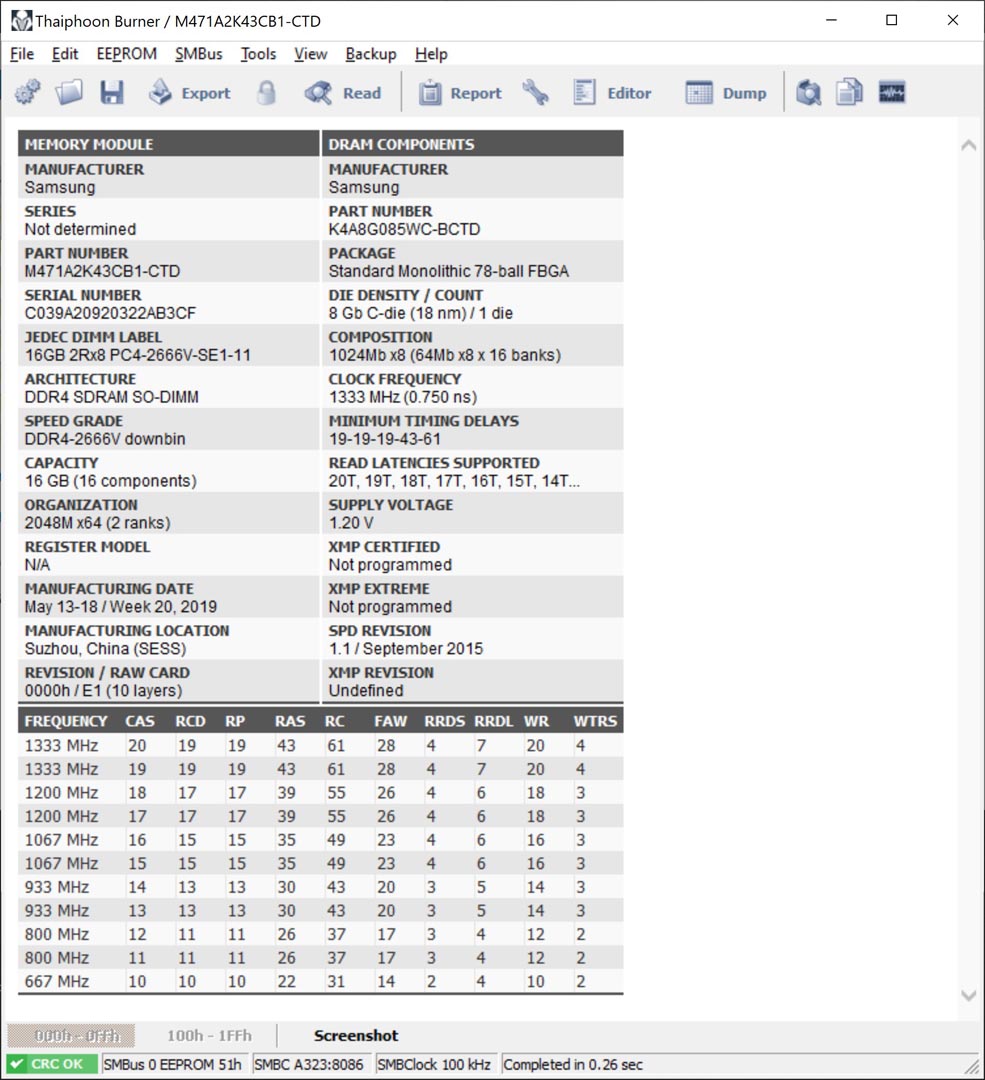
LAN chip – Killer E3000 Gigabit LAN
WIFI Card – Killer Wi-Fi 6 AX1650x with Bluetooth v5
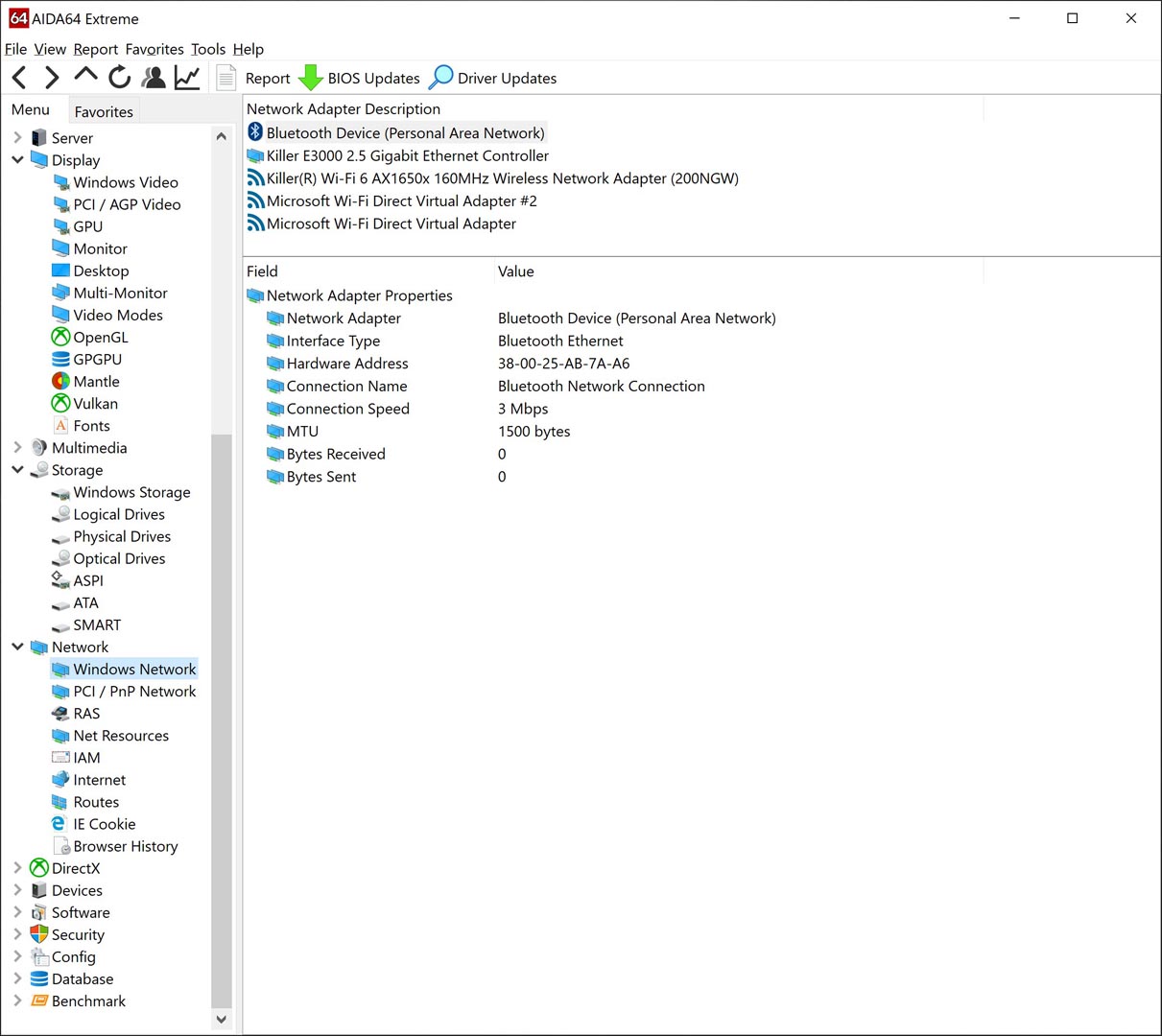
SSD – 2 x 512GB Samsung PM981 Raid-0
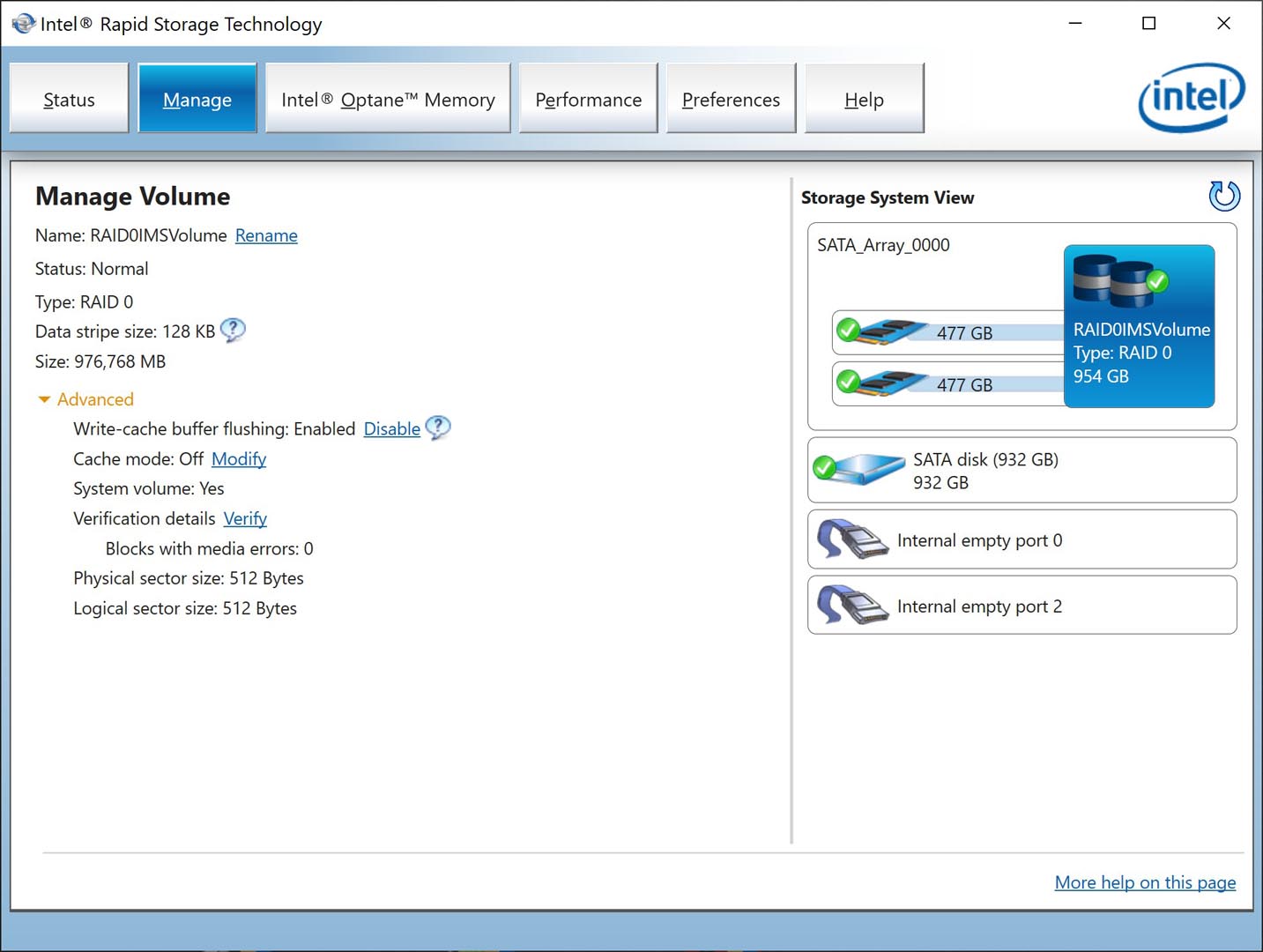
Overclocking Test
Since the MSI Dragon Center provides overclocking options, we definitely need to use it. In all tests, fan cooling is selected to Auto mode and Cooler Boost mode if necessary
We also enabled the Ultimate Power Performance setting in Win10

None Overclocking Idle – Fan Auto mode turned on
Fan Speed ≈ 3,700rpm | CPU package Temp : 52°C | CPU average FQ ≈ 4.0Ghz
None Overclocking – Aida64 Stress FPU – Both Auto and Max cooling, CPU Overheat and throttled
Fan Speed ≈ 5,580rpm | CPU package Temp : 99°C | CPU FQ ≈ 3.6Ghz (9% loss)
In MSI Dragon Center, under Turbo mode, we have maximised all OC settings both on CPU and GPU
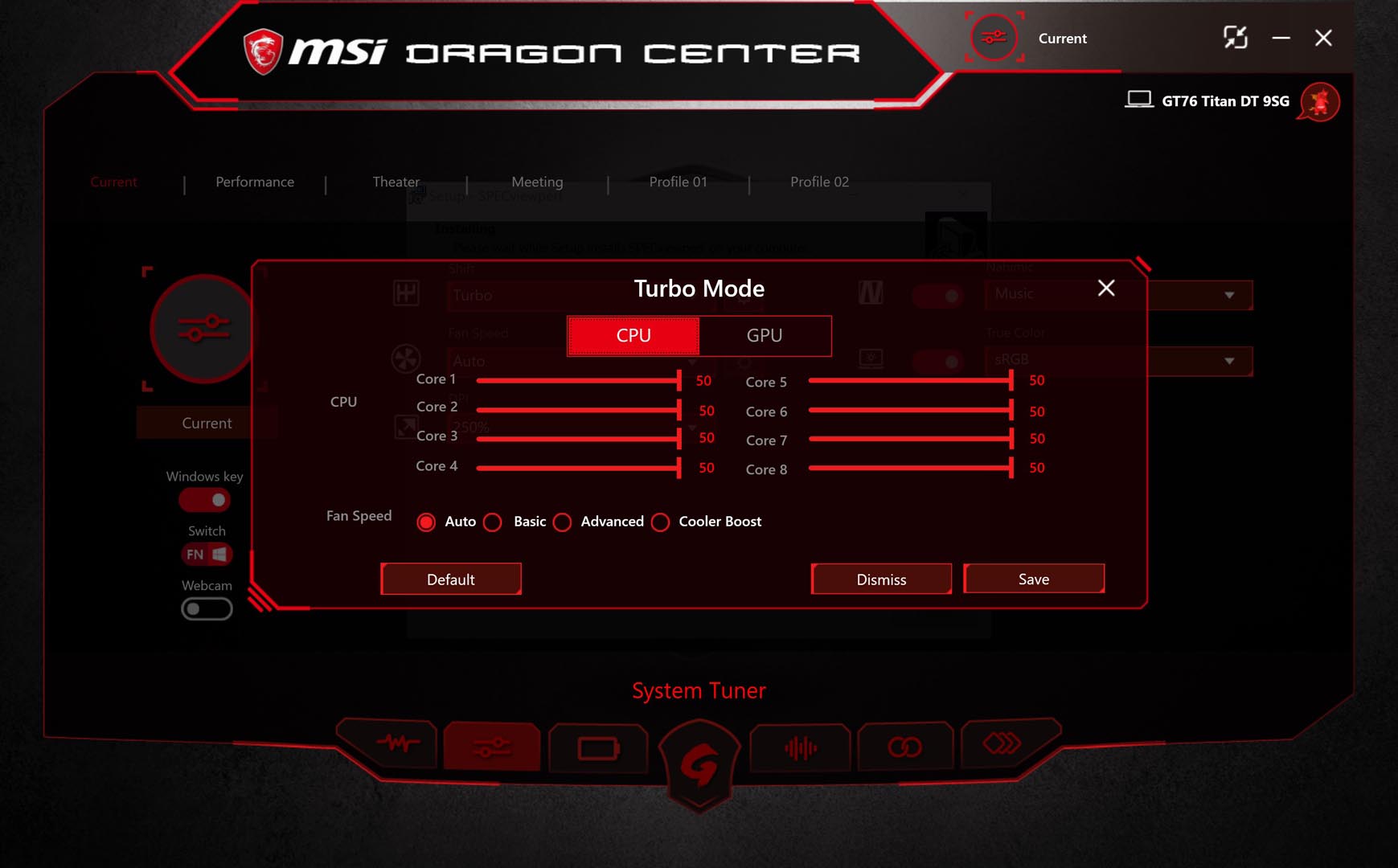
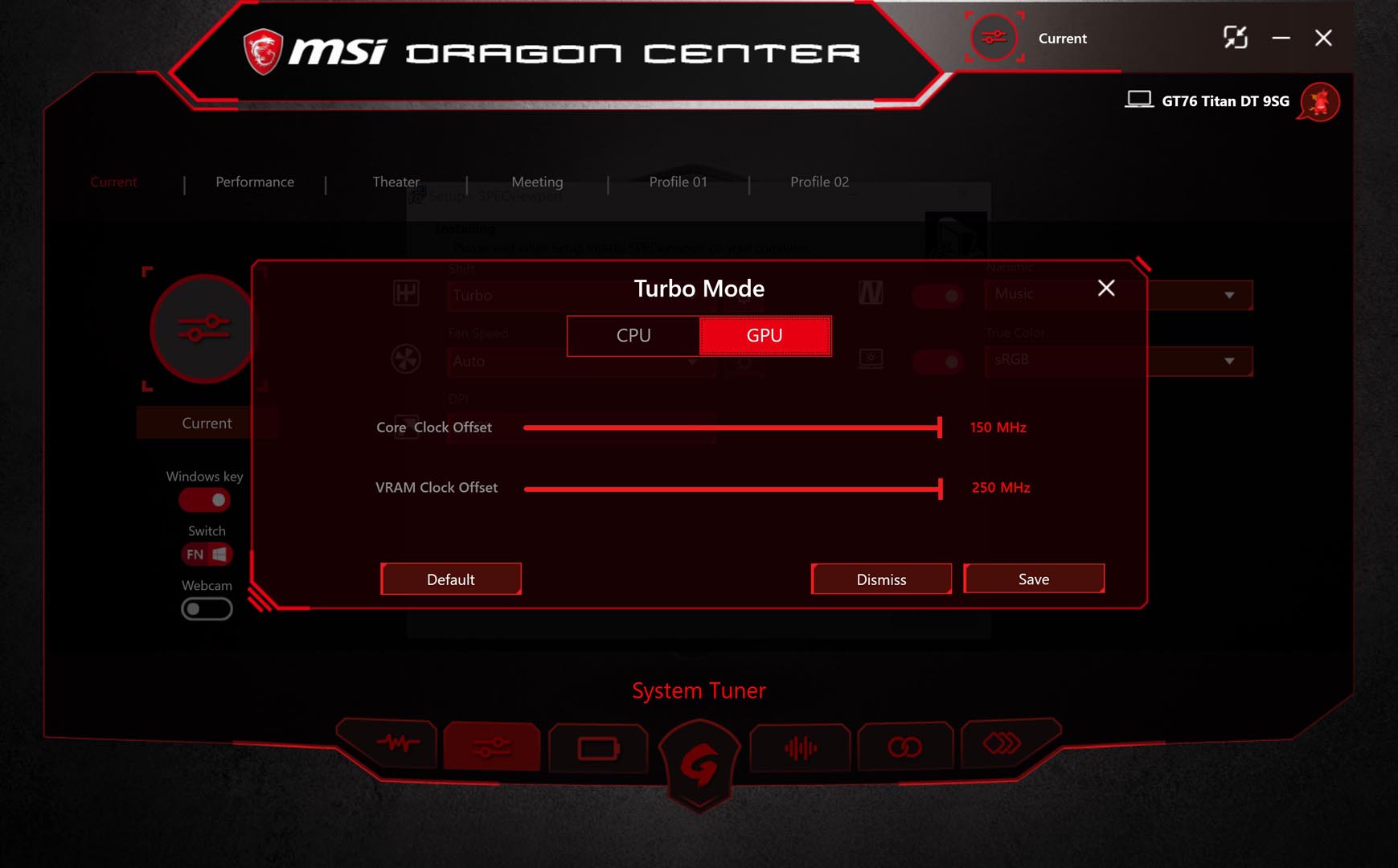
Overclocking Idle – CPU Overheat and throttled – Fan Auto mode turned on
Fan Speed ≈ 4,200rpm | CPU package Temp : 75°C | CPU FQ ≈ 4.1Ghz (23% loss)

Overclocking Idle – Fan Cooler Boost mode turned on
Fan Speed ≈ 5,580rpm | CPU package Temp : 63°C | CPU FQ ≈ 4.8Ghz
Overclocking – Aida64 Stress FPU – CPU Overheat and throttled – Auto Mode turned on
Fan Speed ≈ 4,800rpm | CPU package Temp : 99°C | CPU FQ ≈ 3.9Ghz (21% loss)
Overclocking – Aida64 Stress FPU – CPU Overheat and throttled – Fan Cooler Boost mode turned on
Fan Speed ≈ 5,530rpm | CPU package Temp : 99°C | CPU FQ ≈ 3.8Ghz (24% loss)
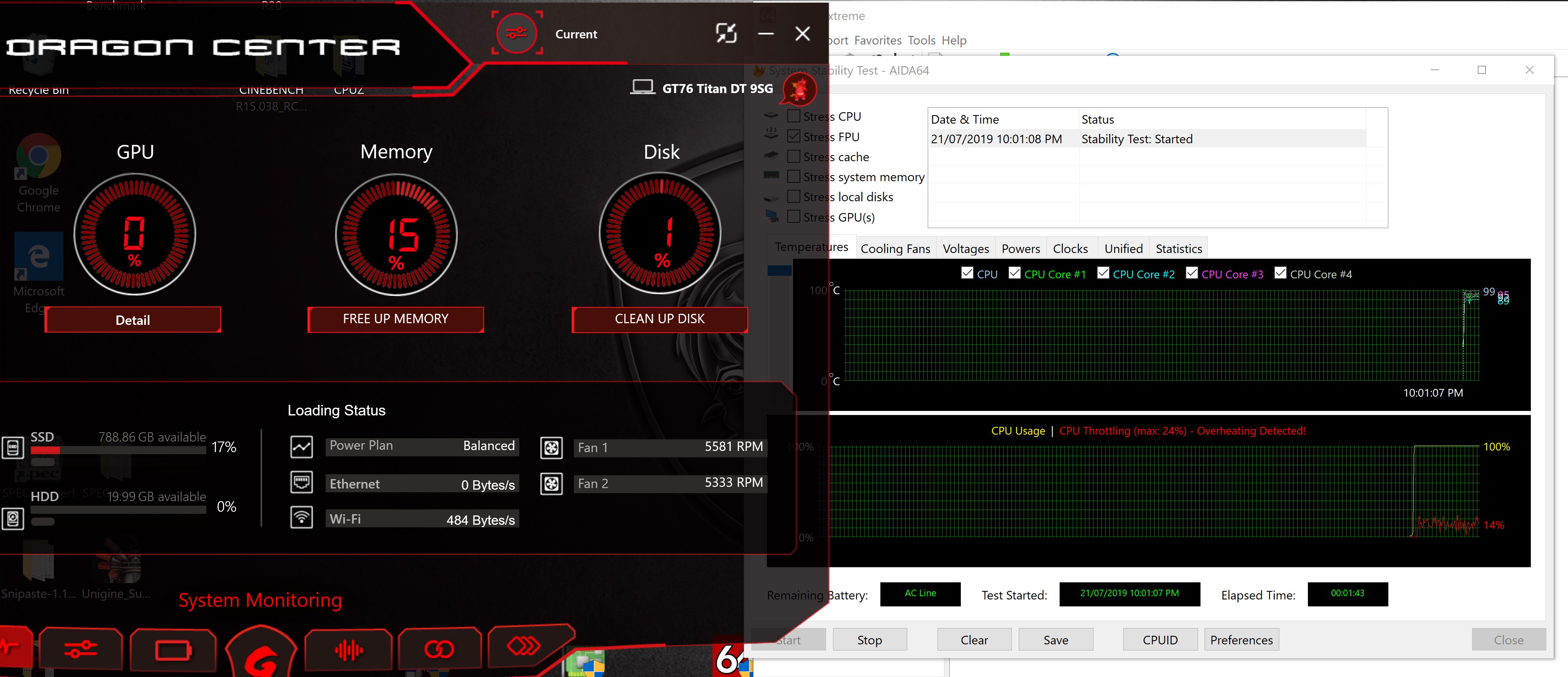
PRIME95 Test – CPU Overheat and throttled – Auto Mode turned on
Fan Speed ≈ 4,485rpm | CPU package Temp : 85°C | CPU FQ ≈ 4.2Ghz (16% loss)
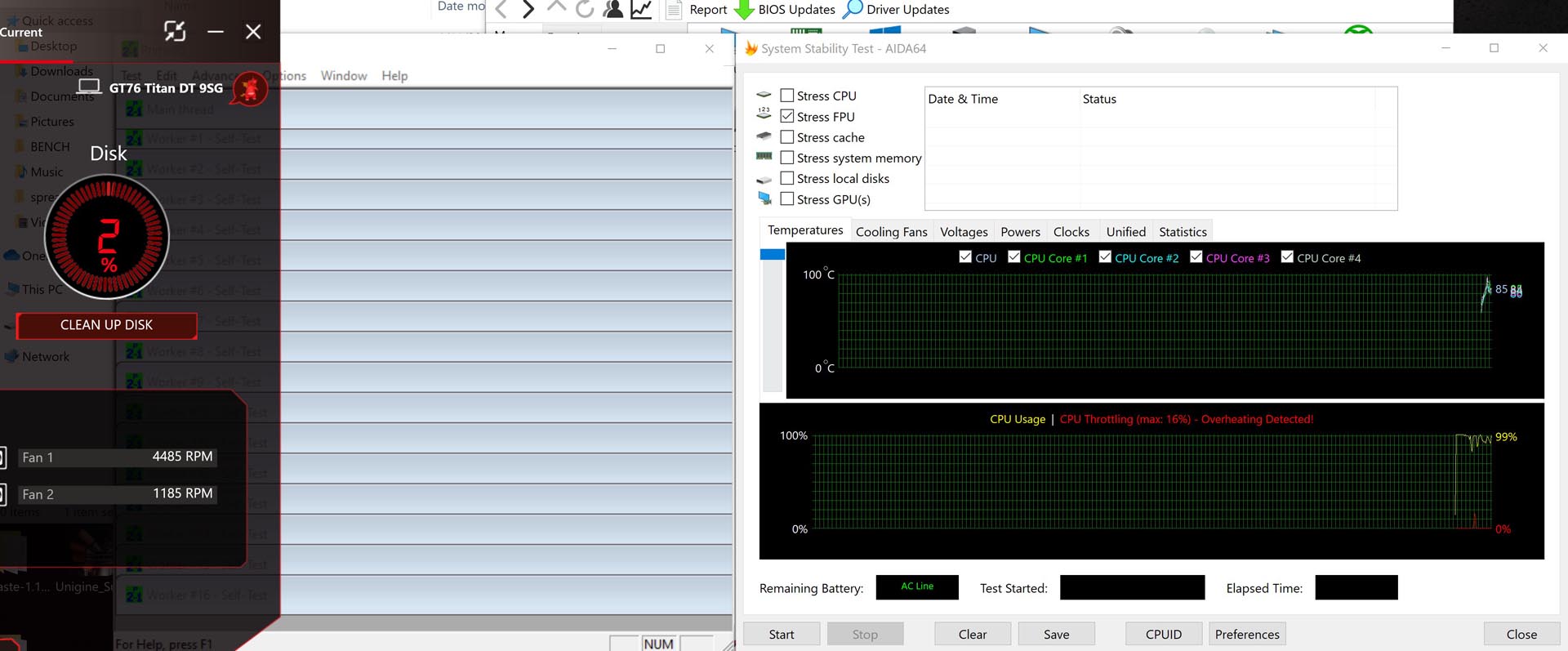
overclocking GPU & CPU – Furmark 4K Normal test – Fan Cooler Boost mode turned on
Fan Speed ≈ 5,600rpm | GPU Max Temp : 69°C | GPU Max Clock ≈ 1.72Ghz | Max Memory Clock ≈ 1.70Ghz | CPU Max Temp : 66°C
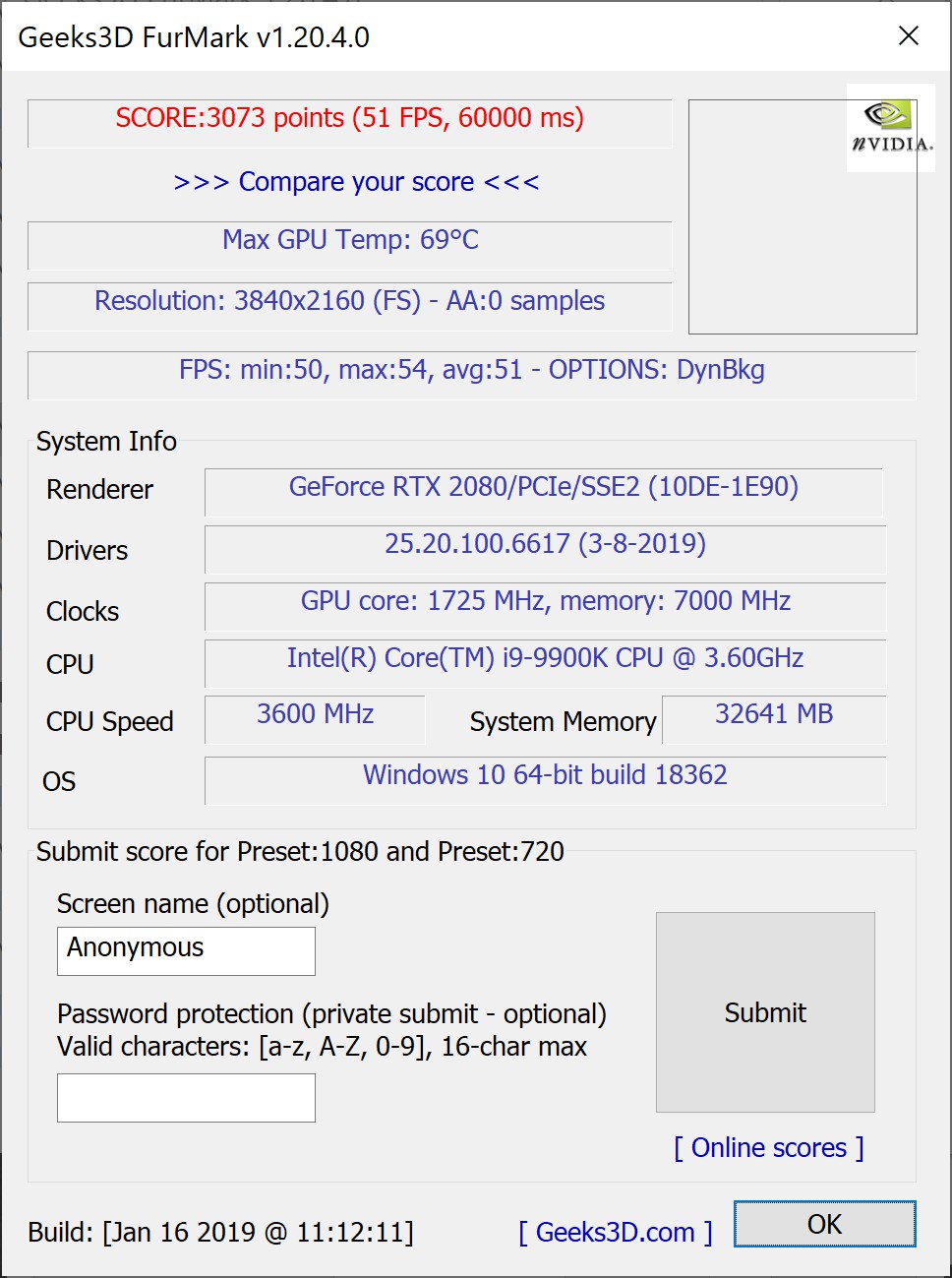
overclocking GPU & CPU – Furmark 4K + 8xMSAA stress test – Fan Cooler Boost mode turned on
Fan Speed ≈ 5,600rpm | GPU Max Temp : 72°C | GPU Max Clock ≈ 1.89Ghz | Max Memory Clock ≈ 1.75Ghz | CPU Max Temp : 43°C


Overclocking summary
The GT76 TITAN DT 9SG uses a desktop-class CPU, and the desktop CPU generates more heat either from the power supply module or the CPU itself. This requires large-area multi-channel heat pipes plus multiple high-speed turbofans to balance the heat for efficient discharge. luckily, MSI has always been ahead of other brands in thermal design.
Under actual usage, it is difficult to break the power and heat limit. During the test, whether opening a large number of big software or playing AAA games and broadcasting at the same time, the CPU temperature has been very good, and there is no CPU throttling happened.
Run-time Benchmark Test
CPU-Z Benchmark – according to the result, there is nearly no difference compared with an i9-9900K on a desktop
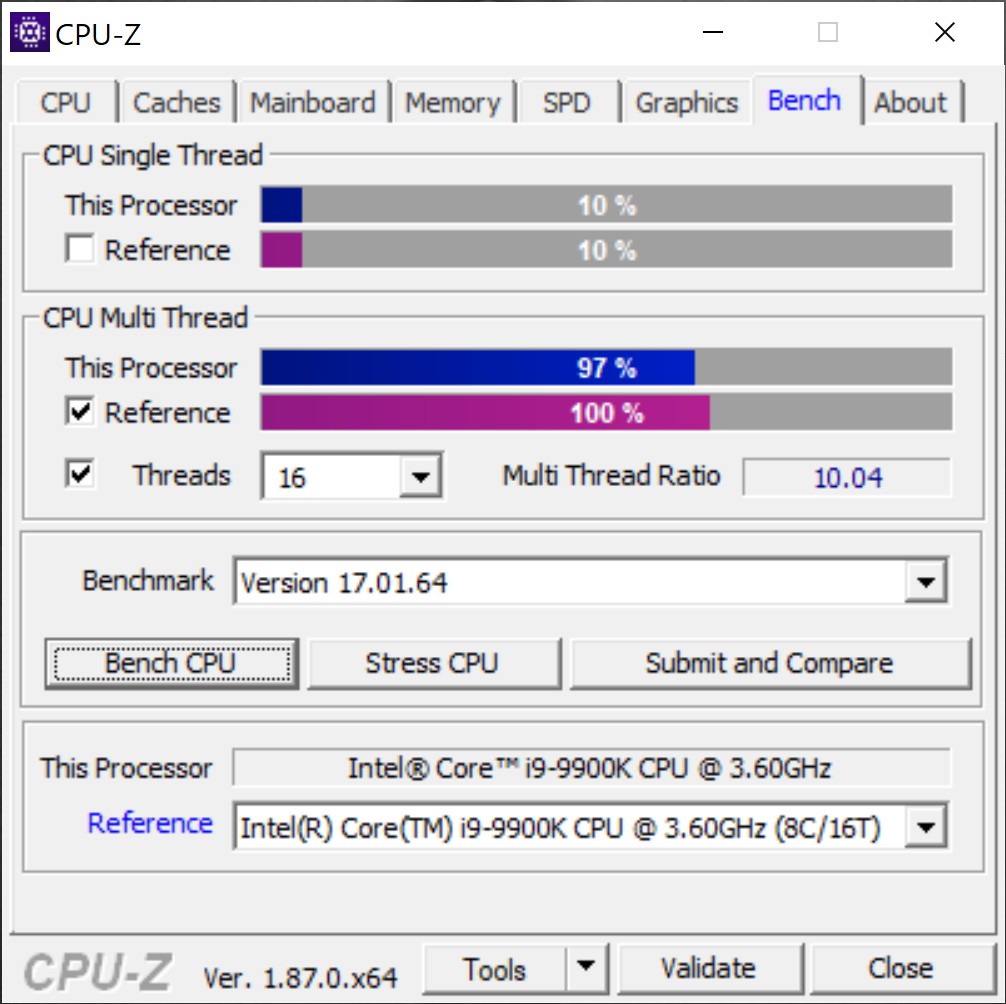
AIDA64 Memory & Cache benchmark

Cinebench R15 Results – Single core & multi-core
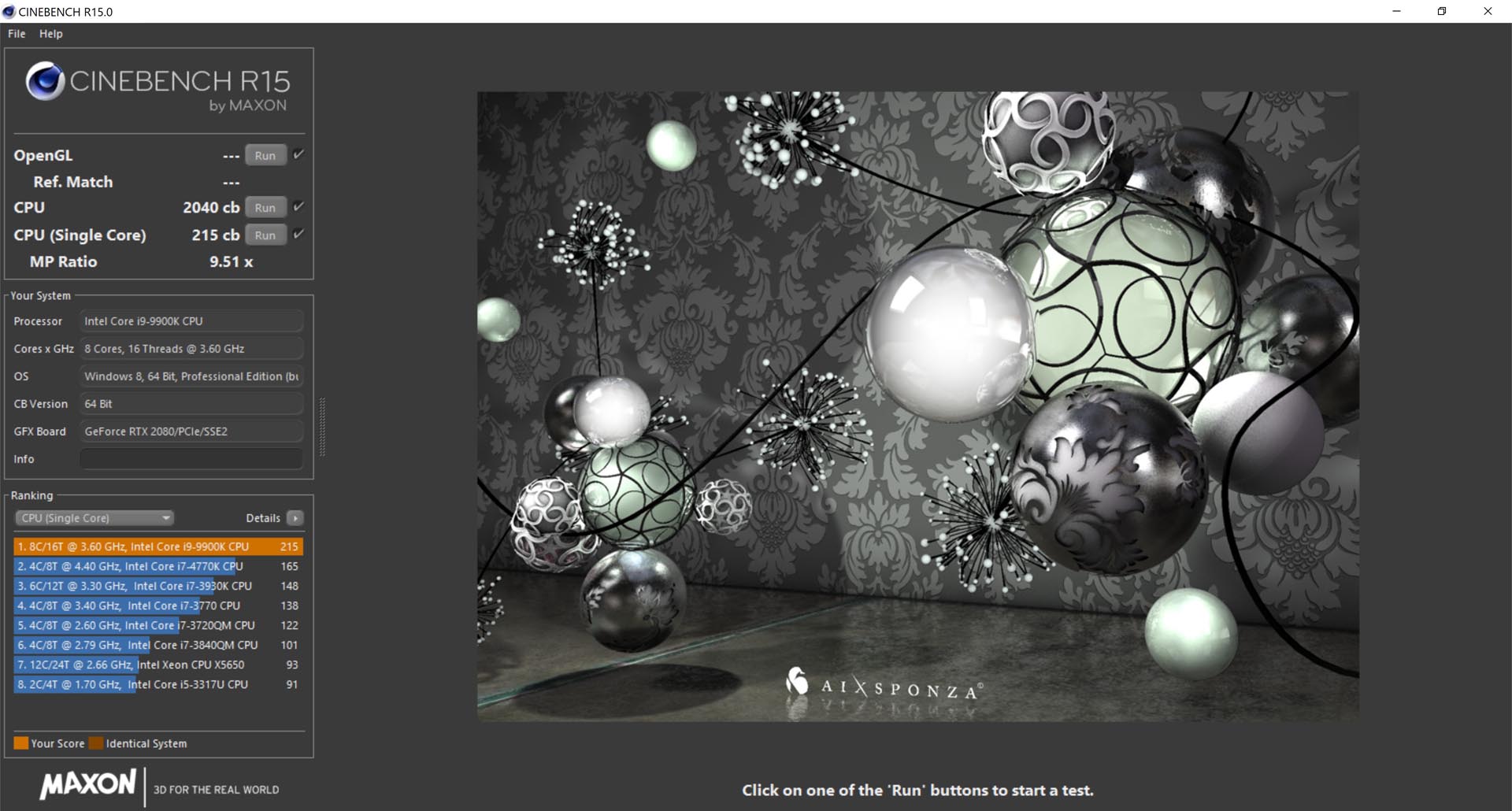
Cinebench R20 Results – Single core & multi-core
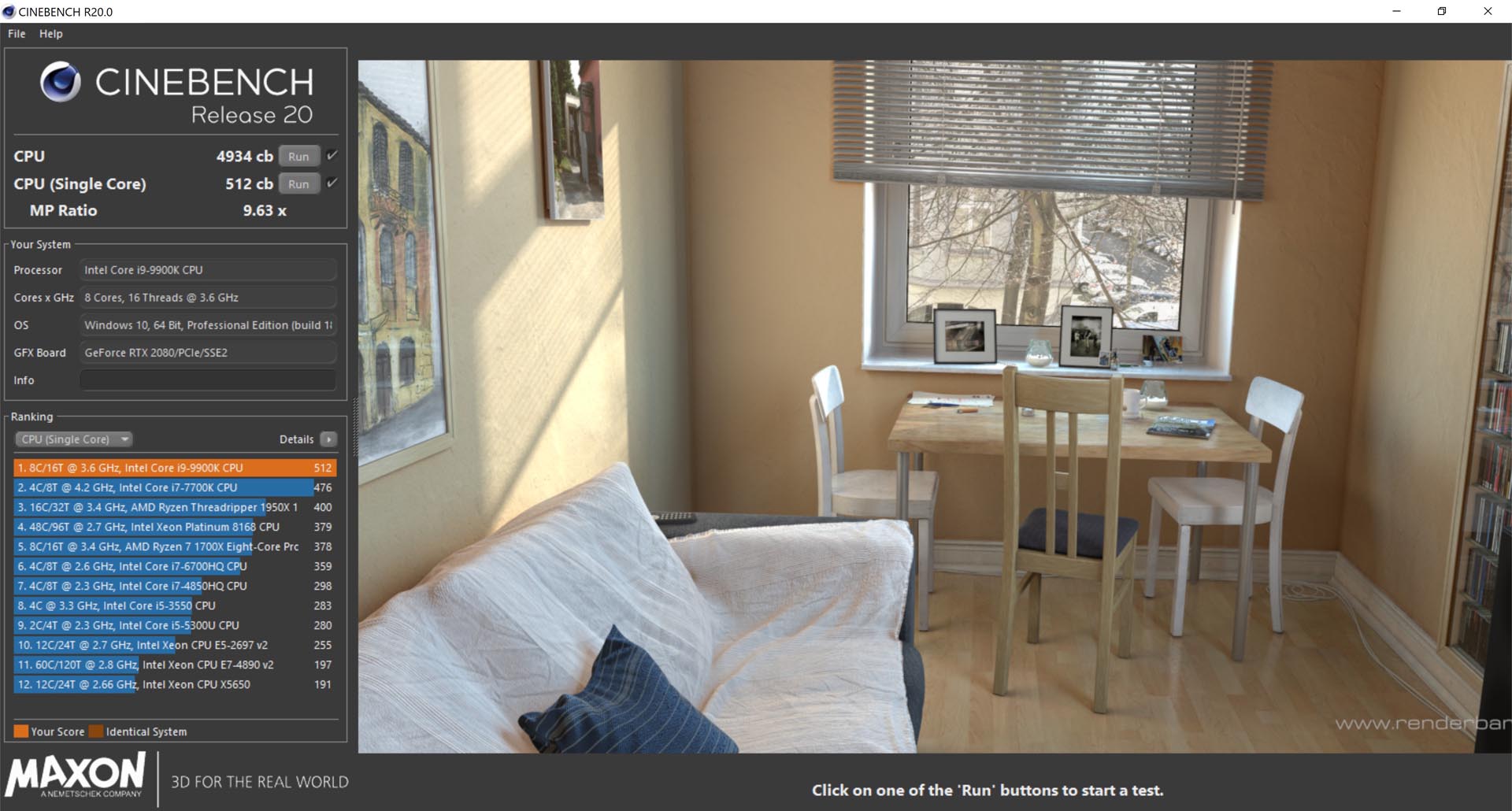
SSD Benchmark – AS SSD 10GB tests
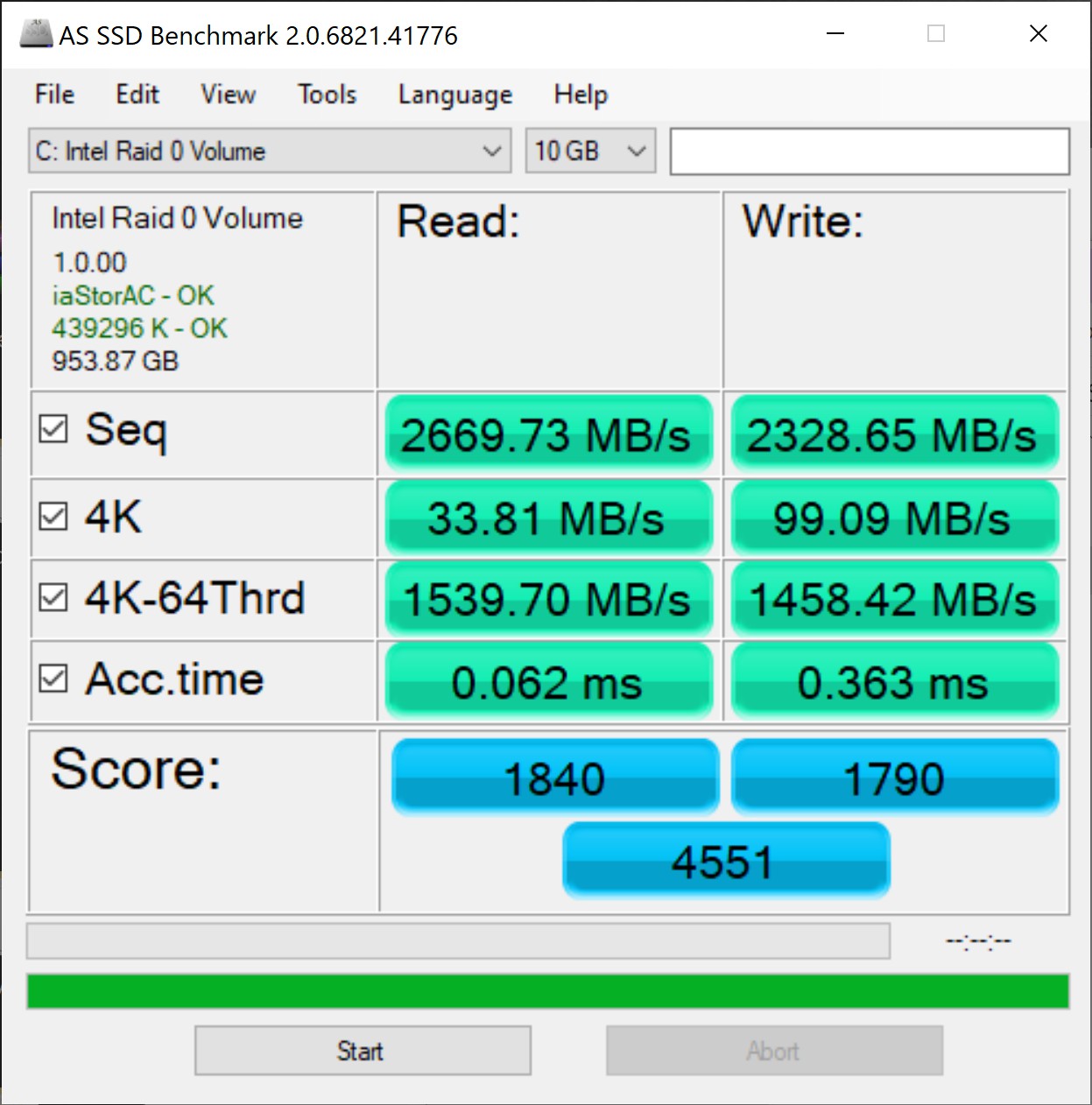
SSD Benchmark – Anvil’s Storage Utilities
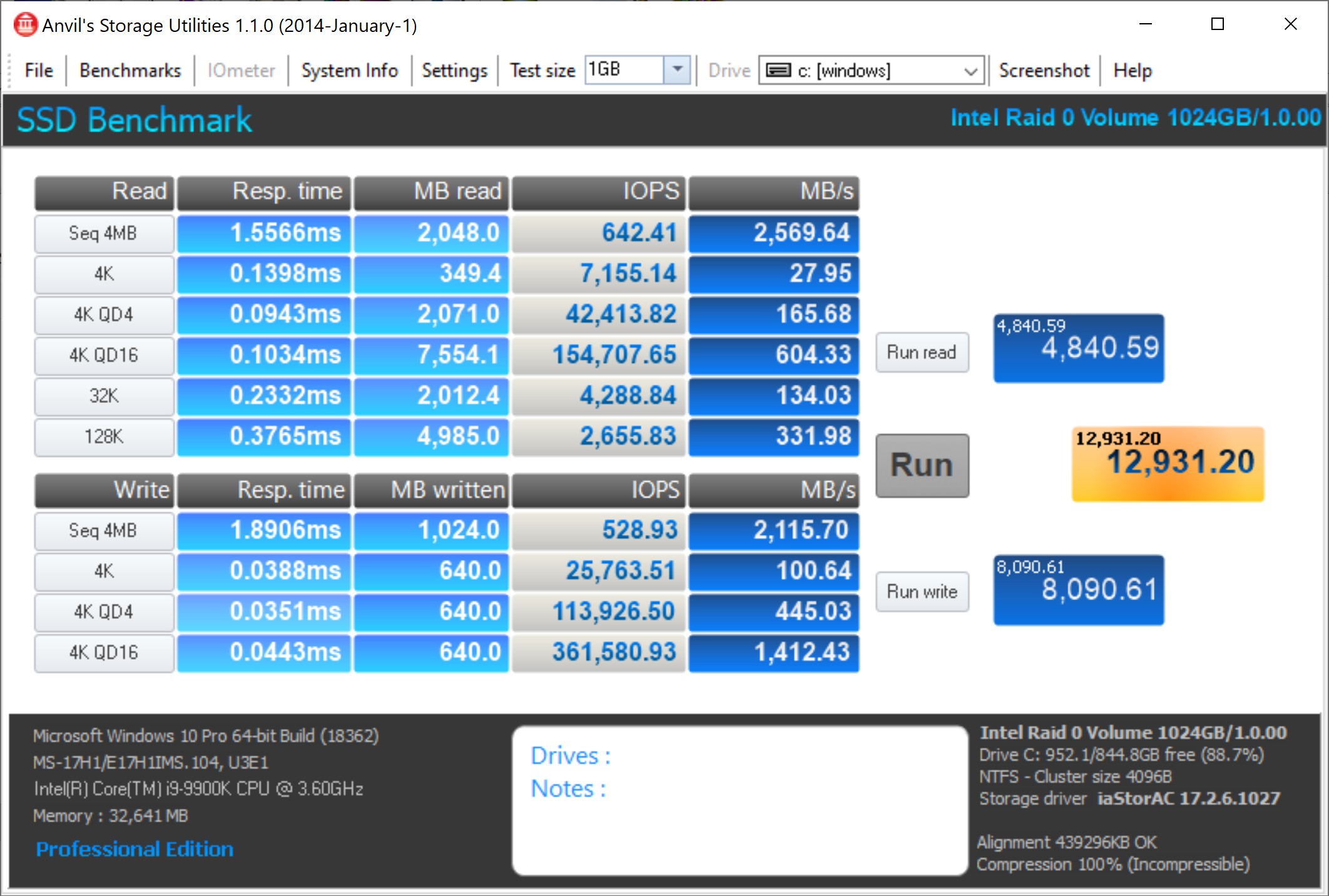
SSD Benchmark – Blackmagicdesign DST
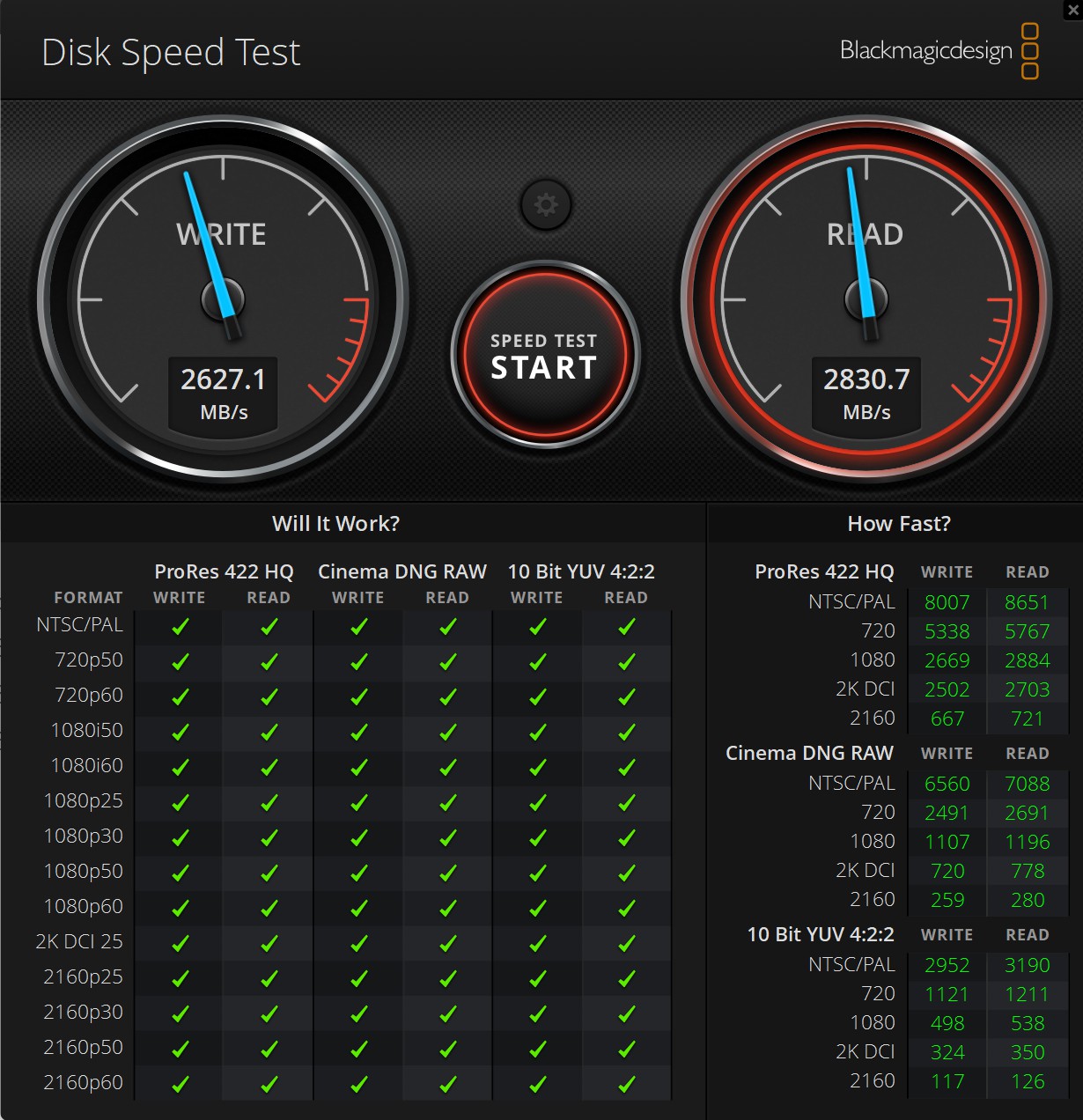
PCMark10 Extended Benchmark: 7,979
Results Link: http://www.3dmark.com/pcm10exb/71340

3DMark API Overhead Feature Test :
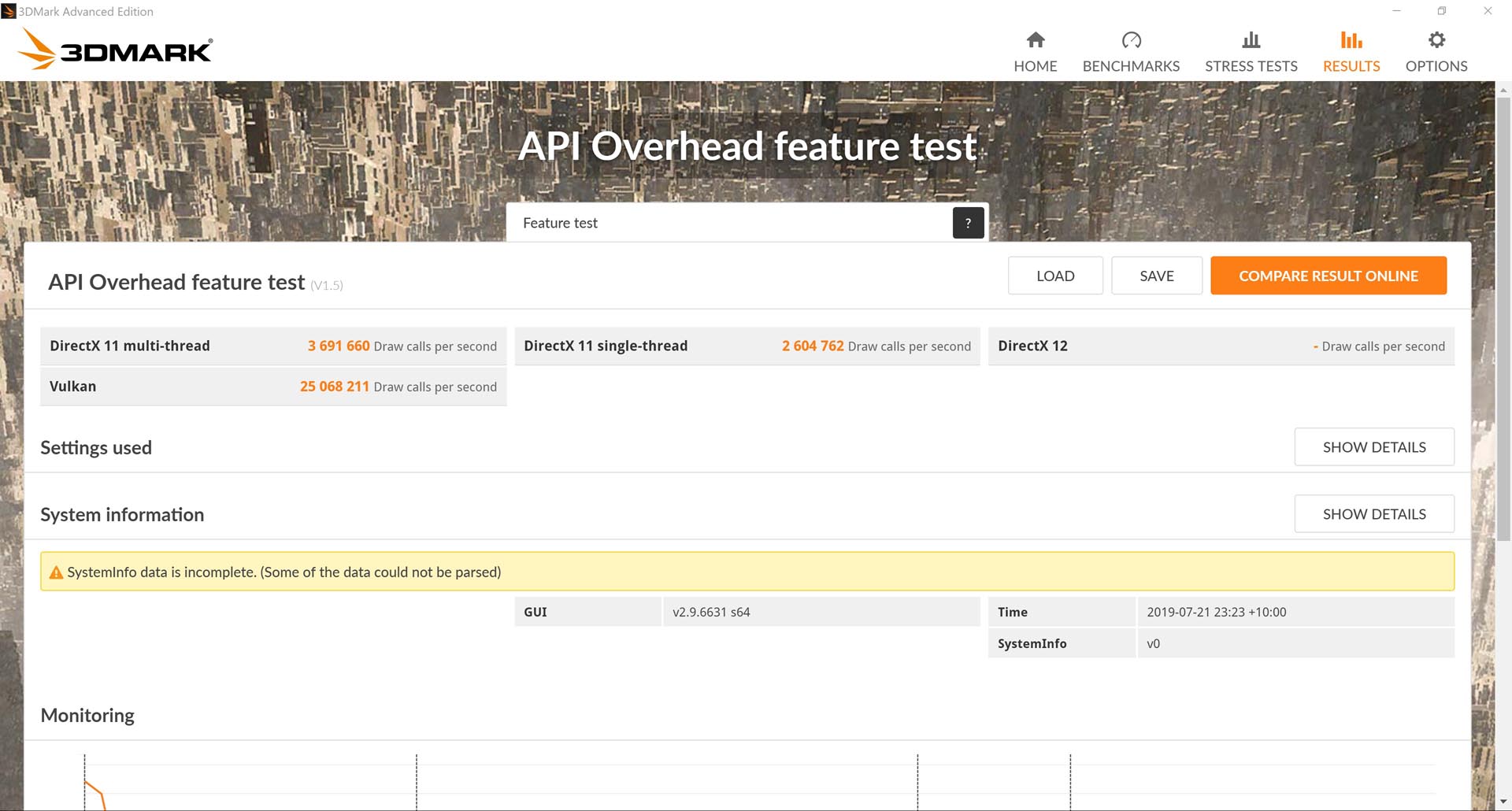
3DMark Fire Strike Extreme : 11,628
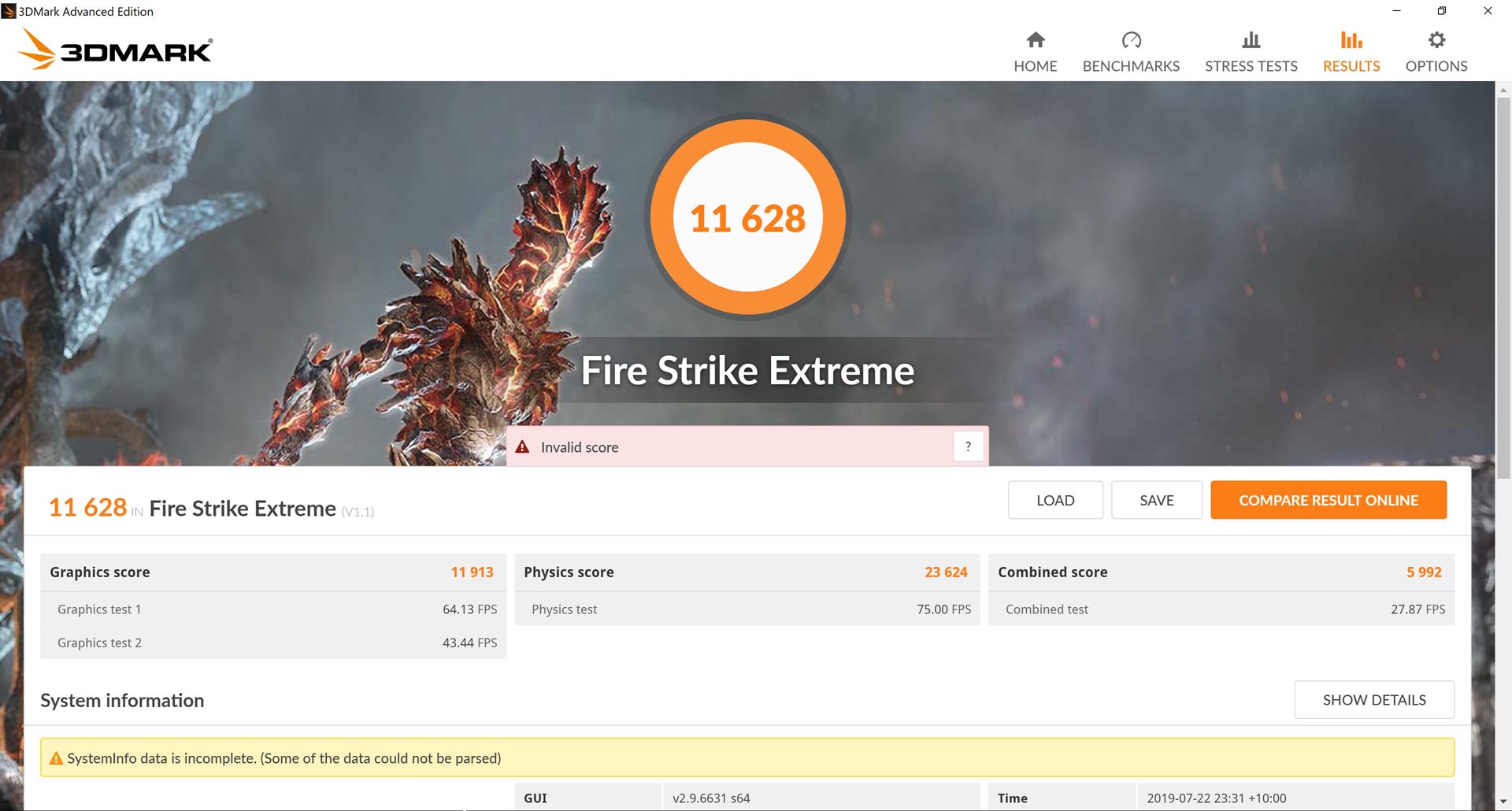
3DMark Fire Strike Ultra : 6,262
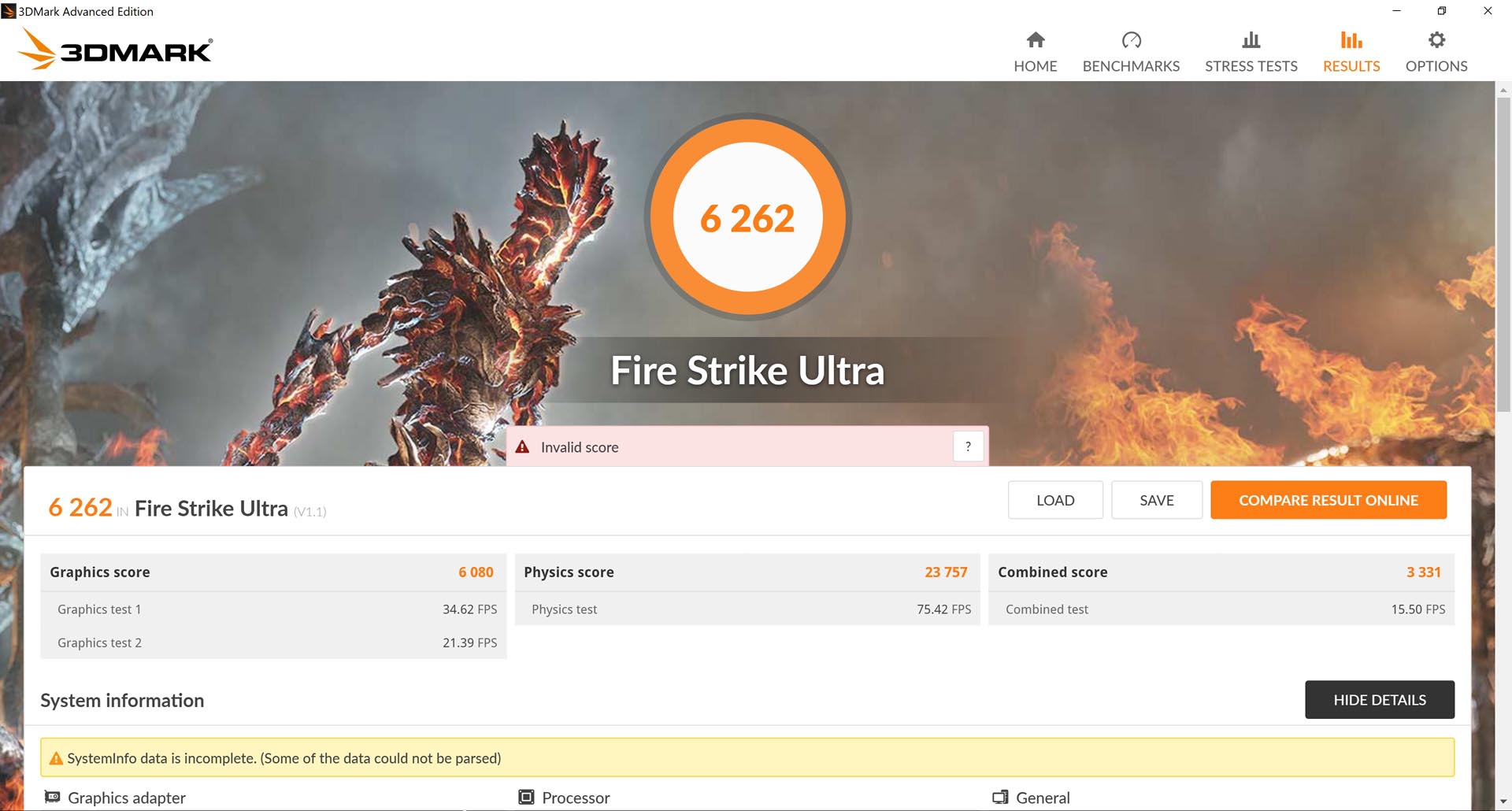
Unigine Superposition (Extreme 4K) : 8,464 | Avg FPS : 63.31
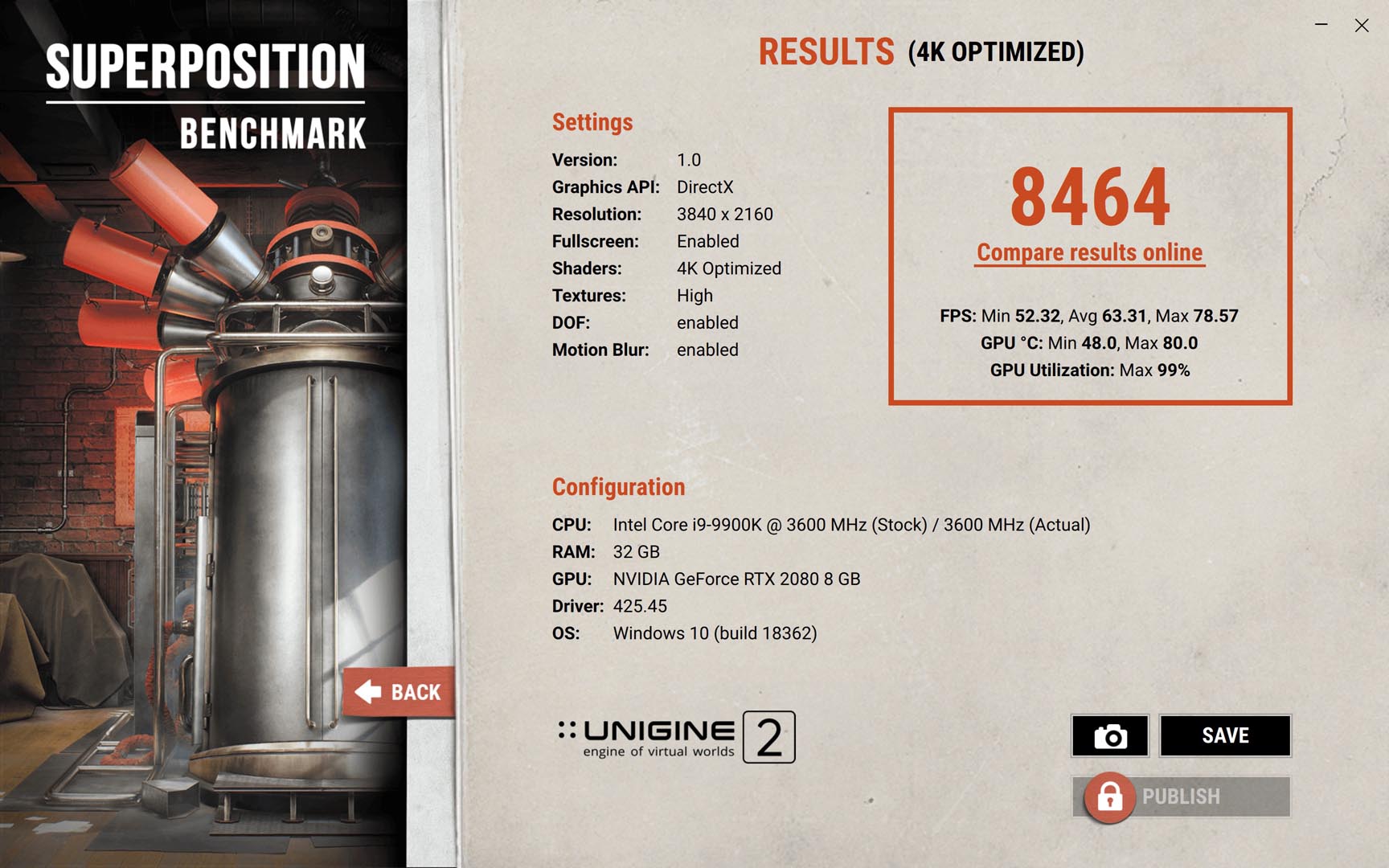
Final Fantasy XV – Benchmark (4K,HQ pack) : 3,126
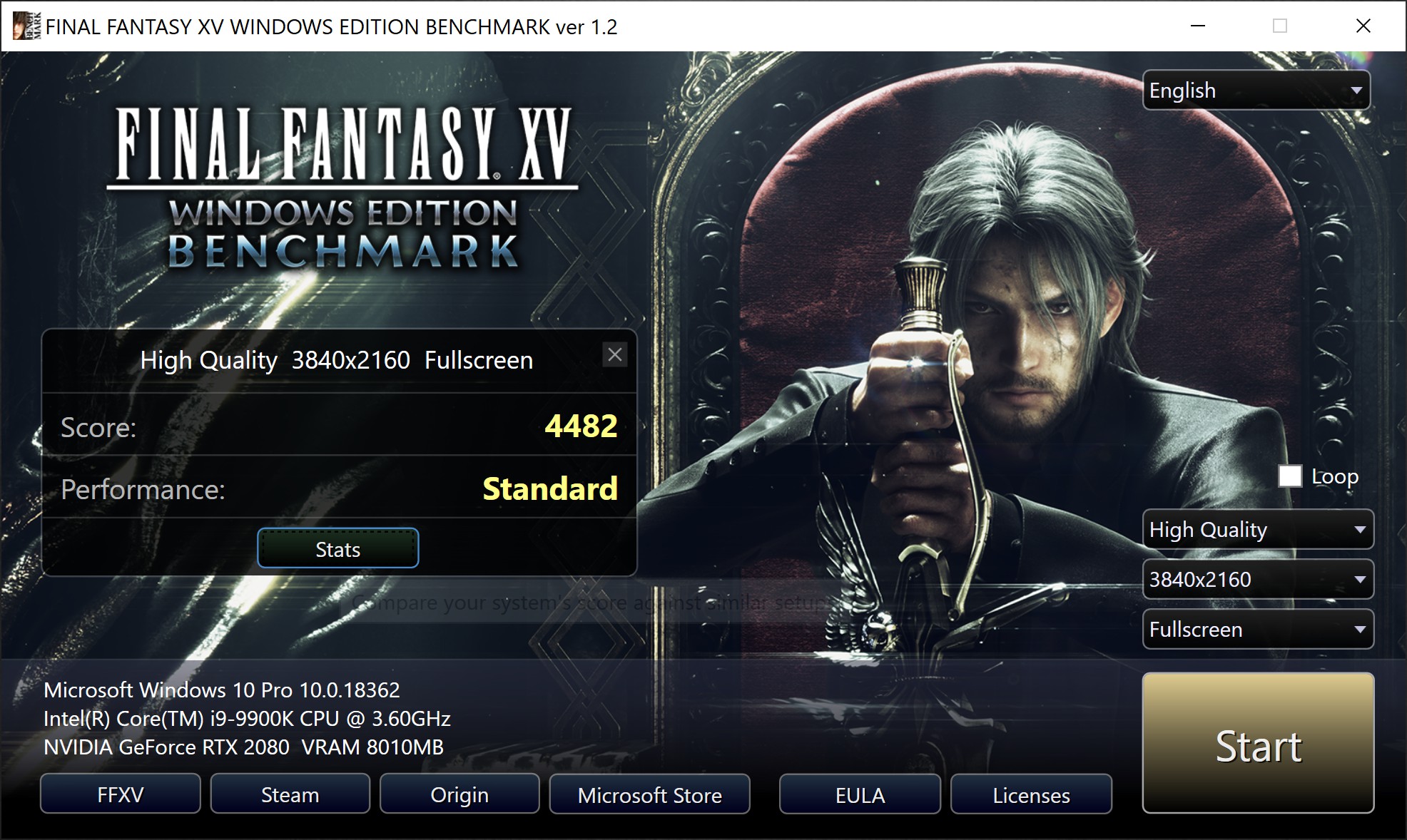
Workstation Benchmark
VRAY Benchmark
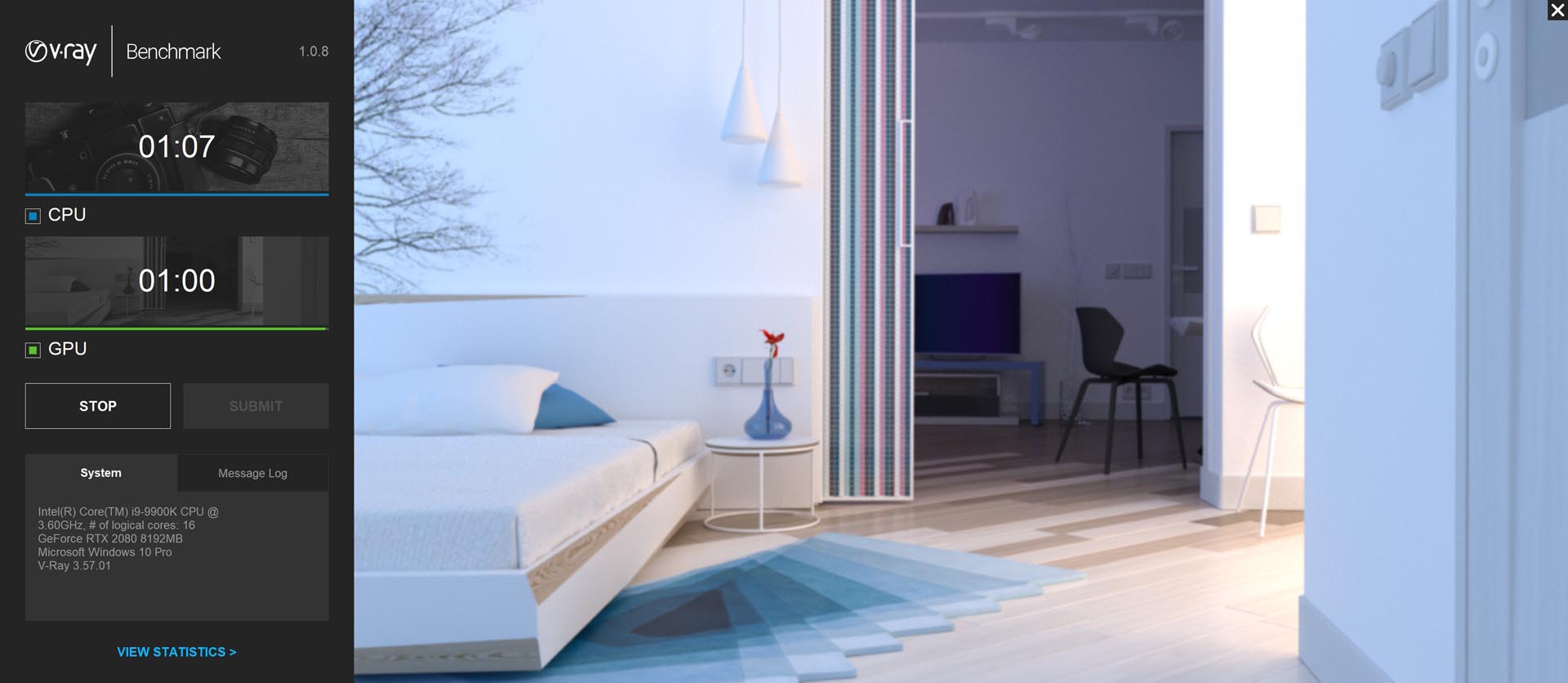
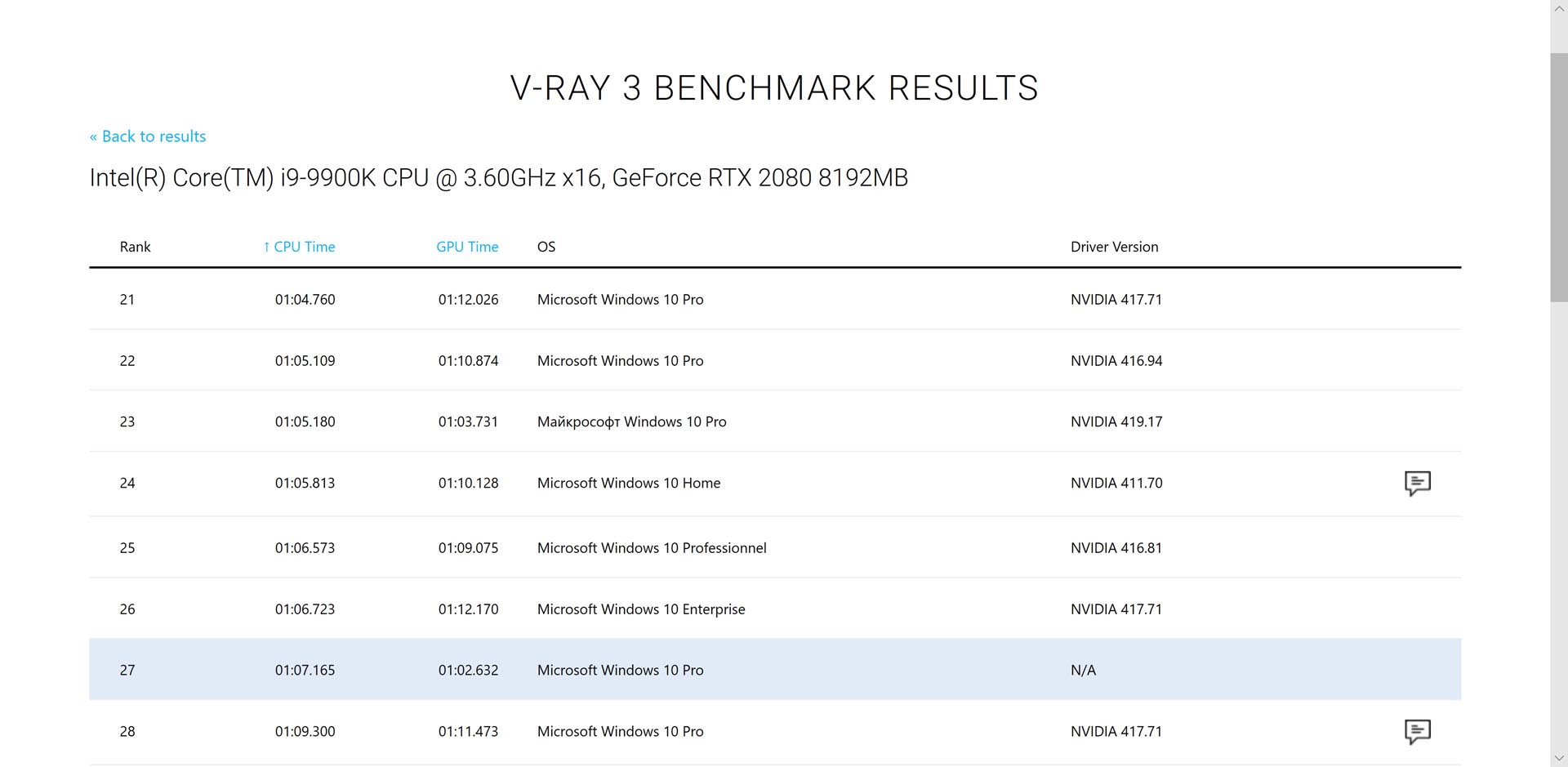
SPECviewperf 13 – The overall results
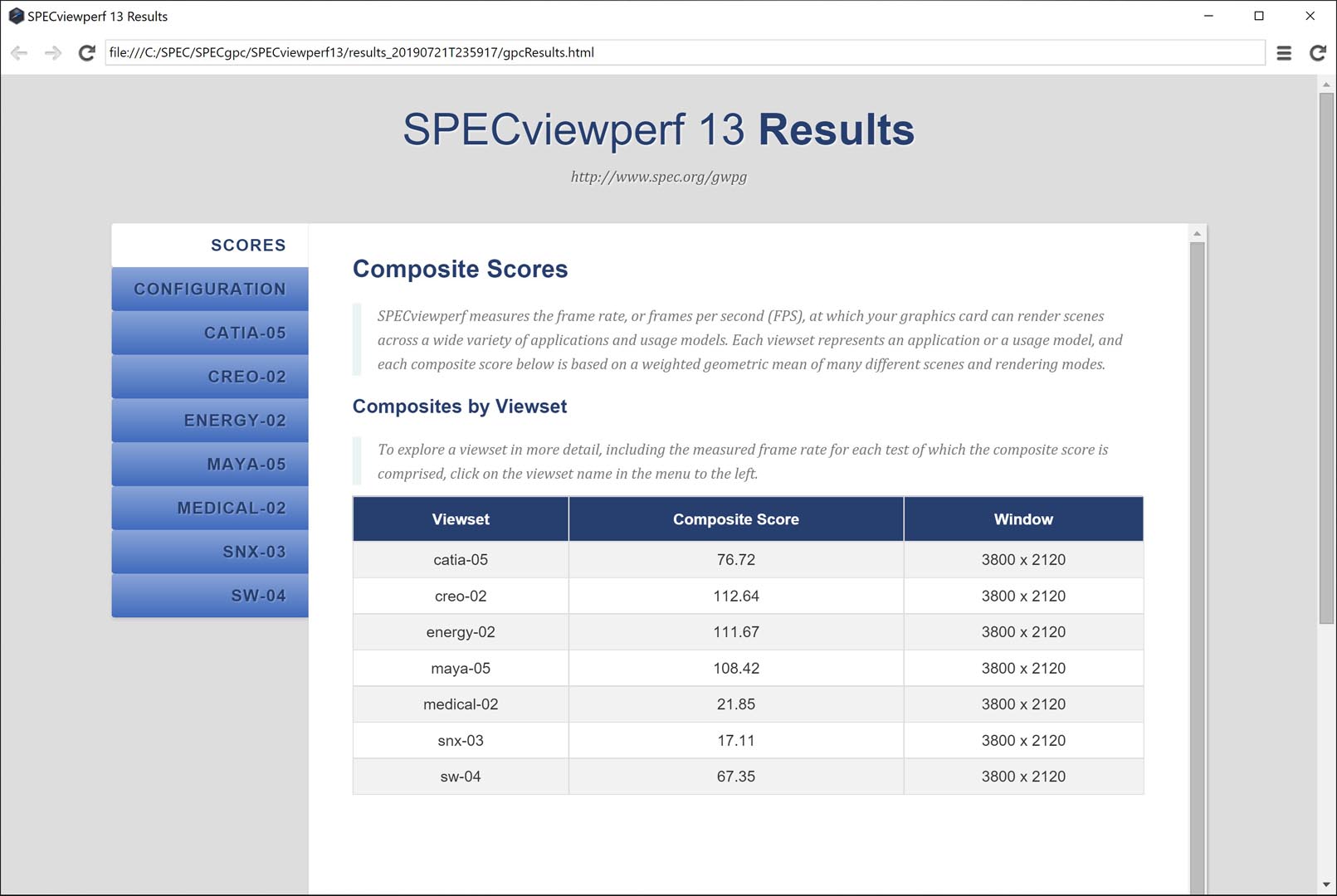
Thermal and Noise Tests
Test room temperature : 16℃±2℃
CPU Idle temperature : 49℃±2℃
GPU idle temperature : 42℃
AIDA64 Extreme full load stress test CPU&FPU: 99℃
Furmark full load stress test GPU: 76℃
The surface full load temperature :
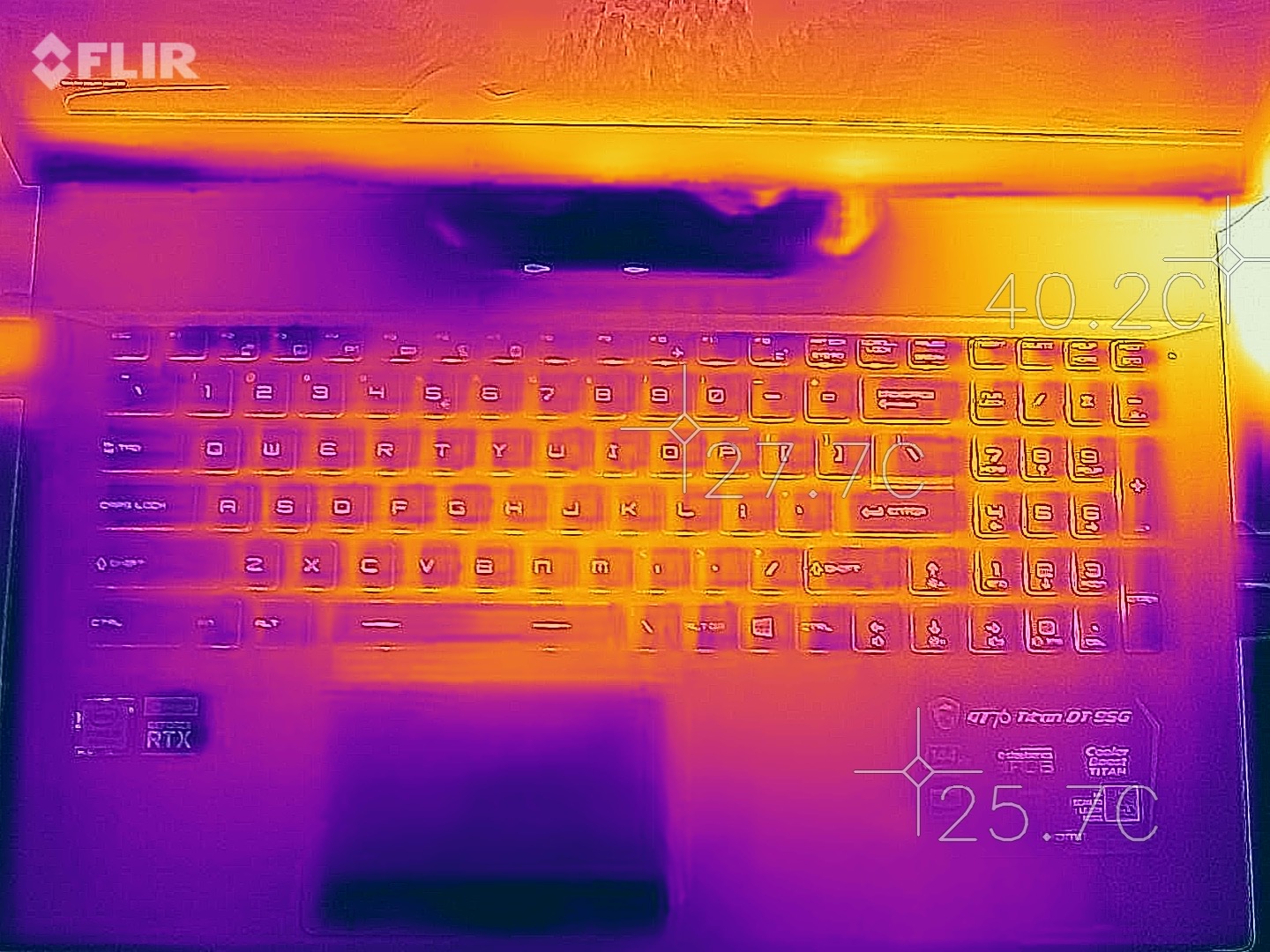
The surface full load temperature (Back part of the exhausting fence):

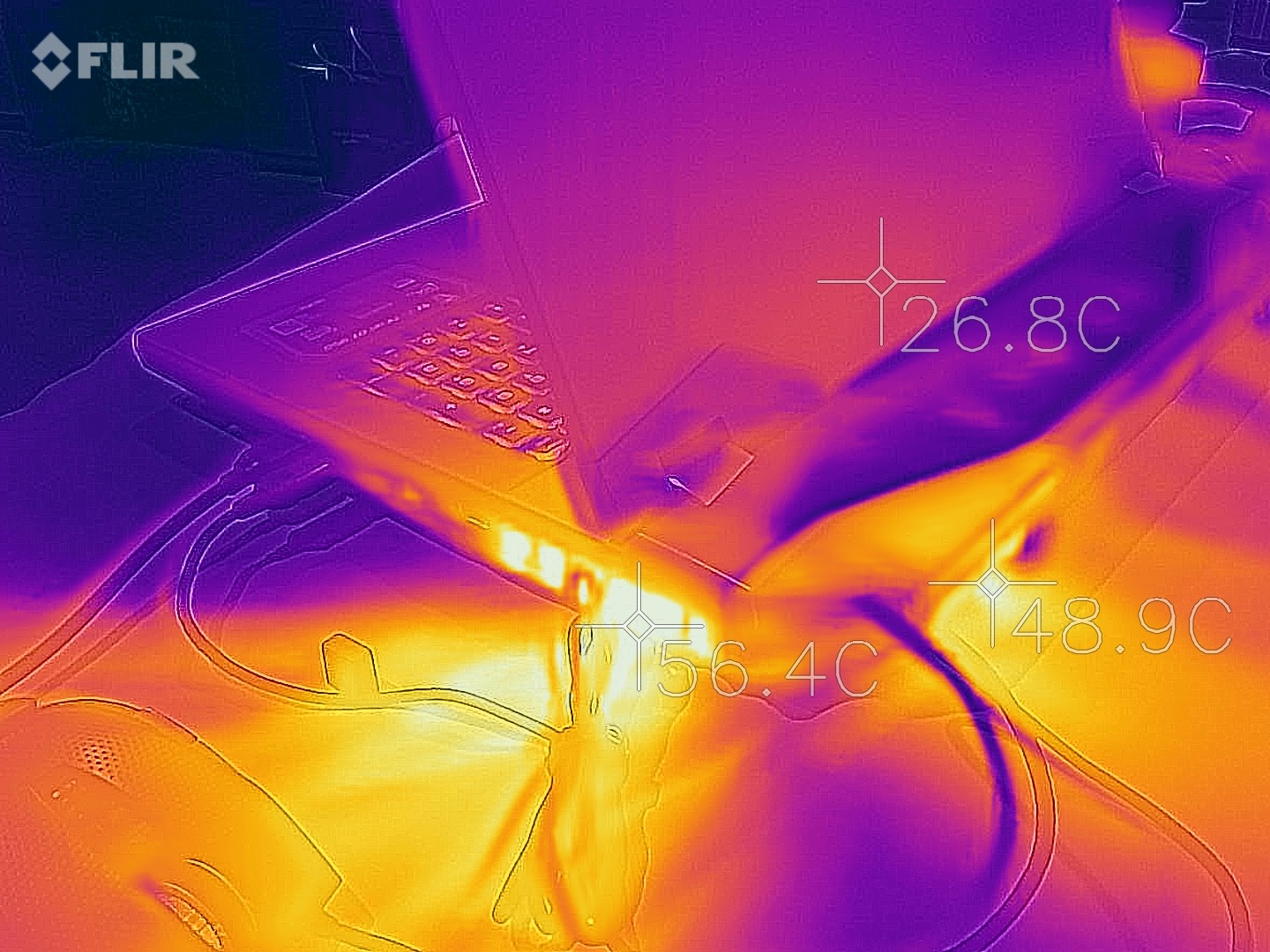
The Noise level under Max Cooling mode : Front | around 57 dB

The Noise level under Max Cooling mode : Exhausting fence | around 78 dB
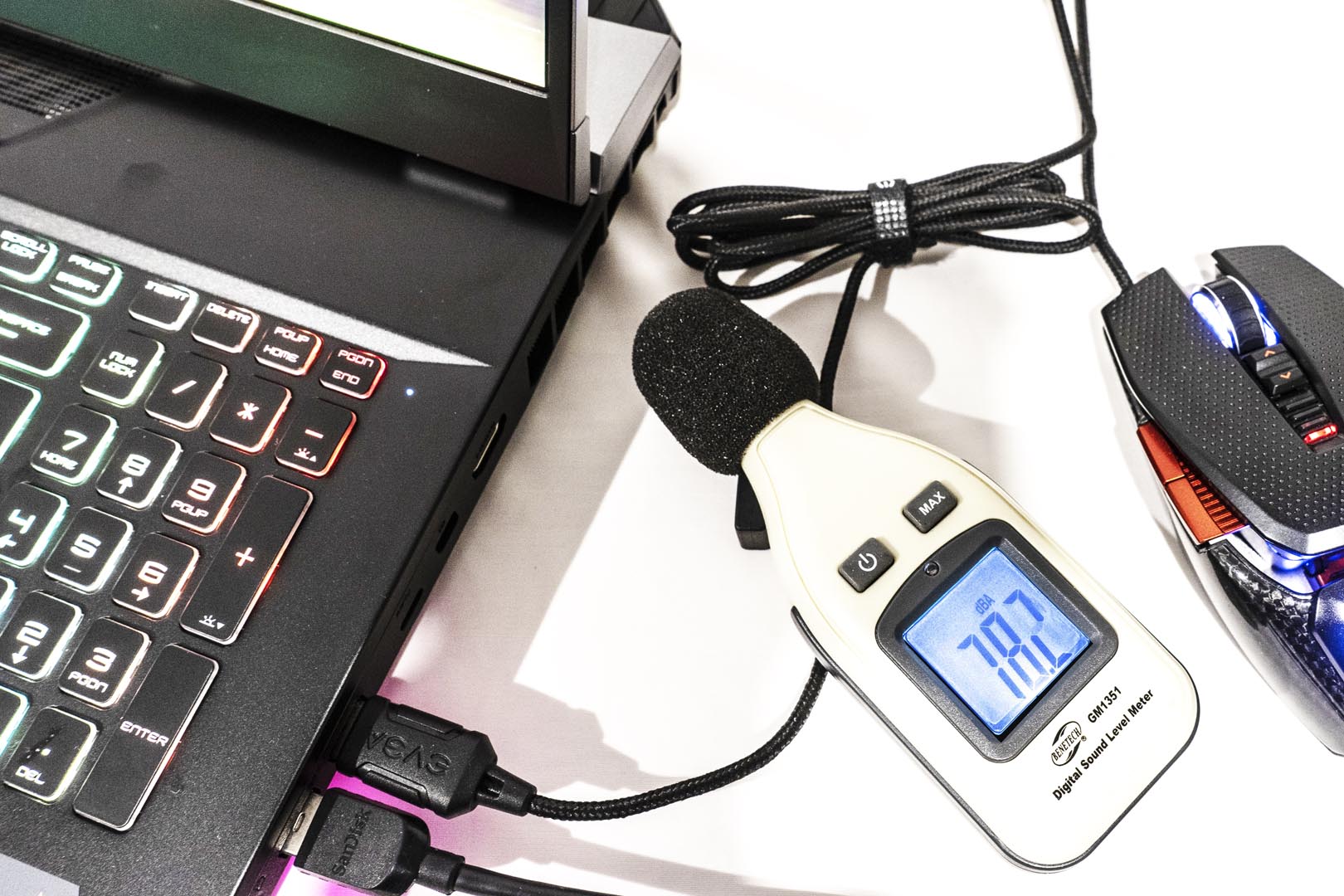
Disassembling analysis
It’s extremely easy to disassemble the backplate
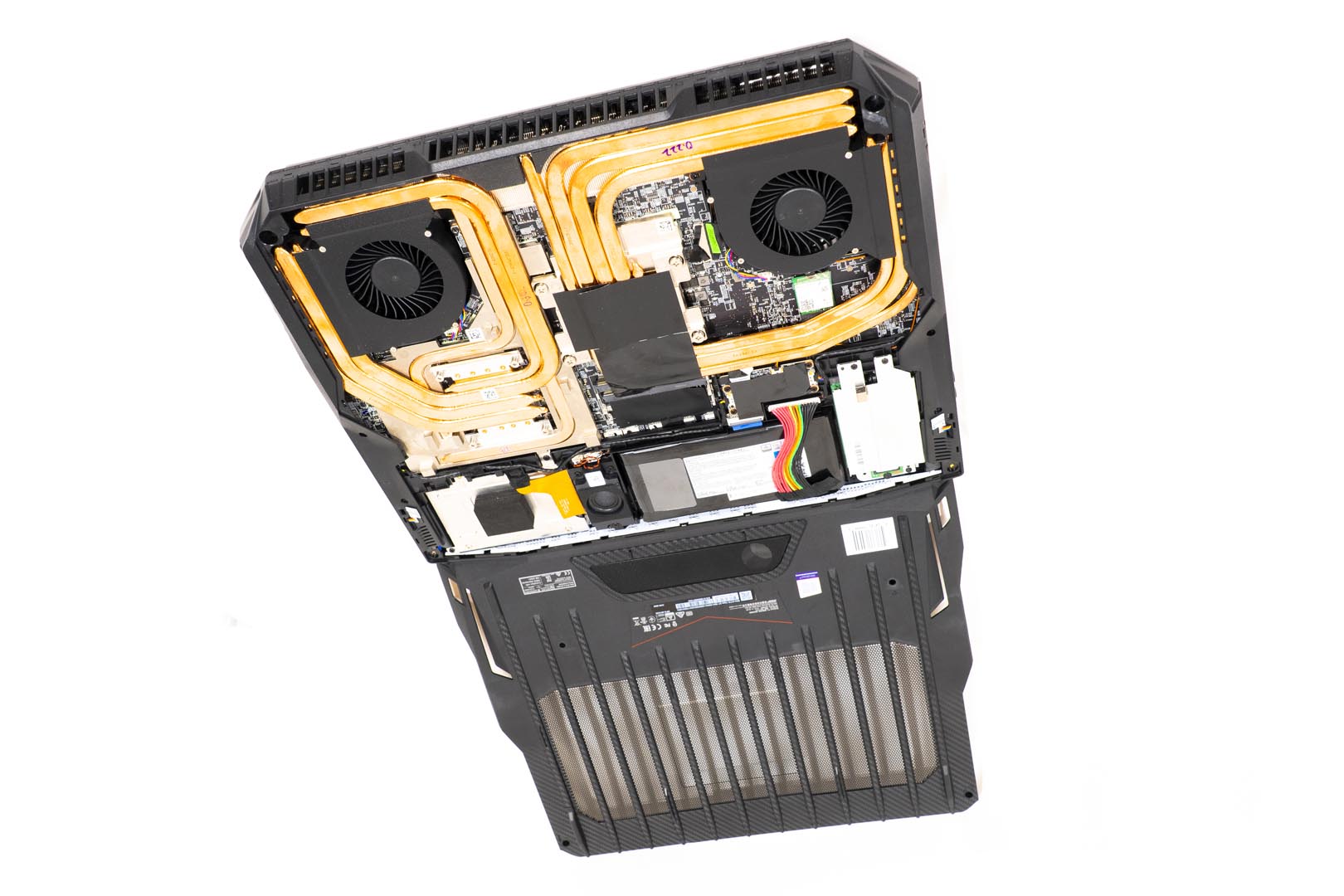
The heat dissipation system uses up to 11 heat pipes and 4 fans (dual-layer design, 2 on top and 2 on bottom), we can see 7 pipes directly from the D panel
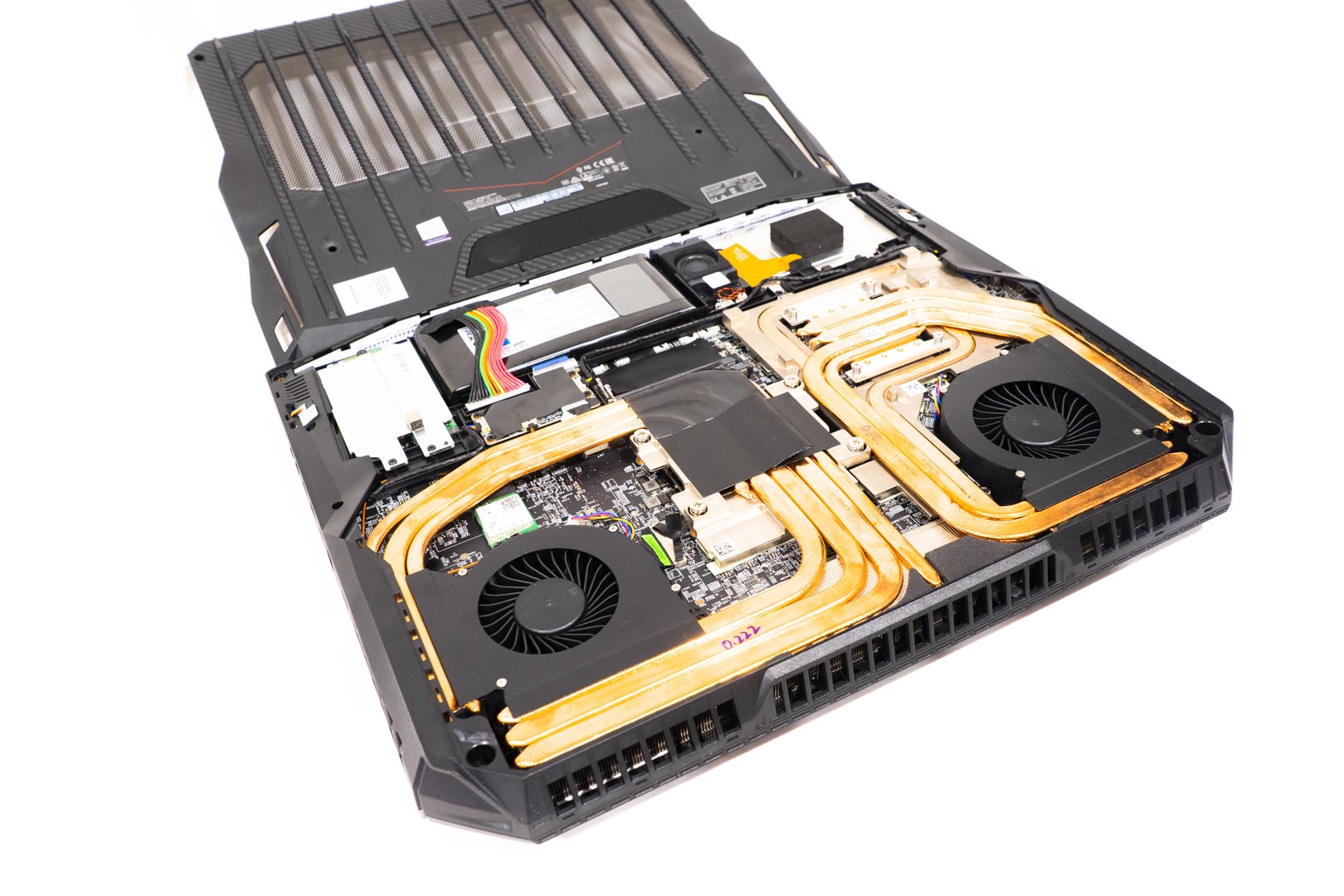
The power supply uses a 90Wh eight-cell battery, which requires a single 330W or two 240W adapters. If you choose the i9-9900K, it uses the latter
Battery, 6250mAh manufactured by Getac, 90Wh
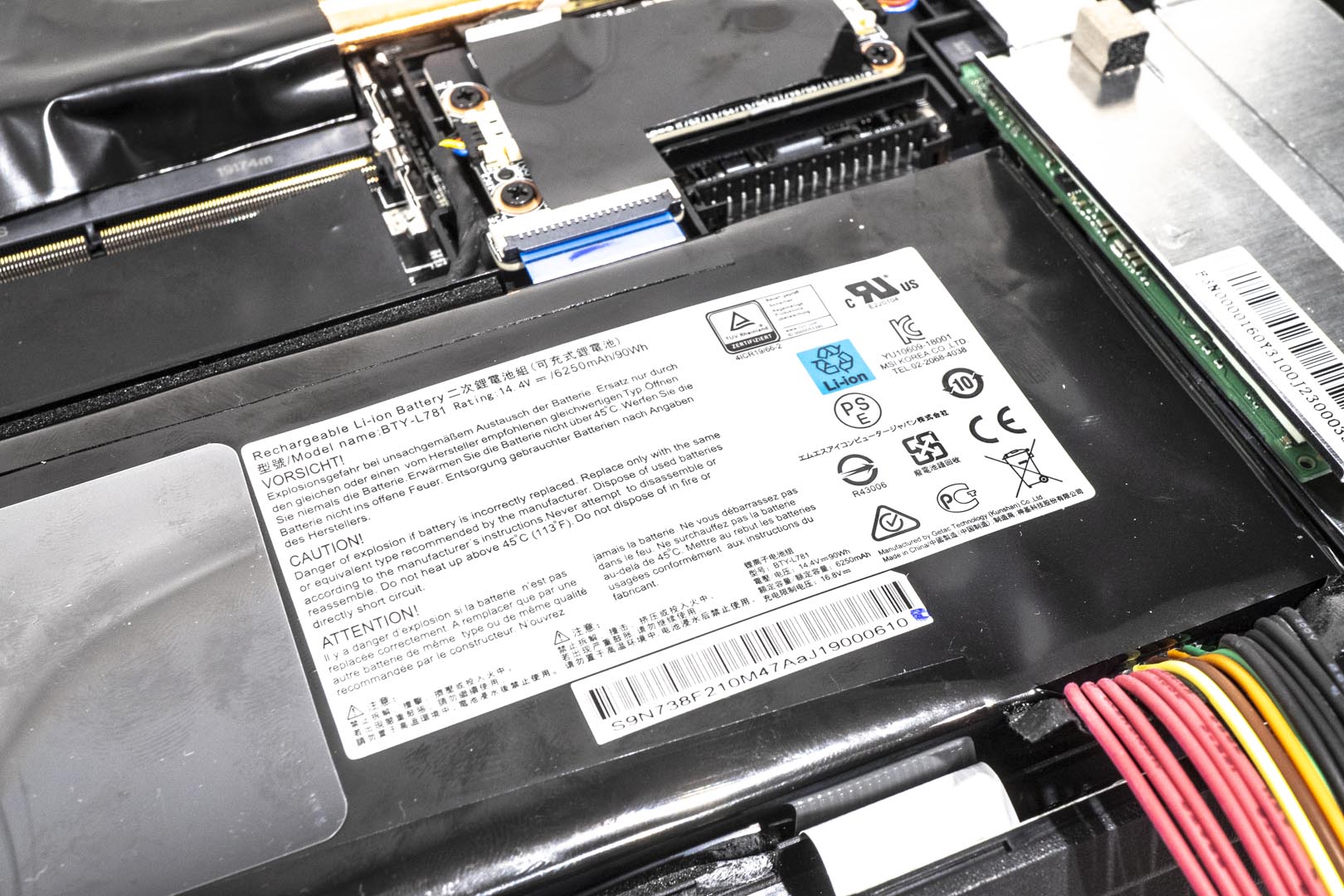
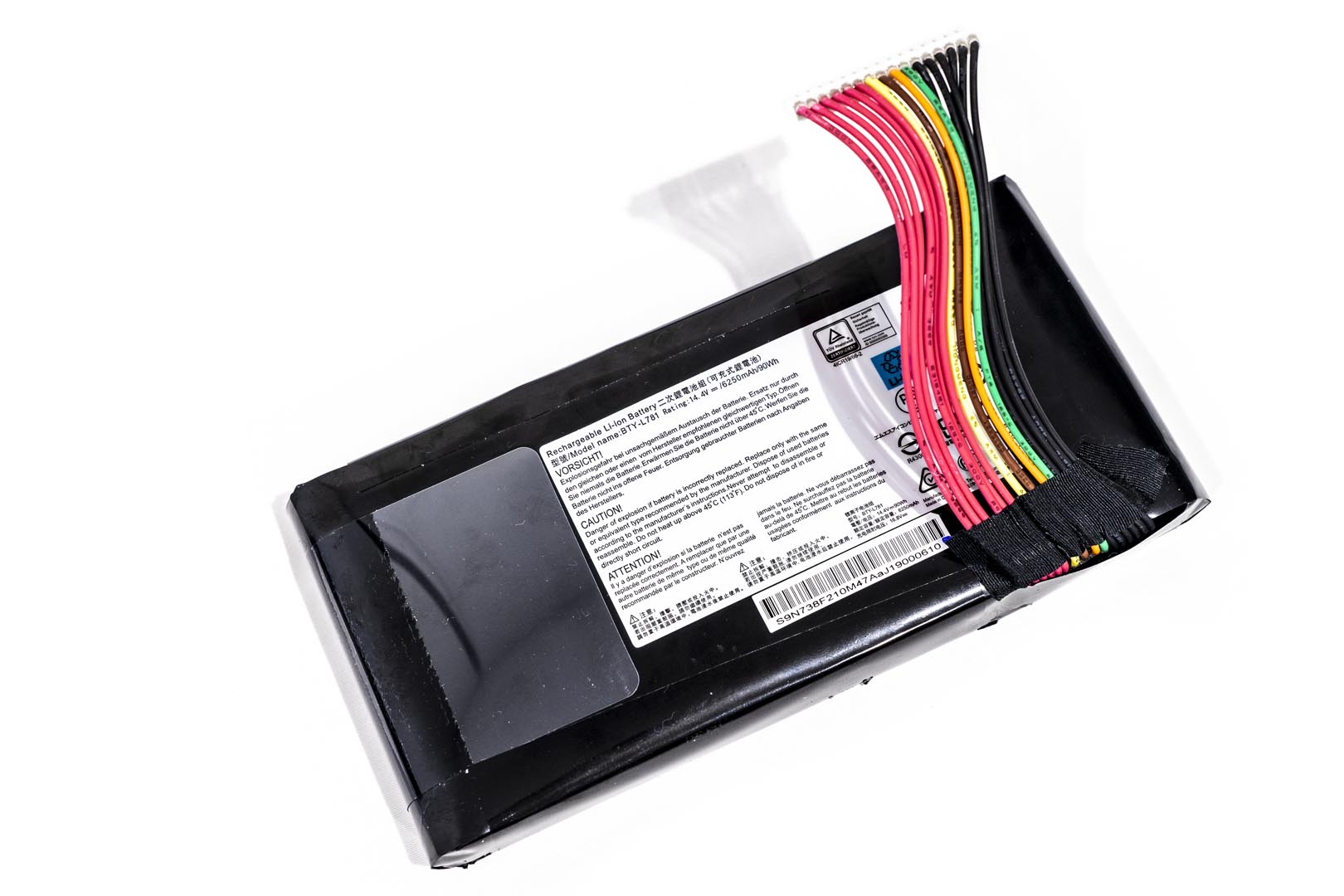
Samsung DDR4 2666 2 x 16GB Dual Channel : M471A2K43CB1 – CTD
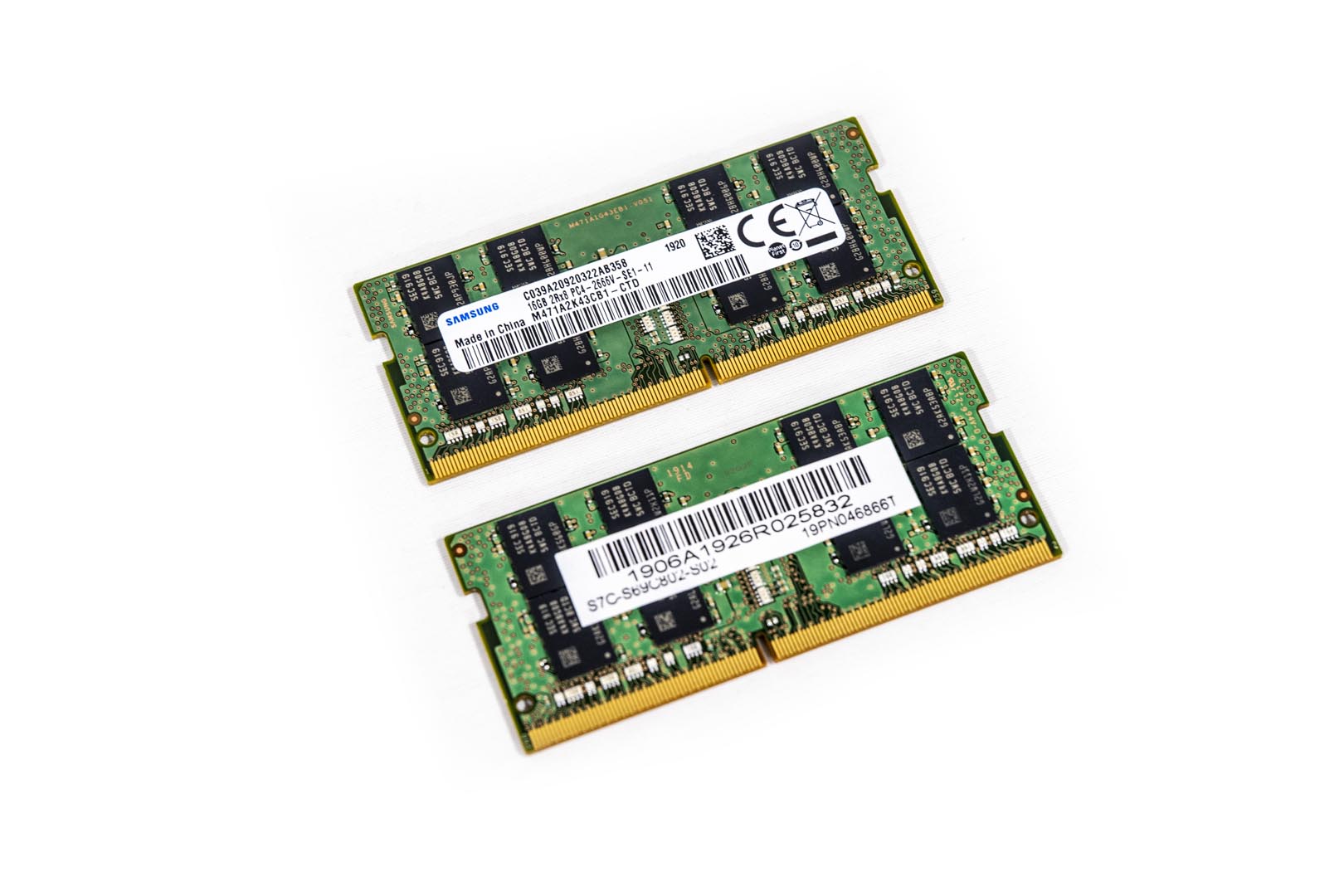
The flagship design of 3 SSD slots working with superRaid
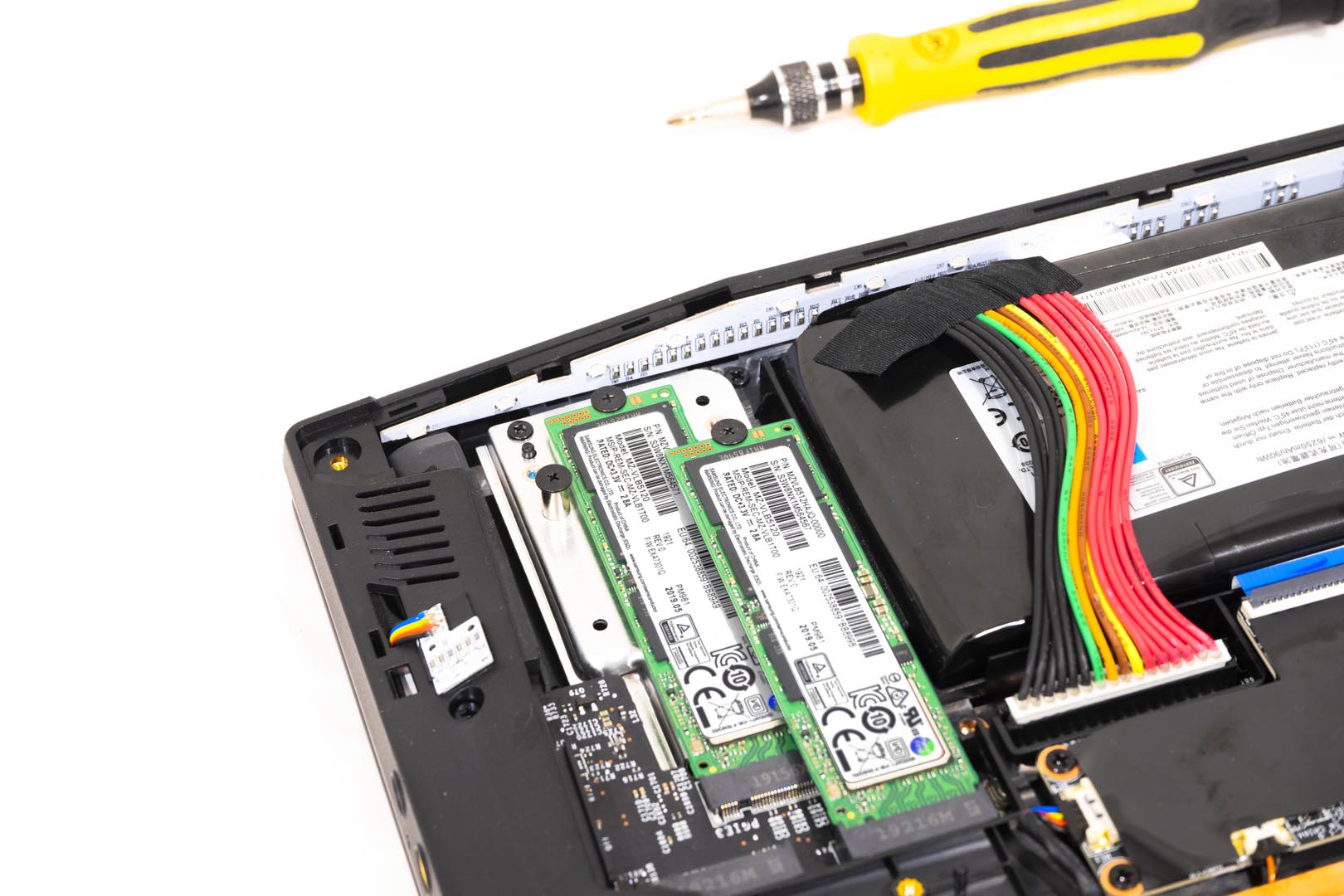
WIFI & Bluetooth card : Killer 1650x from Intel(AX200NGW), 2.4G/5G, AX200 2×2 Wi-Fi 6, 1024QAM and 160MHz channels, Bluetooth v5
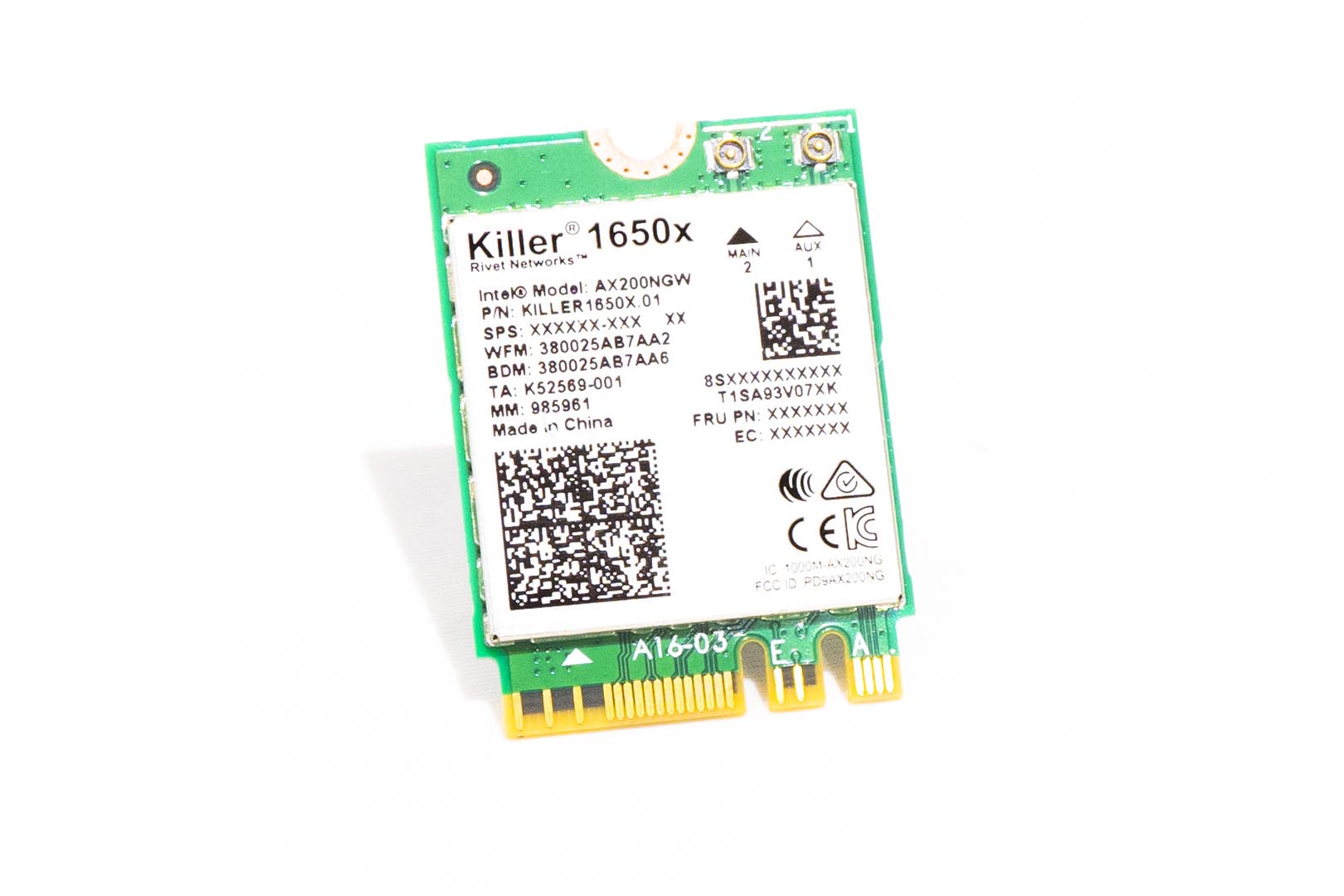
Sound system: LR+SUB, 2 x 2W midrange units are distributed on the left and right sides, and a 3W woofer is placed next to the touchpad
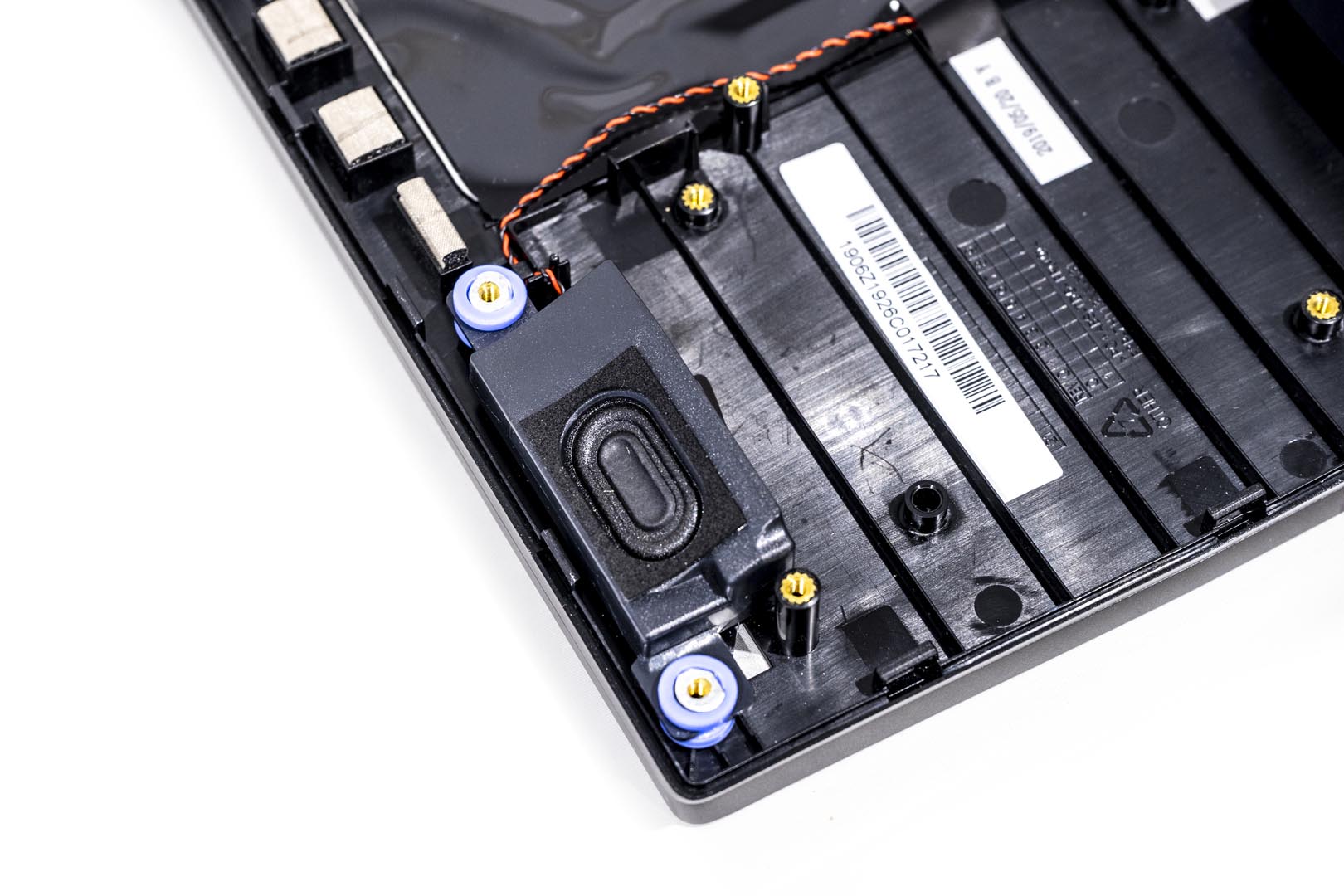

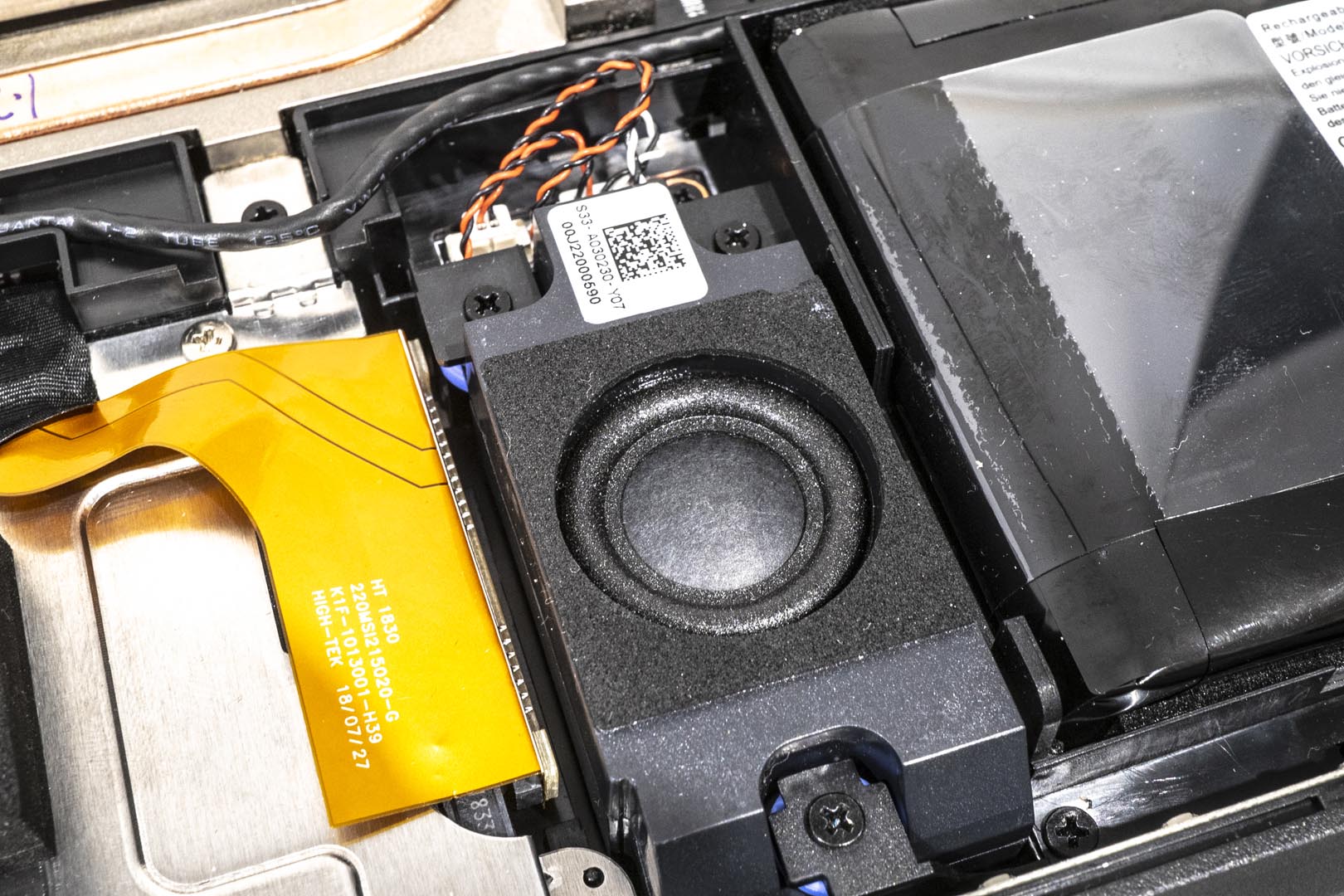
The GPU chip from Nvidia, N18E-G3-A1 which is the Nvidia TU104 chipset

The LGA CPU socket with INTEL i9-9900K

The LGA CPU socket with power supply module
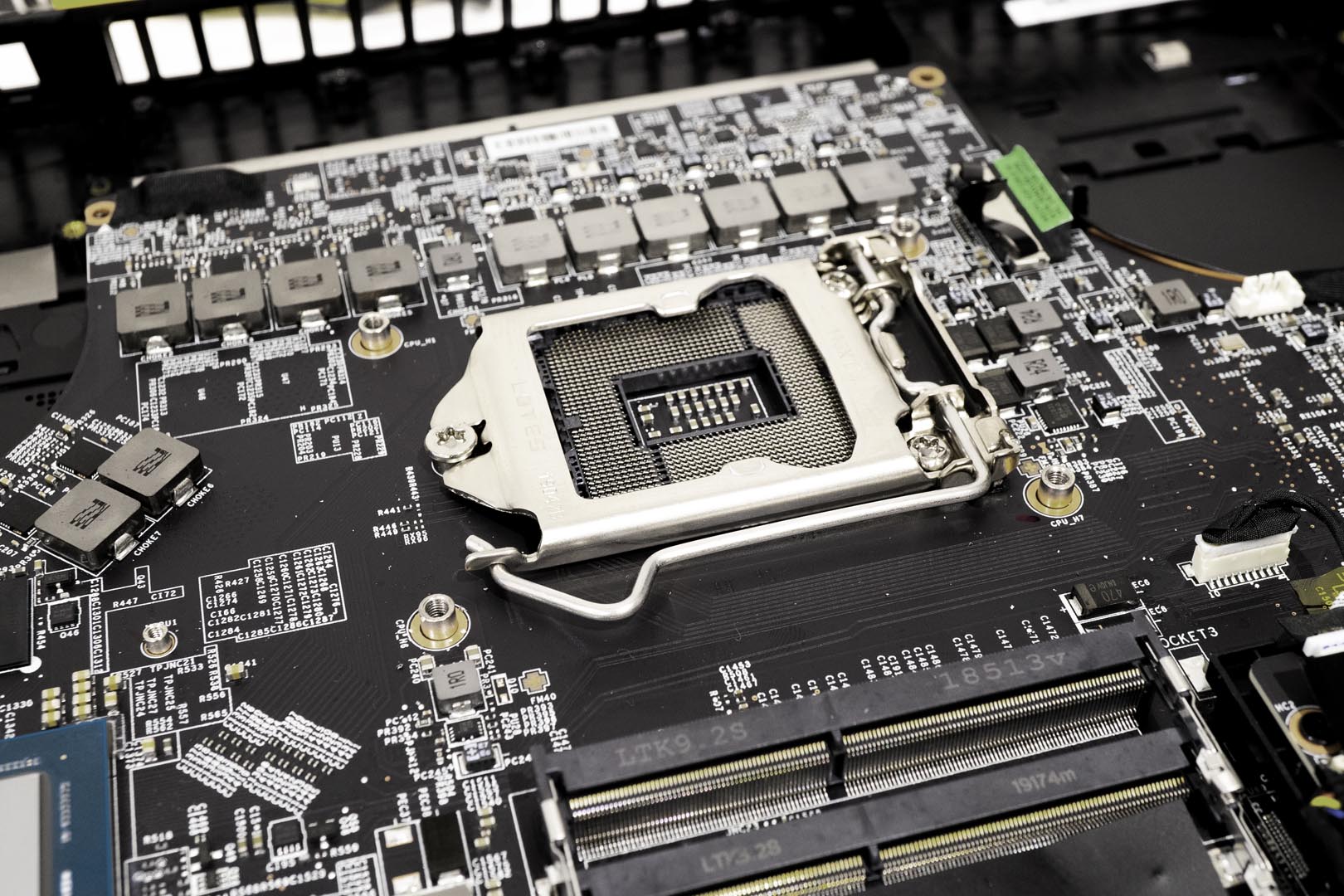
The INTEL i9-9900K Desktop level CPU
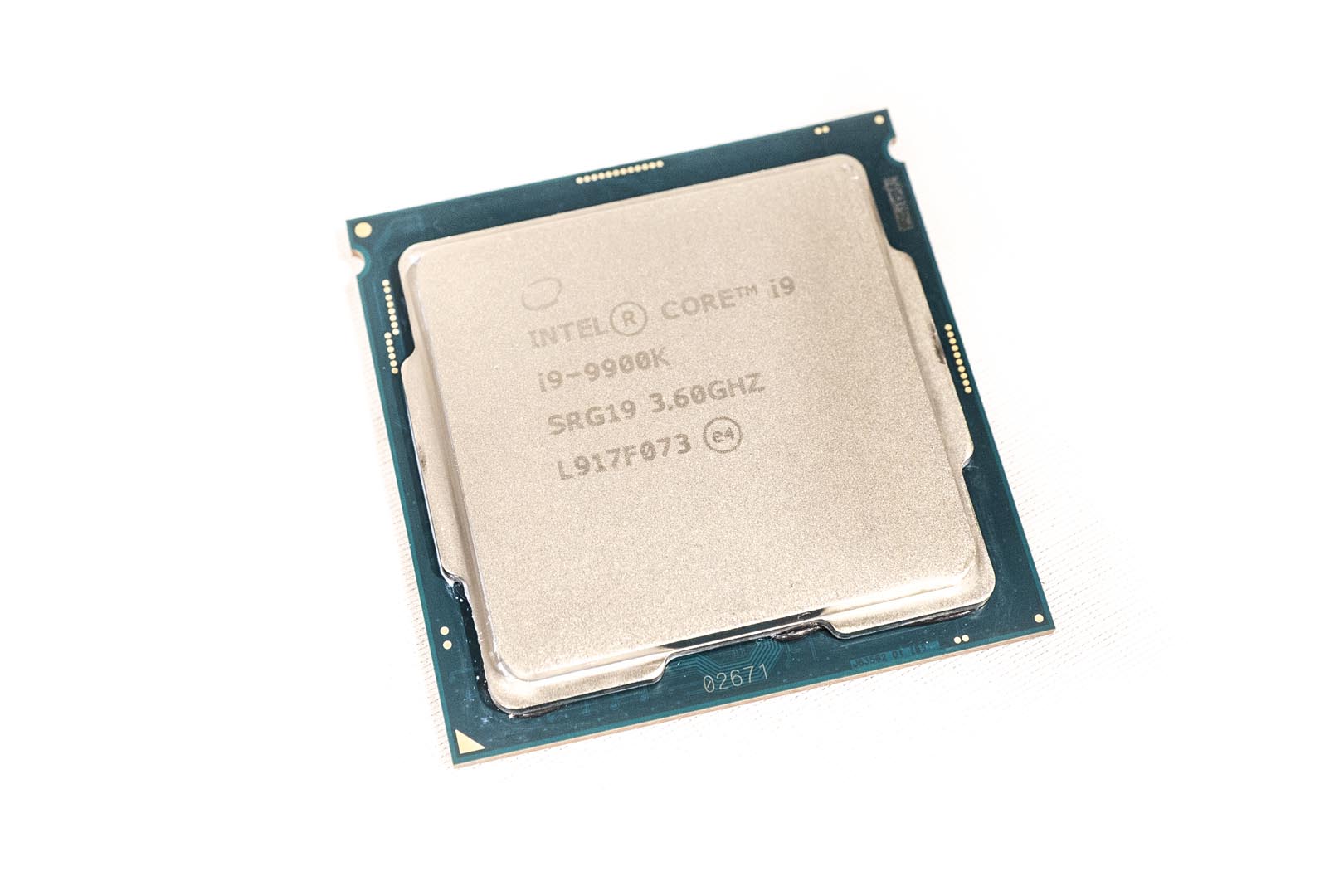
The middle power control board, driven by an STM32F072 microcontroller
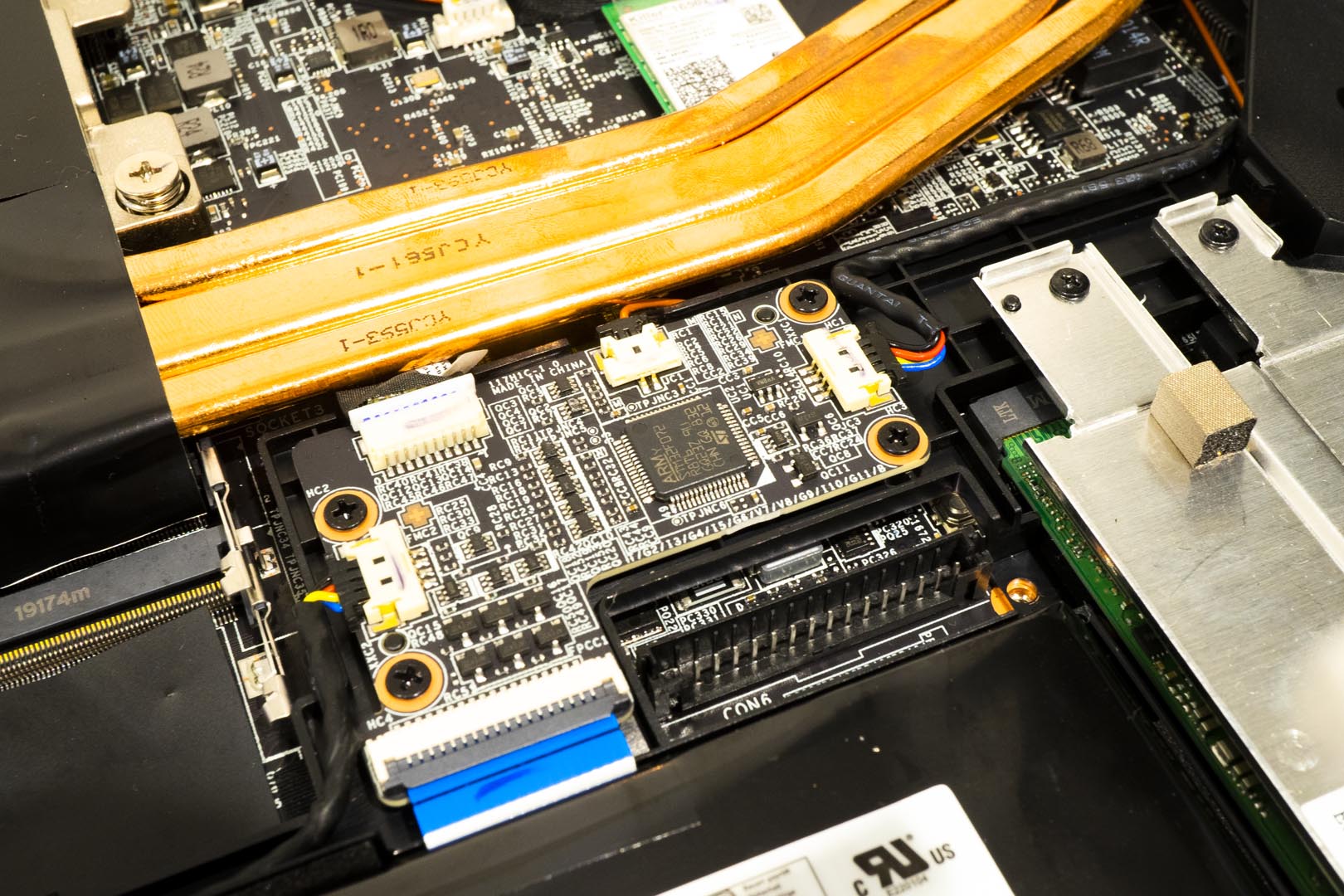
The Whole Beast Cooling system of GT76
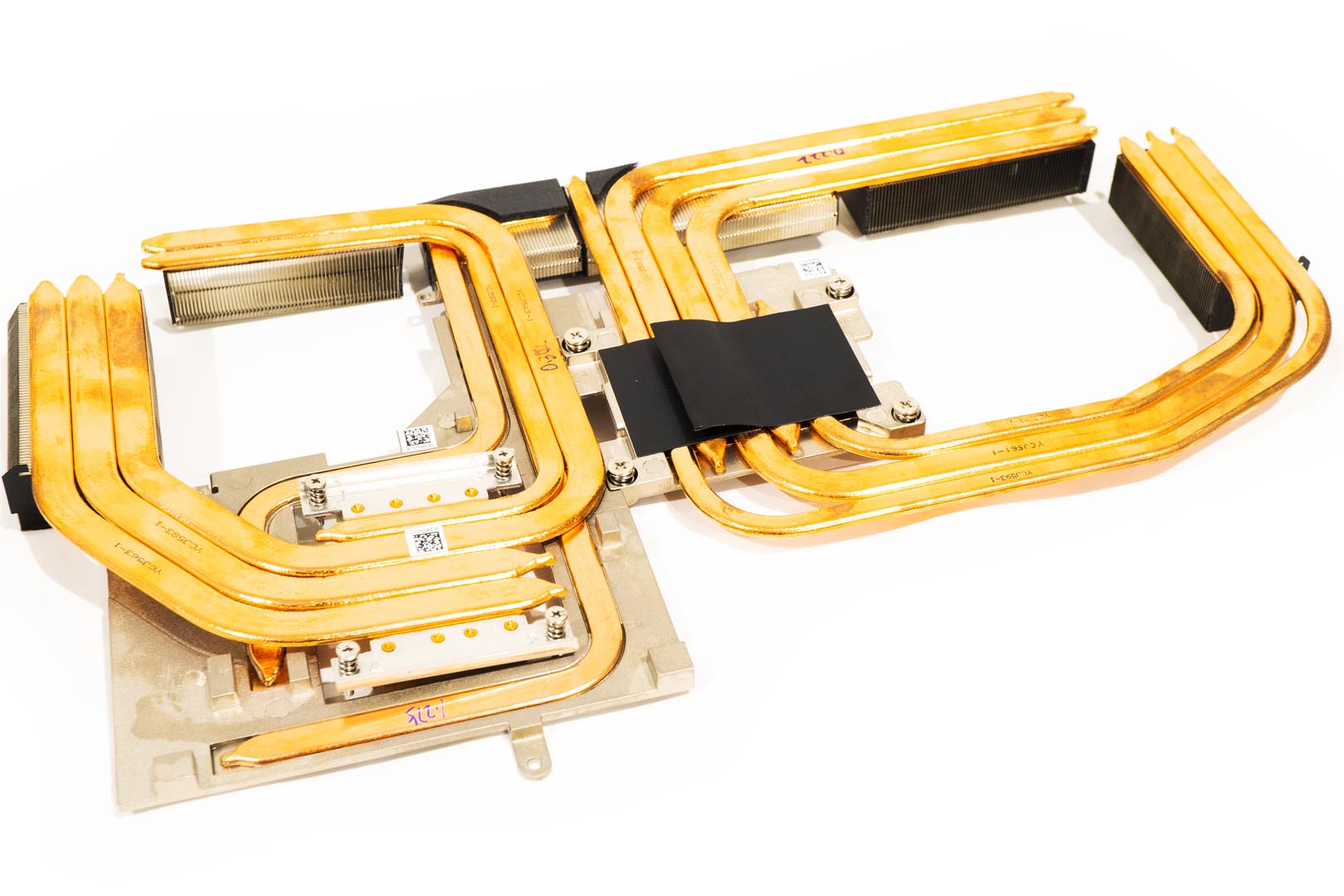
The Graphics Memory and power supply Heatsink: 2 Pipes
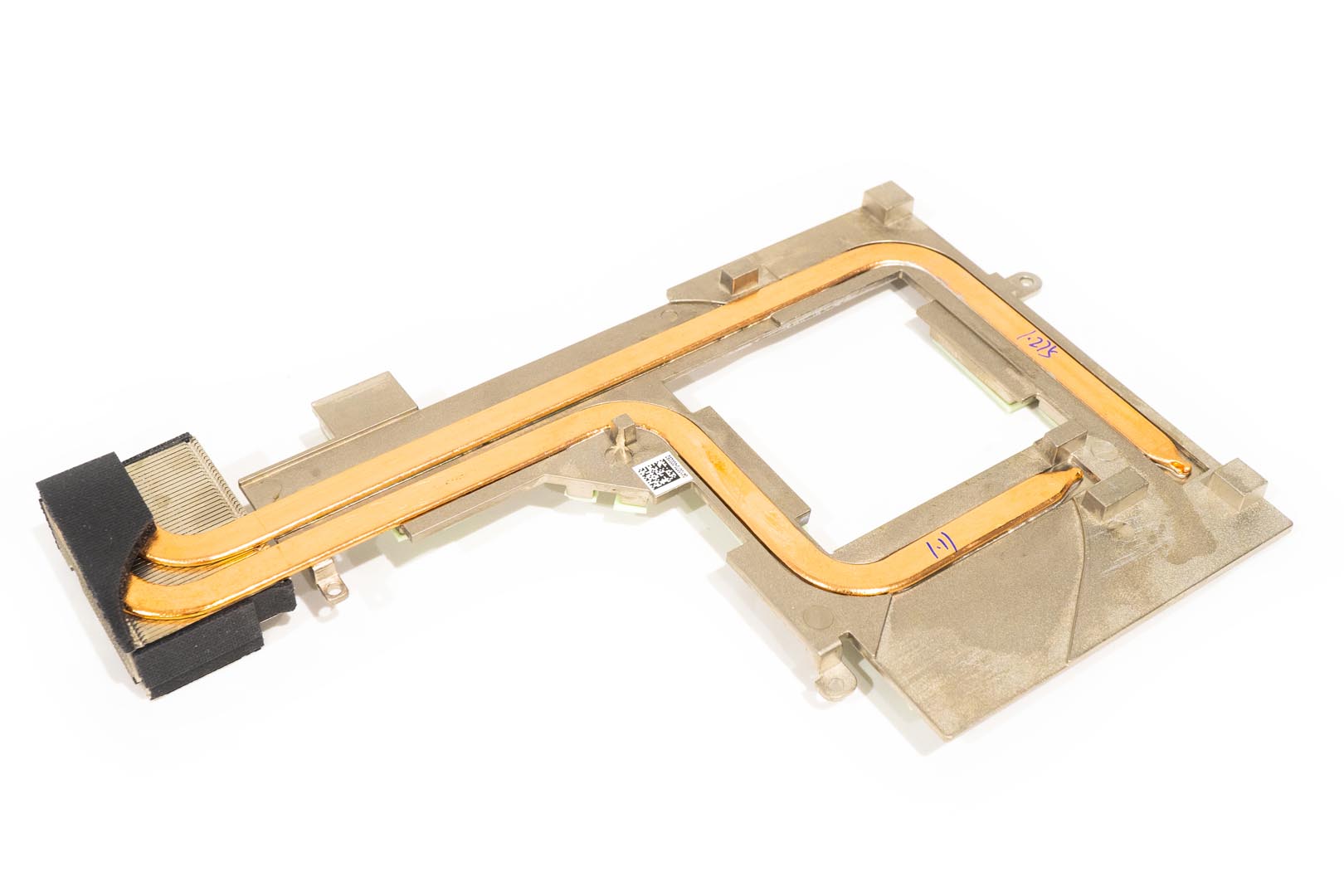
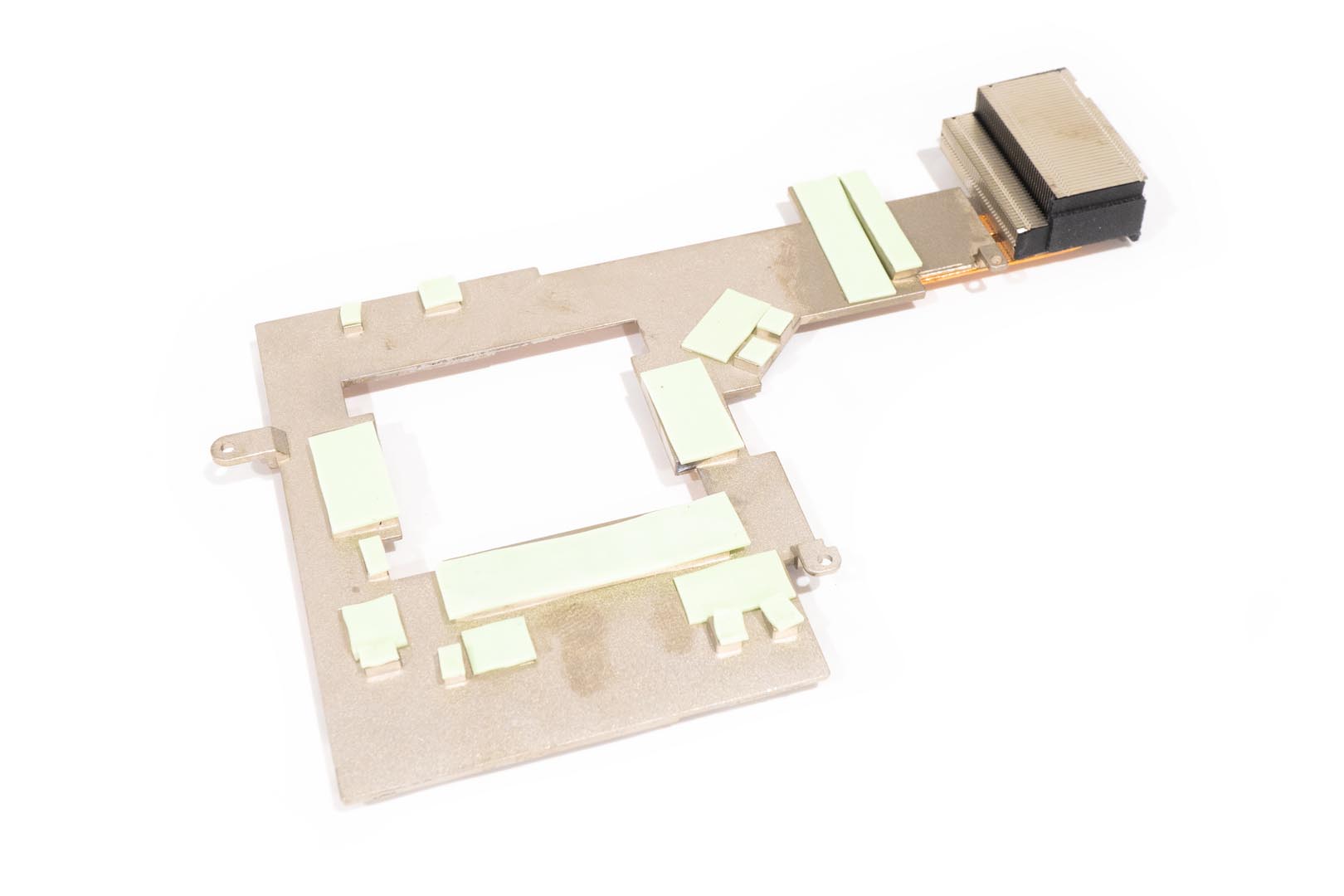
The Graphic chipset Heatsink: 4 Pipes
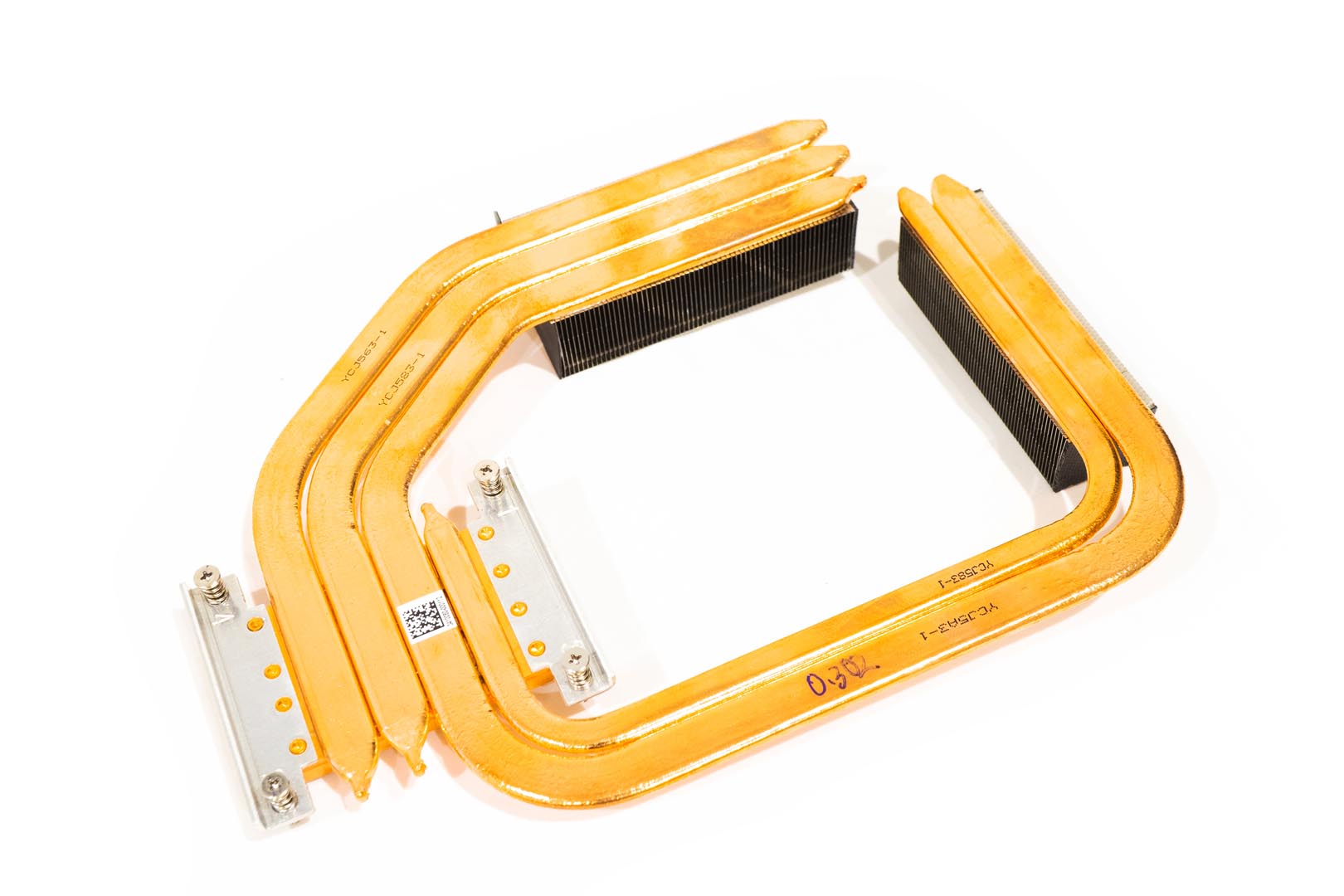
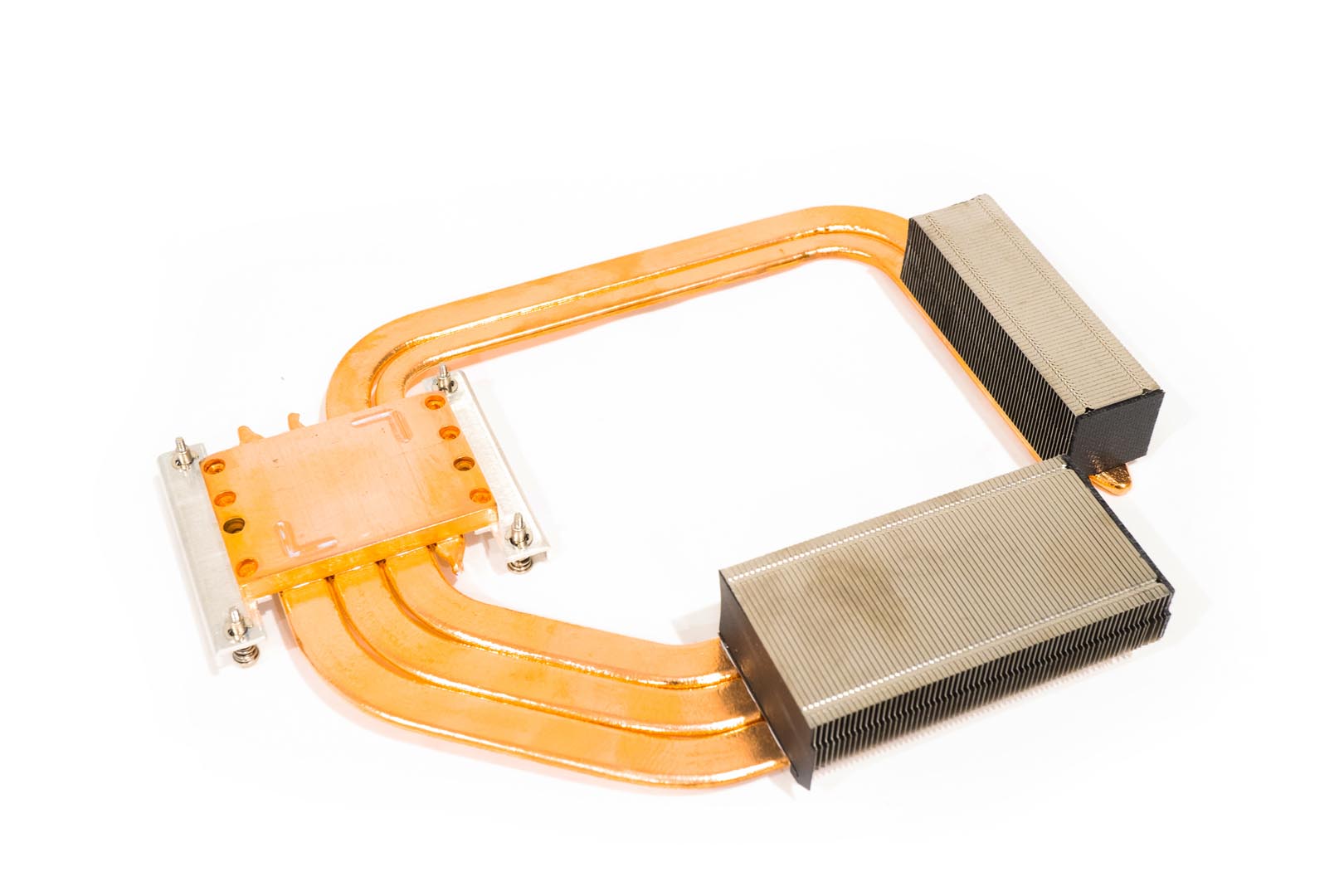
The CPU chipset and power supply Heatsink : 5 Pipes

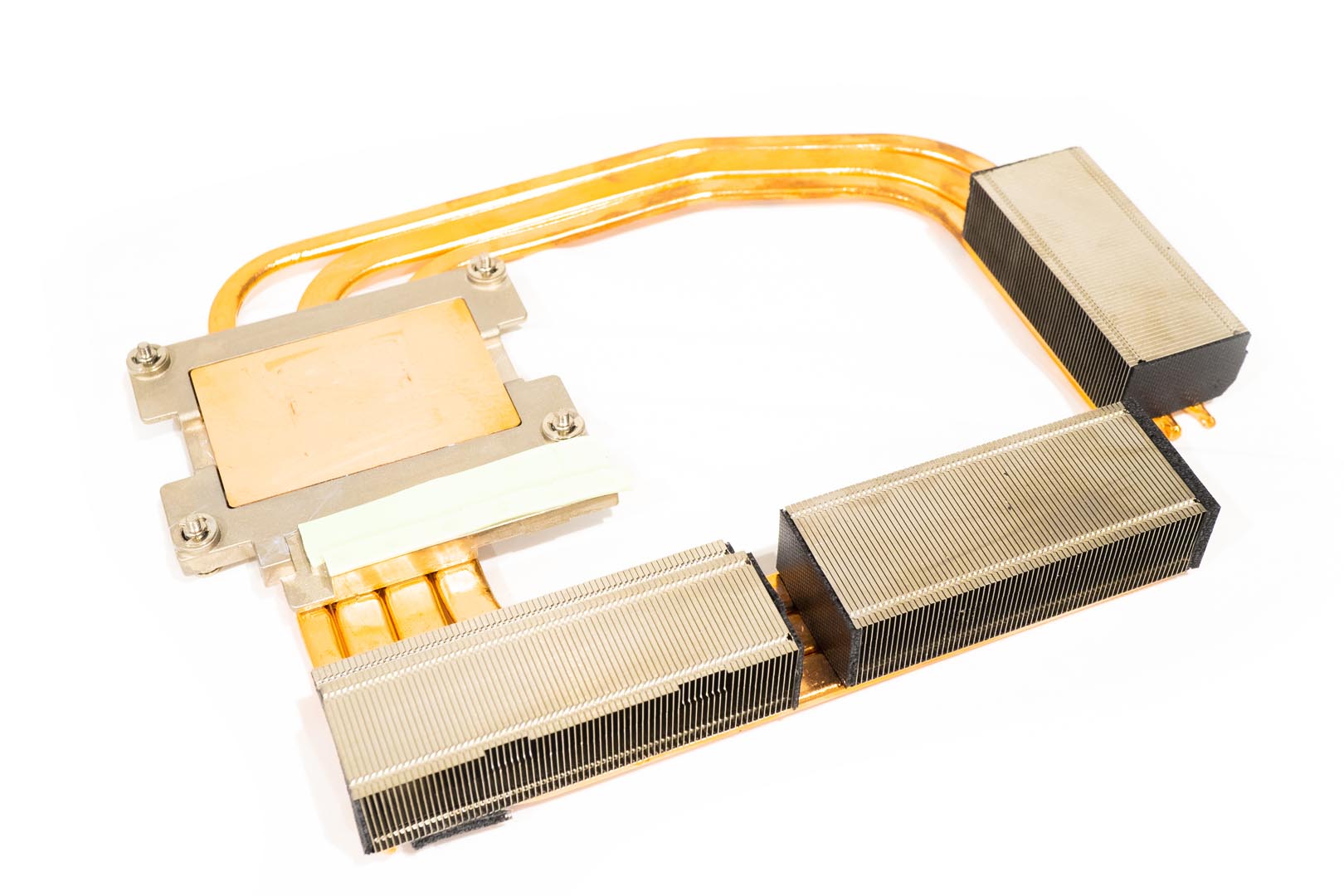
Main cooling fans are from AAVID, PABD18525BH, around 5200rpm speed

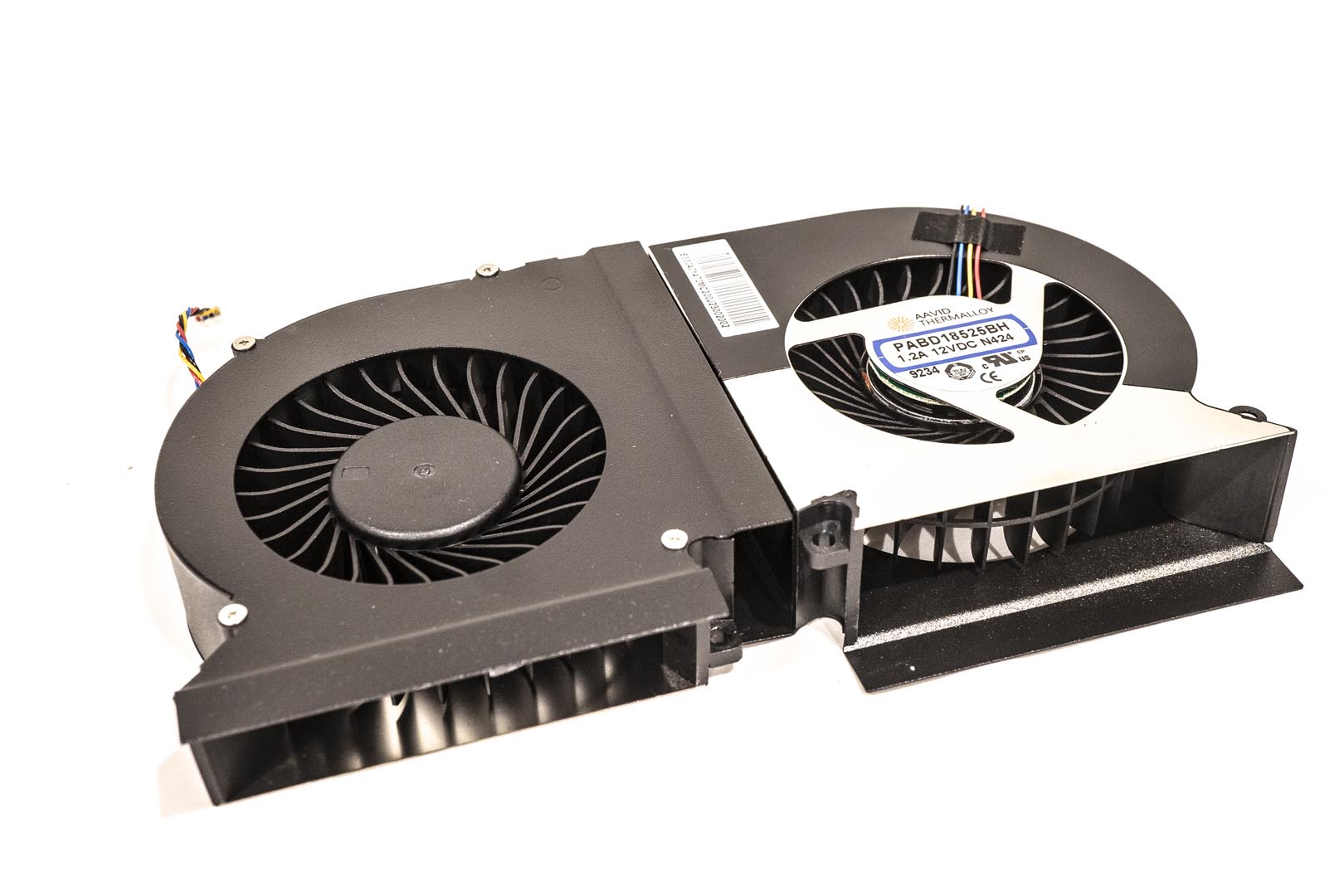
Supporting Layer 2 twin-pack cooling fans are from AAVID, PABD0A308SH, around 5000rpm speed
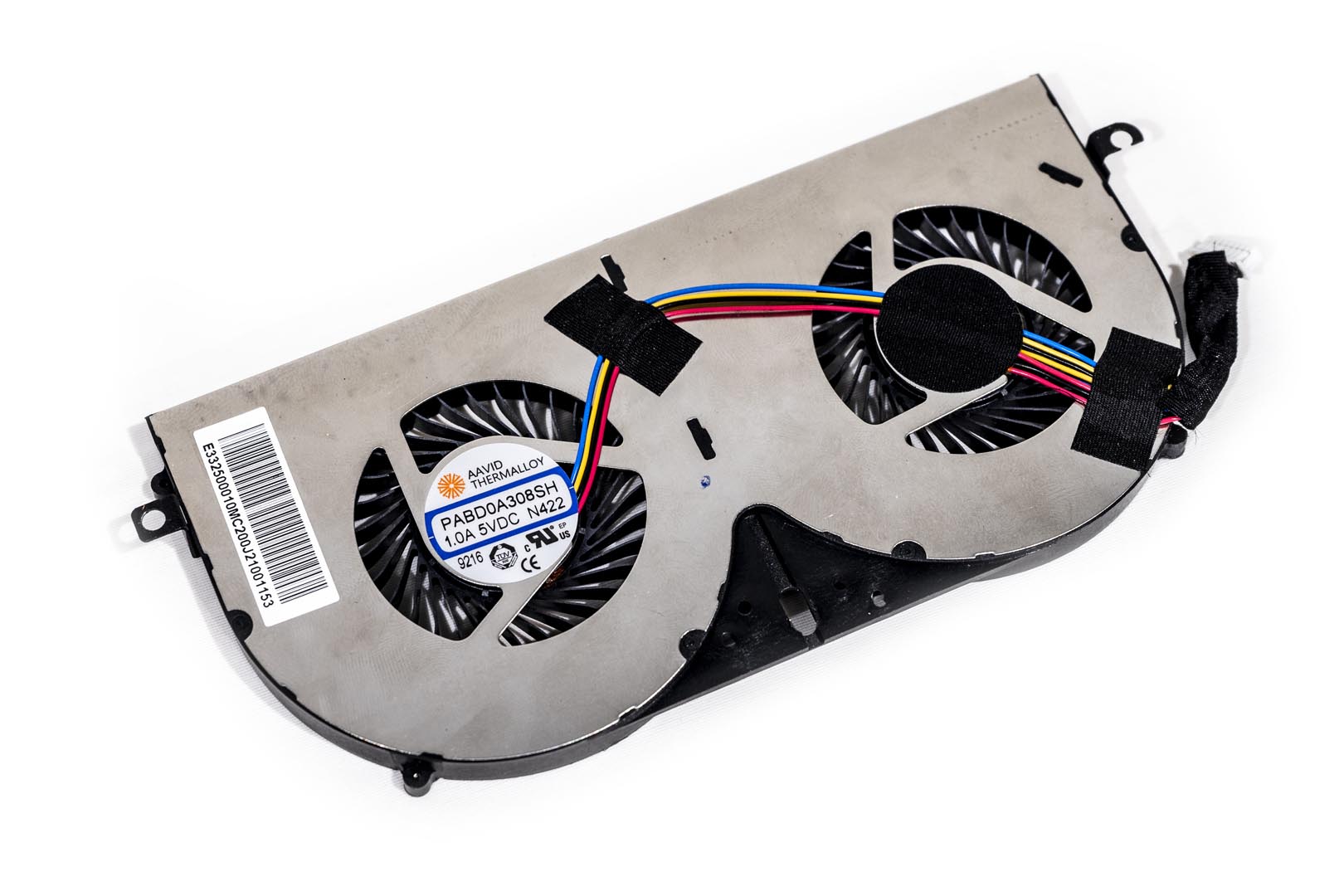
HDD is Seagate Barracuda Pro 1TB
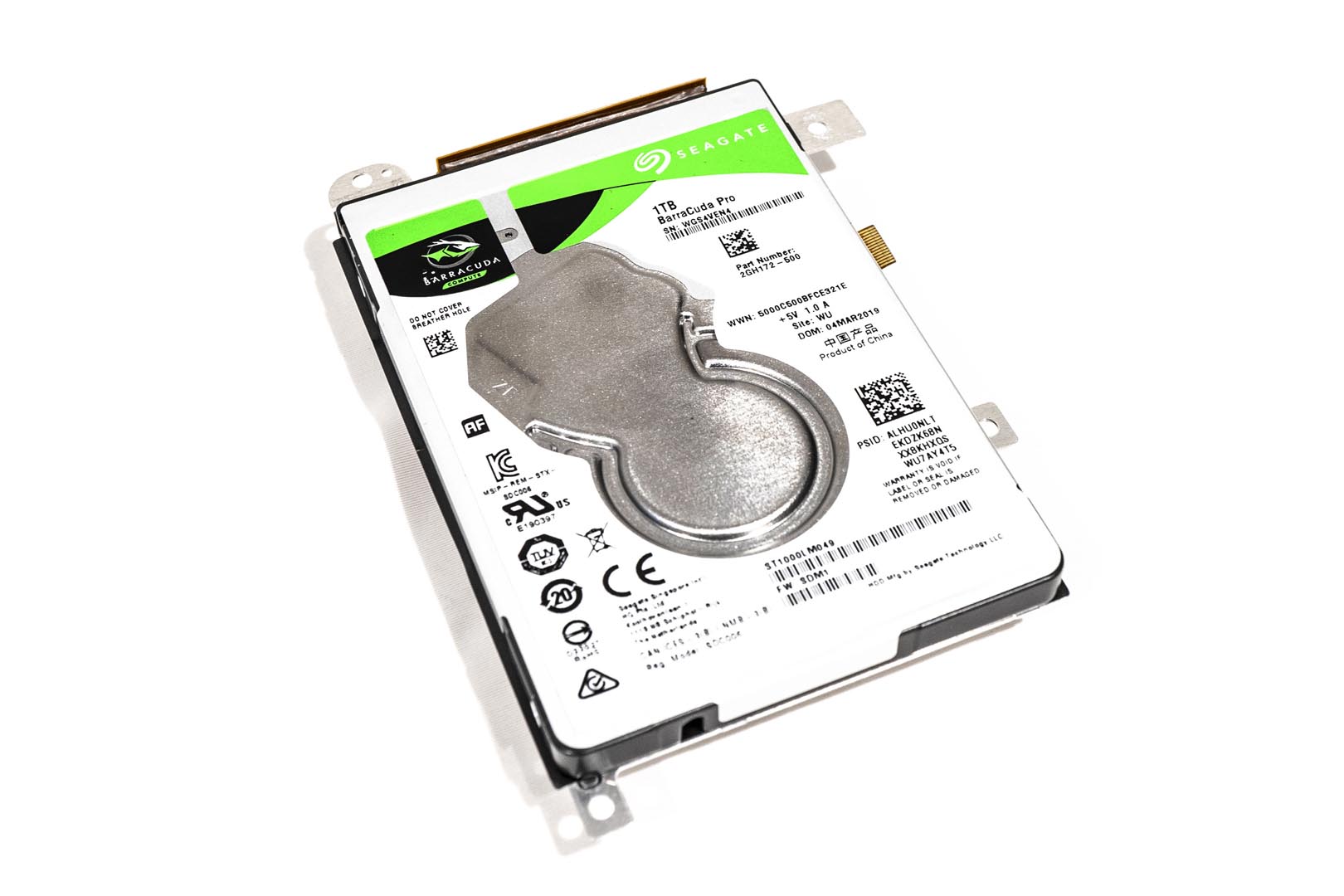
SUMMARY
The MSI GT76 Titan DT 9SG is a very bold laptop with an overclocked desktop-class Intel i9 processor, equipped with MSI’s new generation cooling system that includes a total of 4 turbine fans and eleven cooling pipes designed to suppress this top-level 8-core 5.0GHz CPU. Supported by the Nvidia RTX 2080 BGA video chip to achieve extreme performance, the GT76 Titan DT 9SG easily matches the performance of a desktop computer.
In terms of design, the body shape is guided by the RGB light to show a sports car style streamline appearance, and the metal texture accompanied by the carbon fiber grain design to make the product aesthetics more in line with a supercar. The RGB full-colour lighting effect makes dazzling light toward the laptop body line, while the narrow frame design reduces the overall size of the body, providing a refreshing gameplay experience for players.
In terms of weight, GT76 Titan DT 9SG is also significantly lower than the previous generation, the laptop weight is about 4.4kg. However, compared to those thinner, but lower-performance gaming laptops, the mobility of GT76 is still not that good.
On the price part, the pricing of AUD$7,399 is indeed a bit high for ordinary users, but compared to the performance and thermal design of other brands, this notebook can be used not only for games, but also for some professional applications and designs.
As a manufacturer of e-sports hardware products, MSI has been deeply involved in the field of gaming hardware and peripherals. The GT76 Titan DT 9SG itself is an achievement of a commitment to research with development spirit and the continuous exploration in the field of e-sports hardware at MSI. In the face of the turbulent gaming laptop market, MSI is more concerned about products, only the quality and reliability of the products themselves will be sustained by consumers. MSI will continue to optimise product performance based on the rapid changes in the gaming market, making it the best choice for players.
EPIC REWARD: EPIC EXTREME POWER, EDITOR’S CHOICE & DESIGN AWARD



GT76 Titan DT 9SG OFFICIAL WEBSITE: HERE


